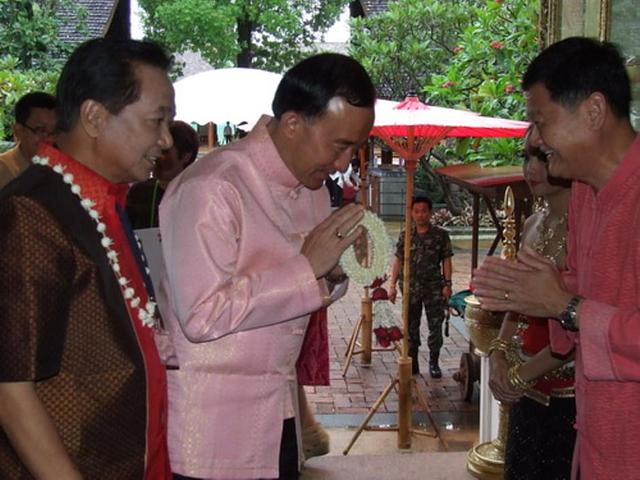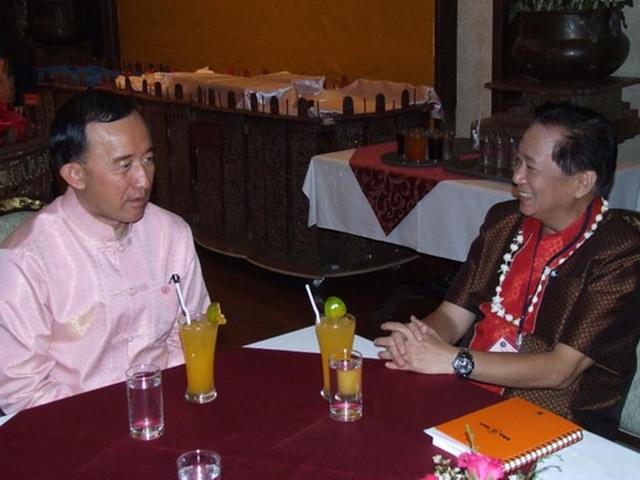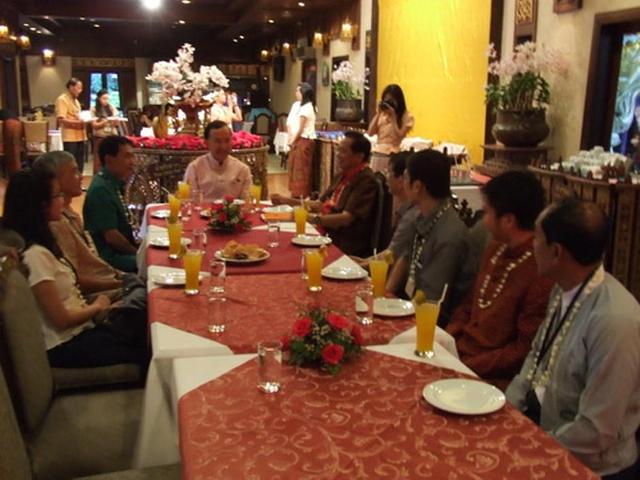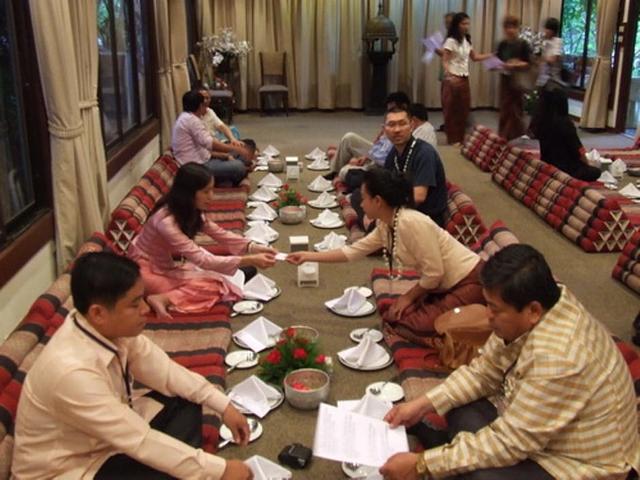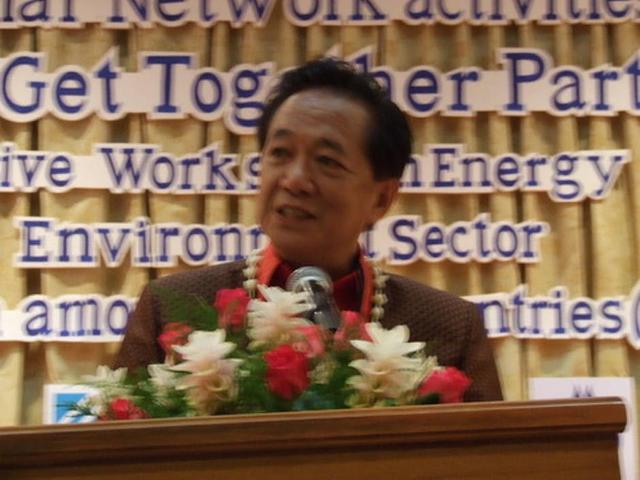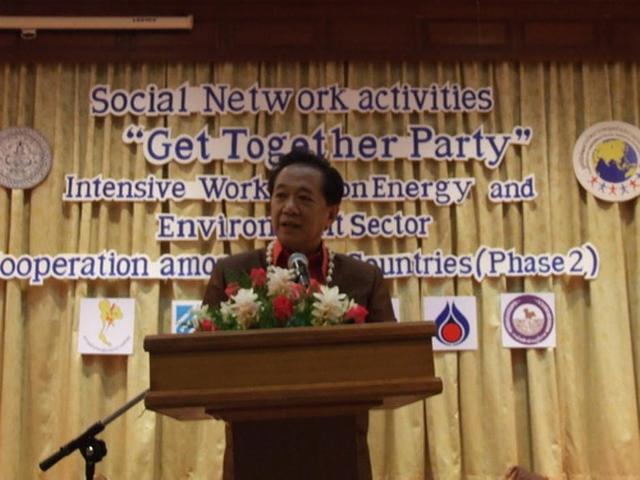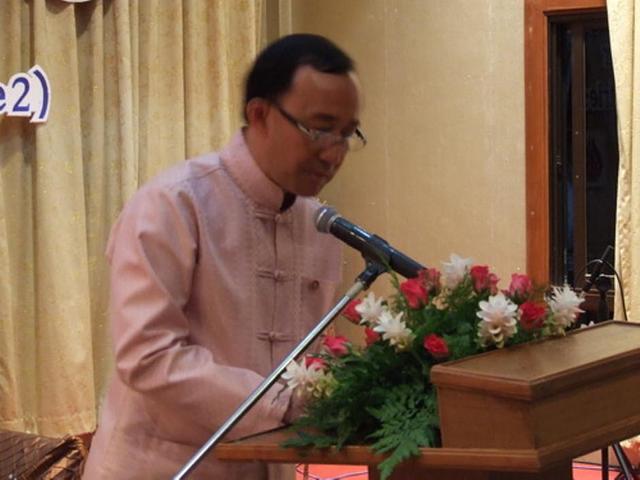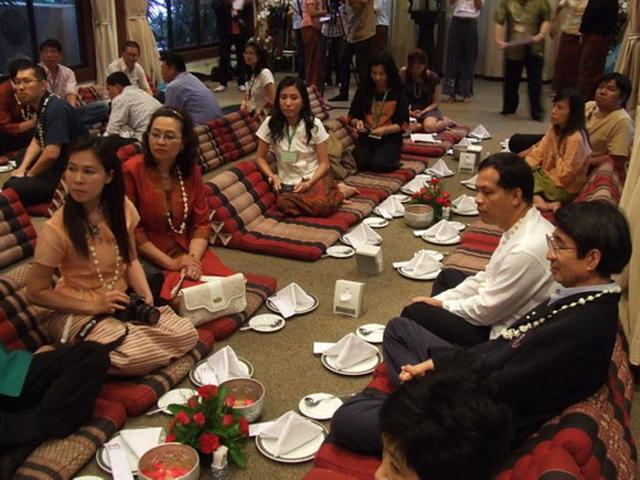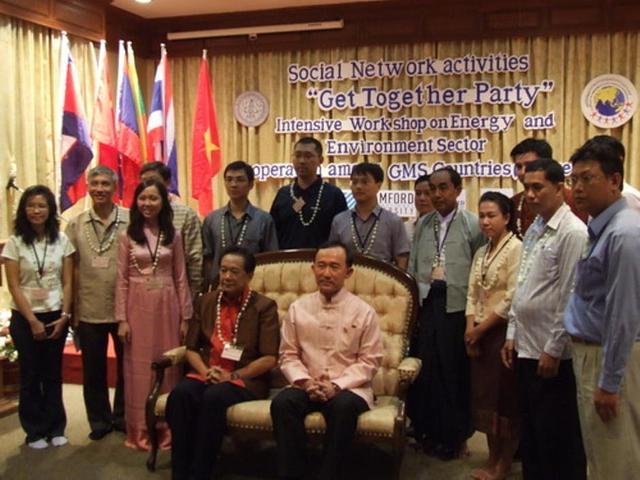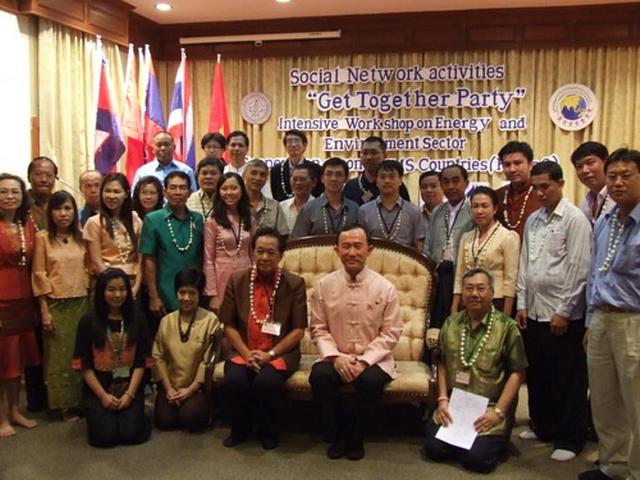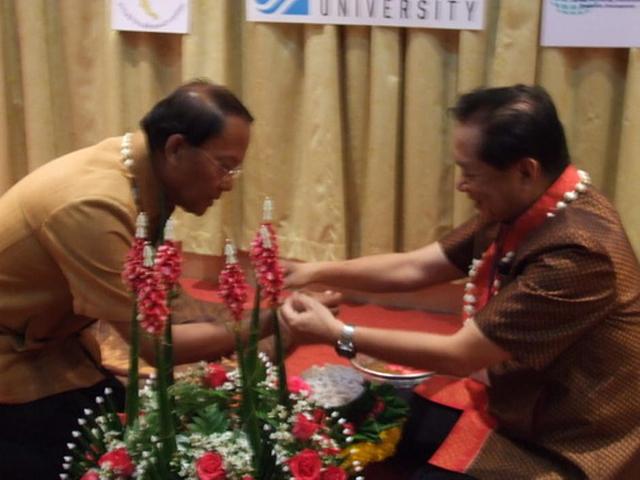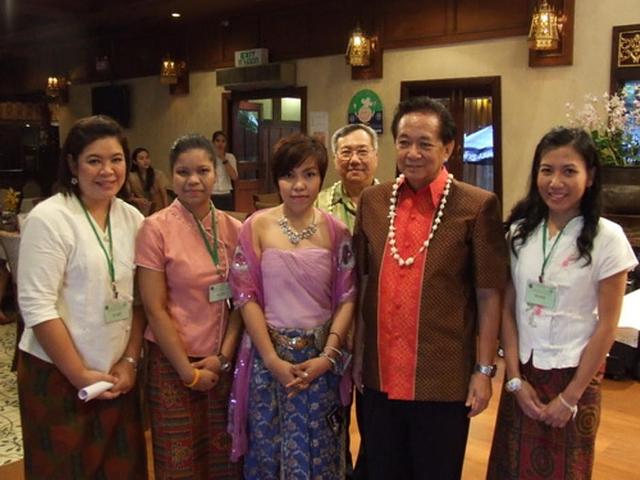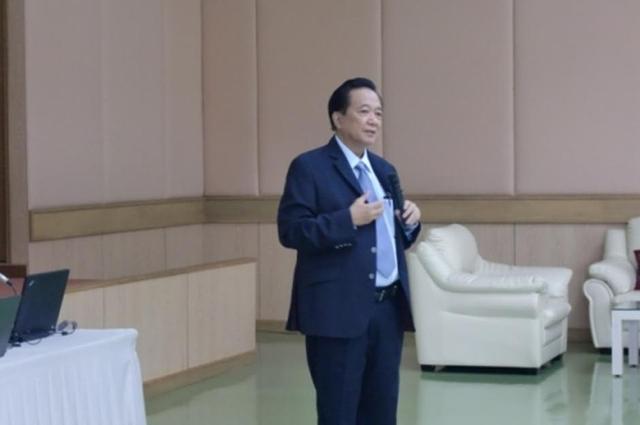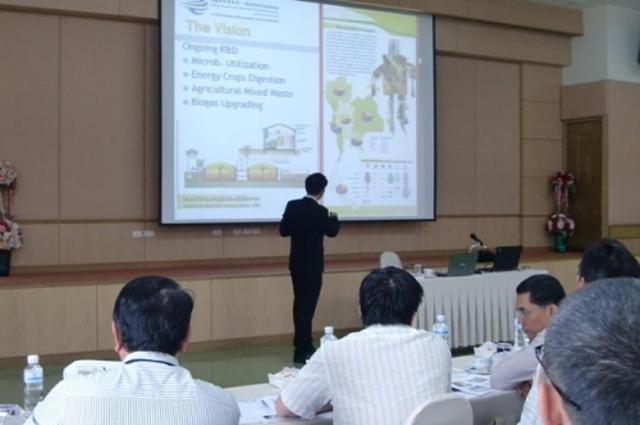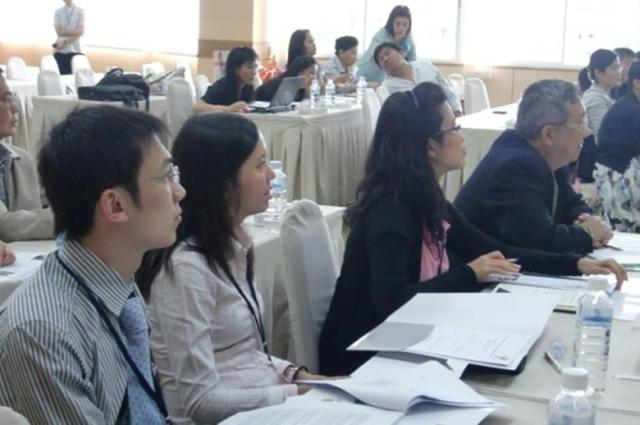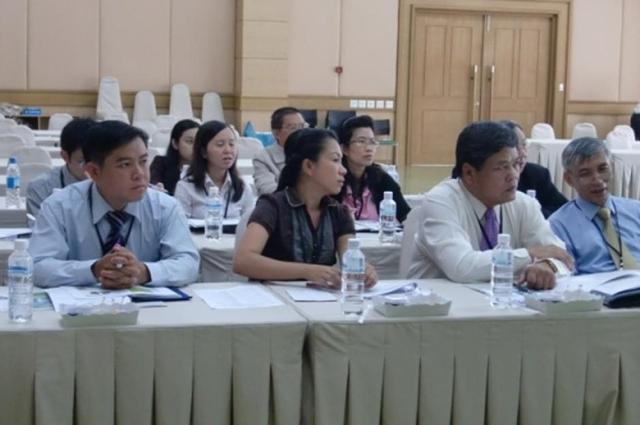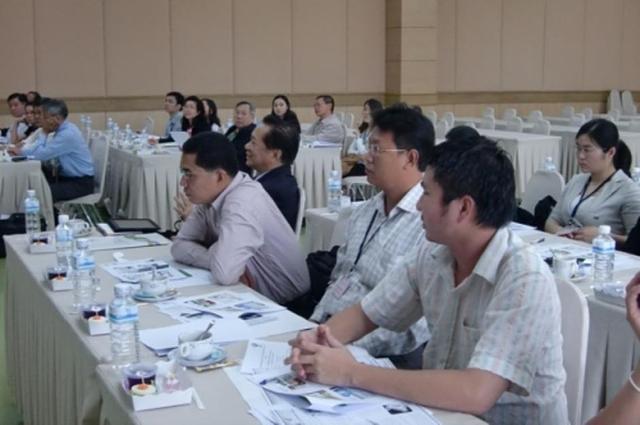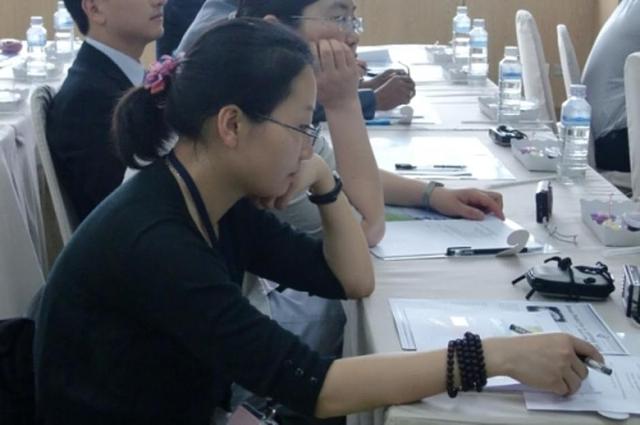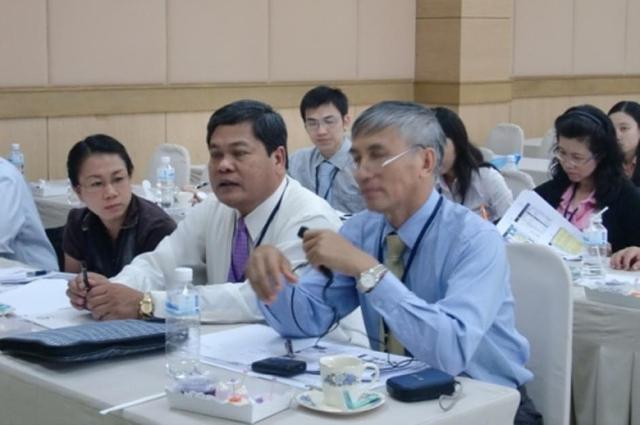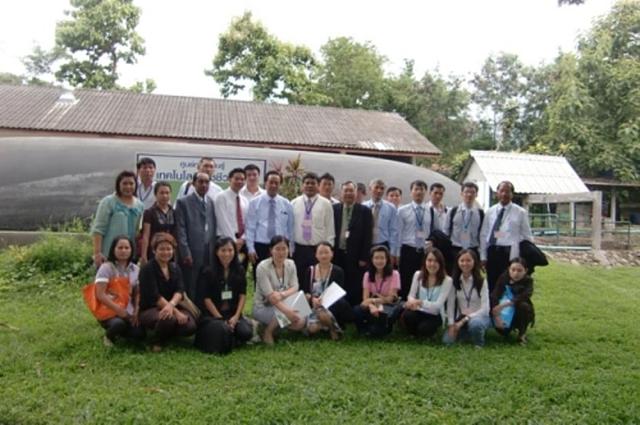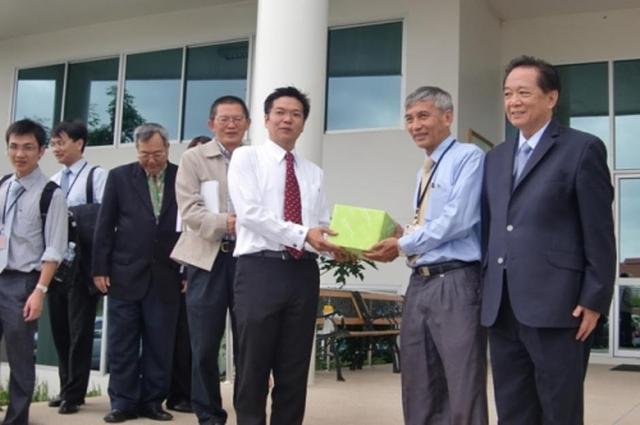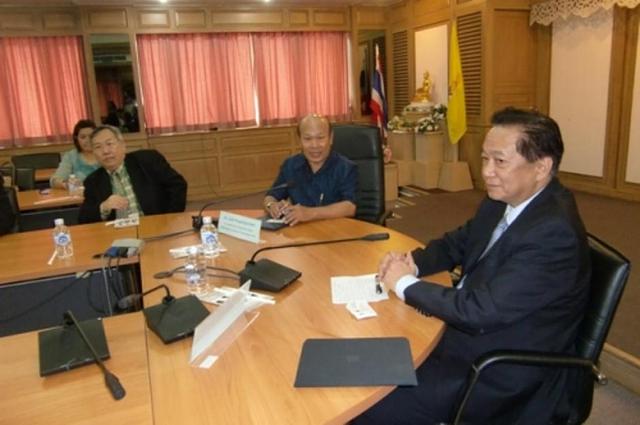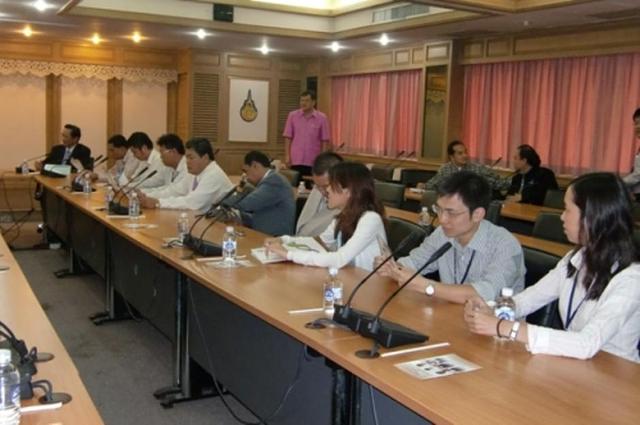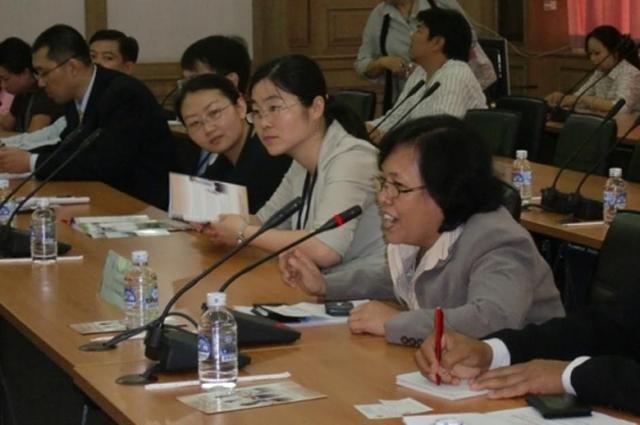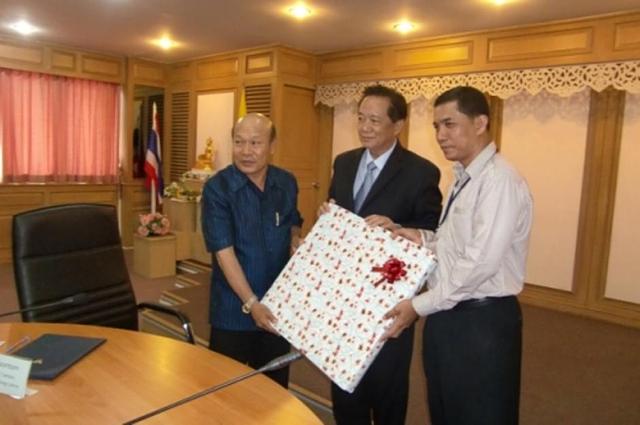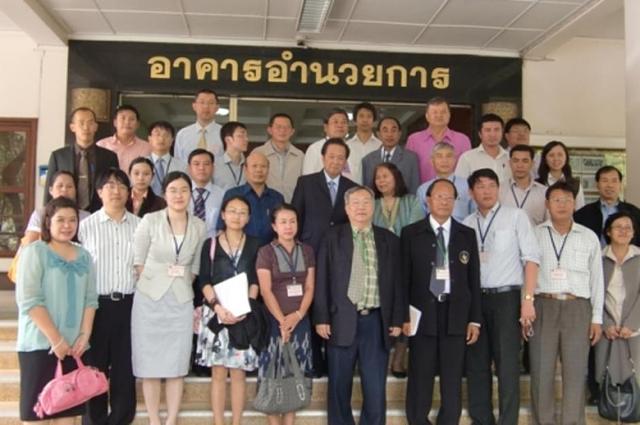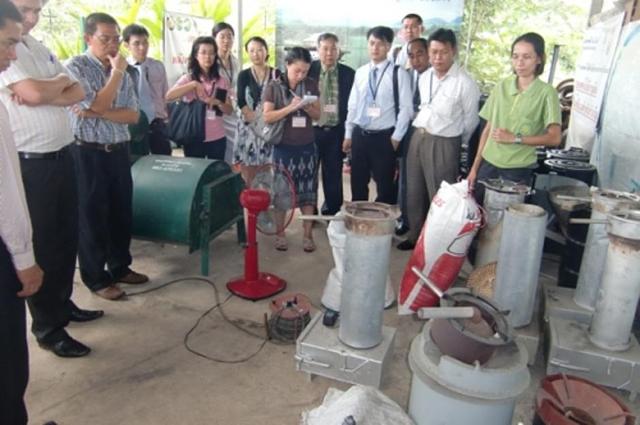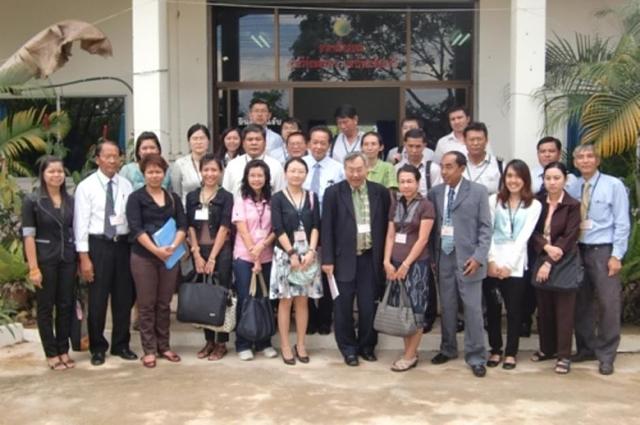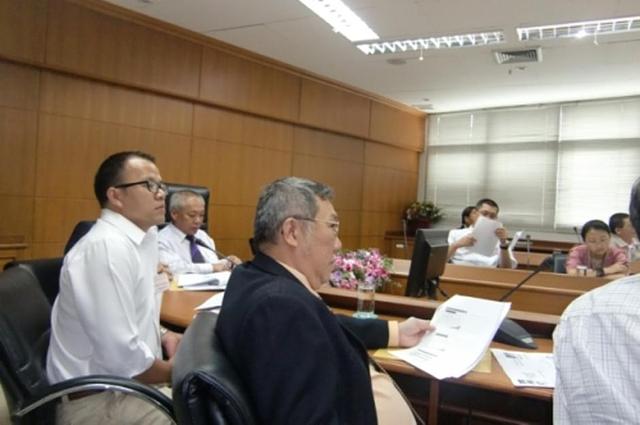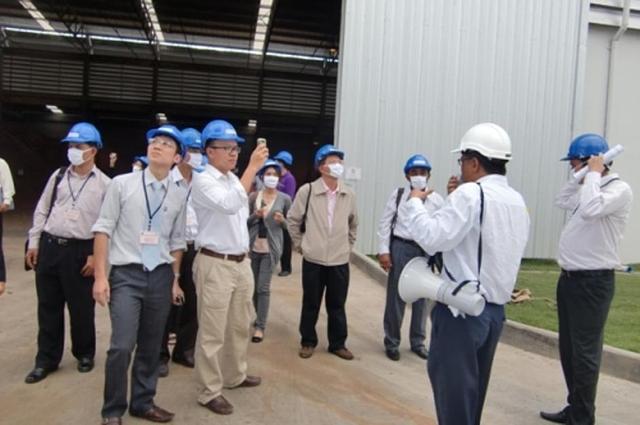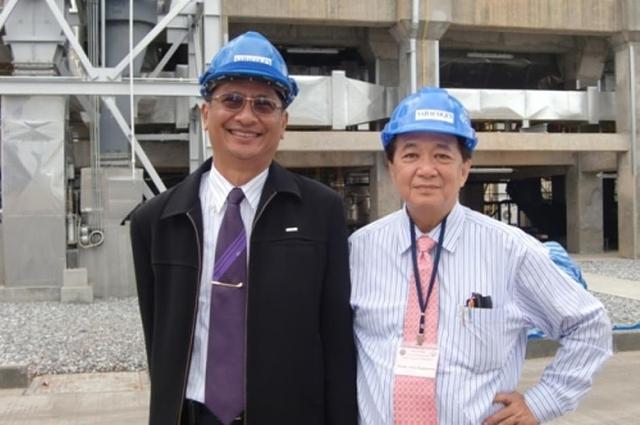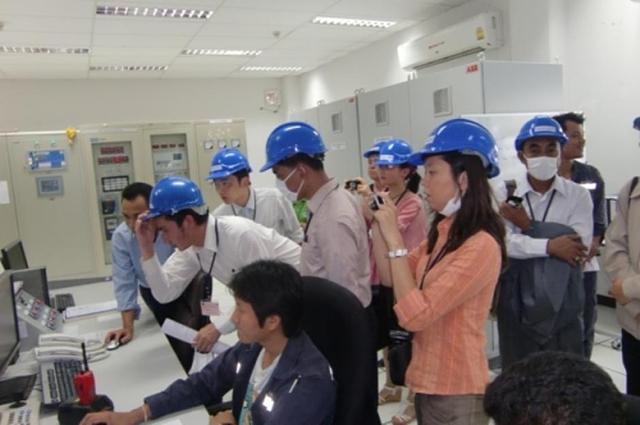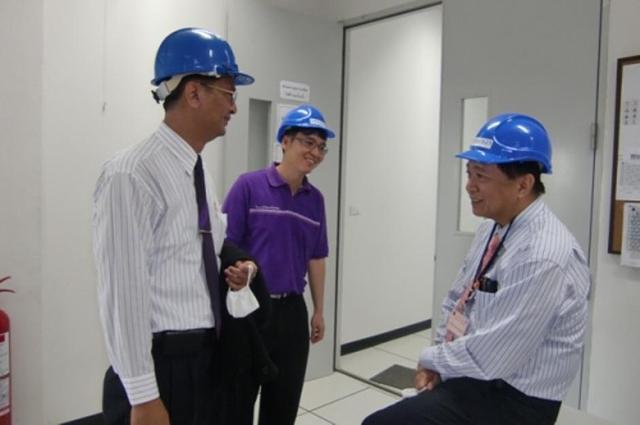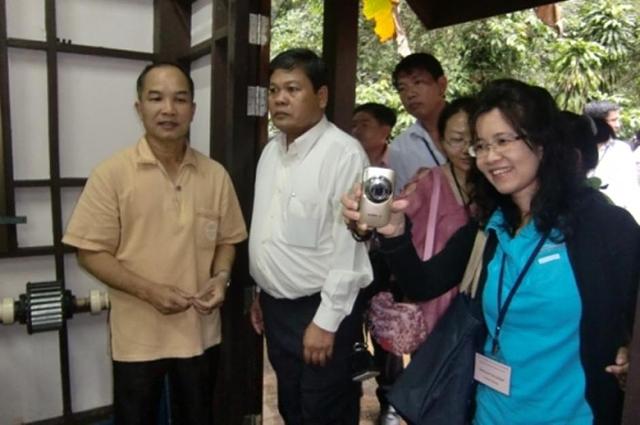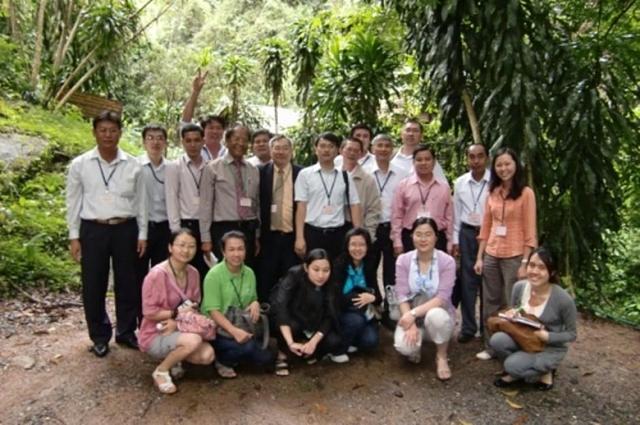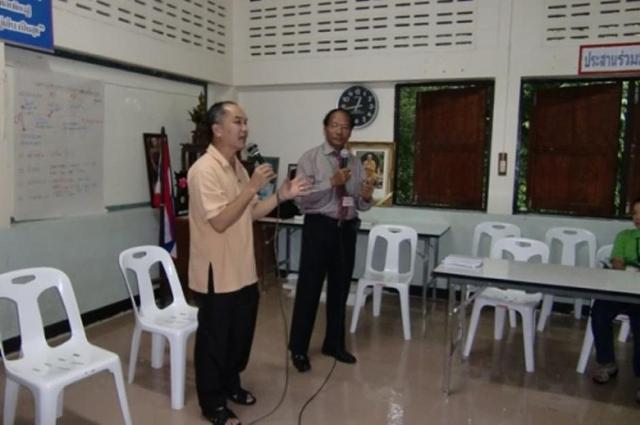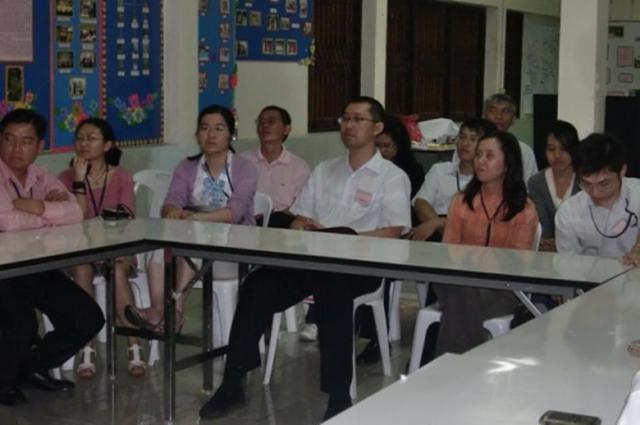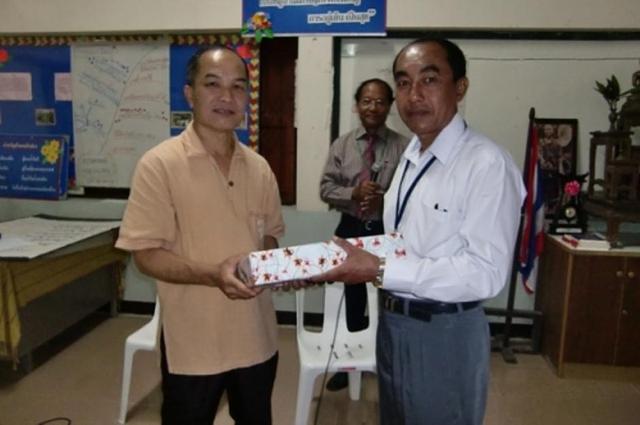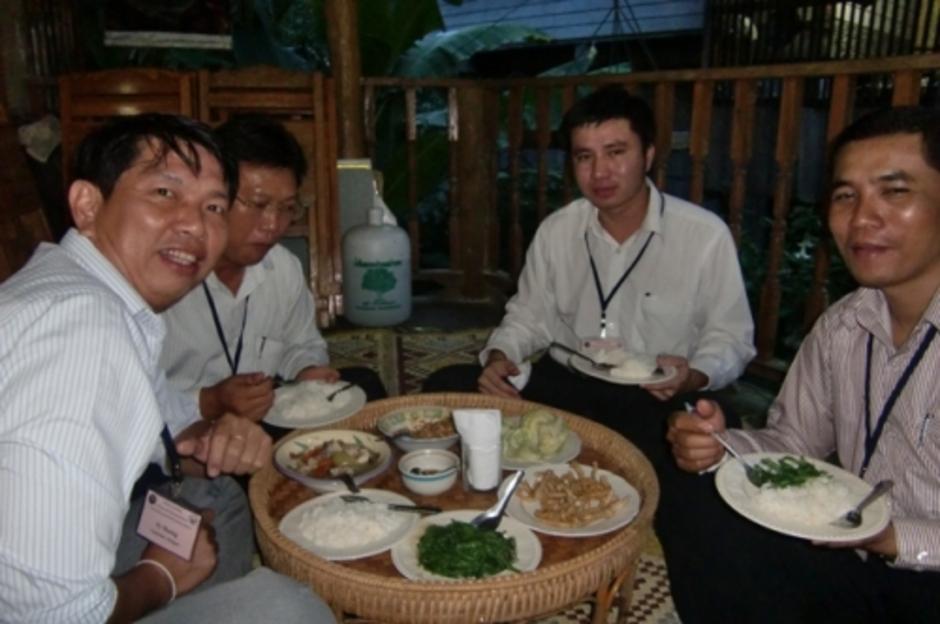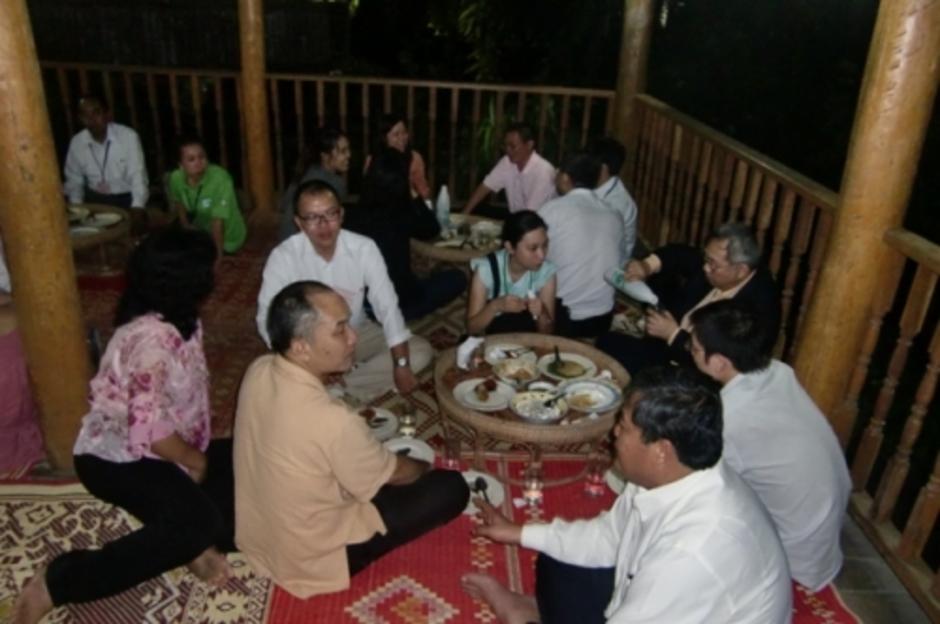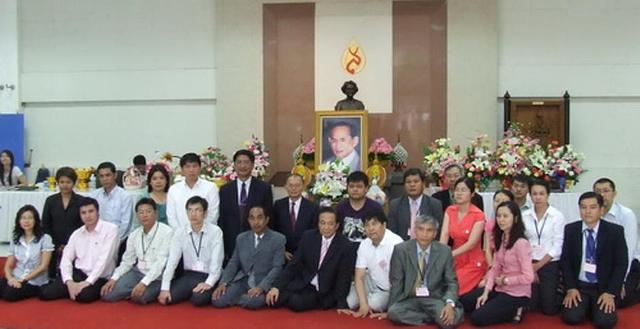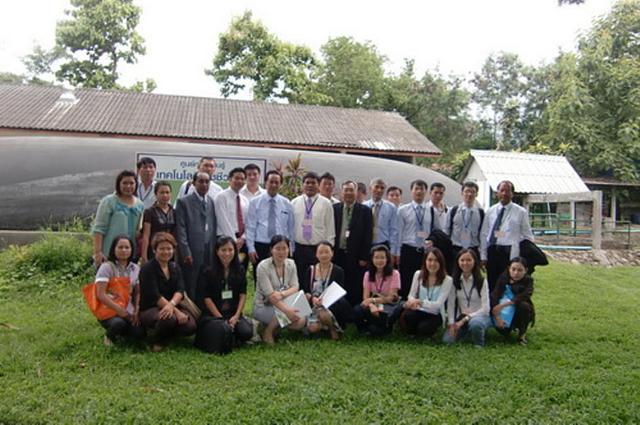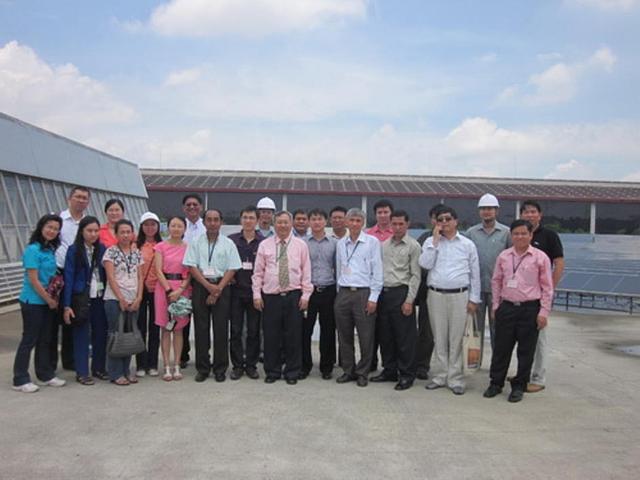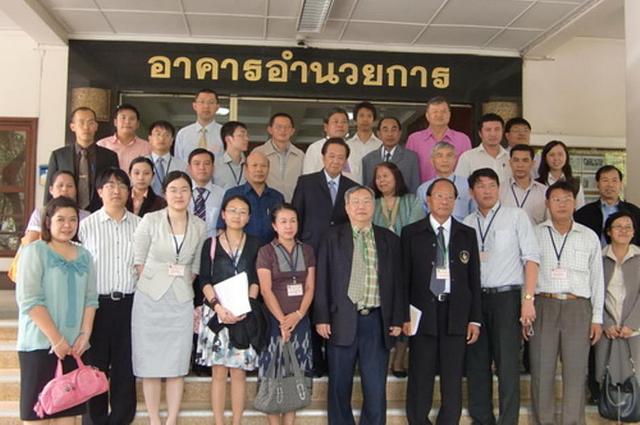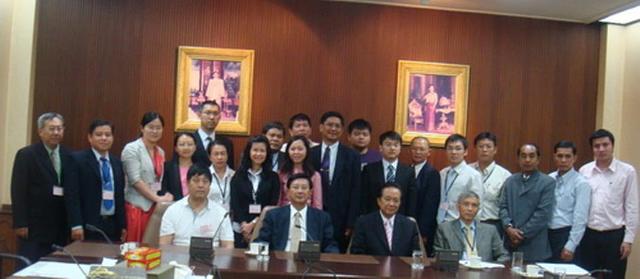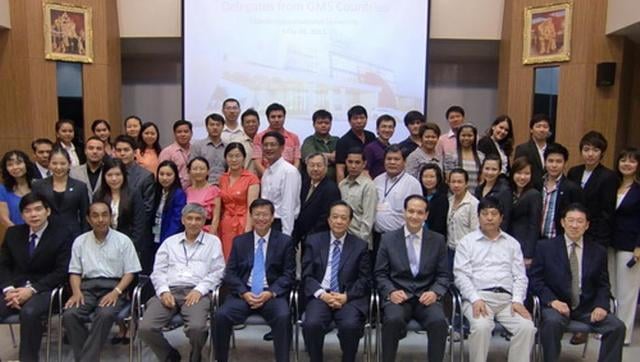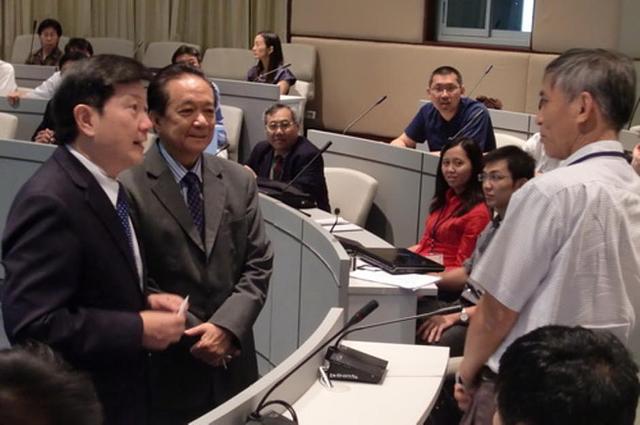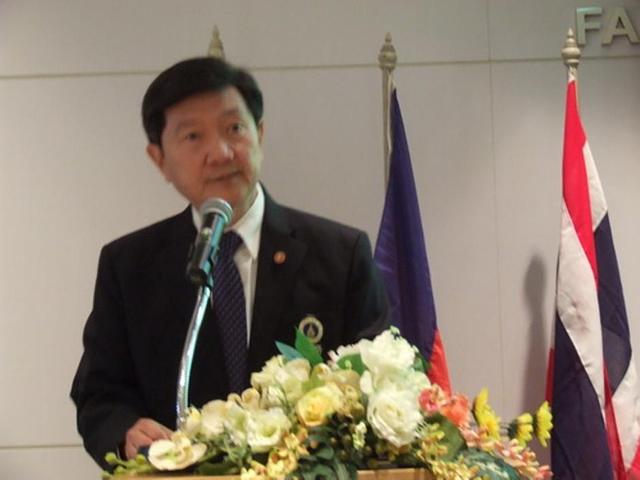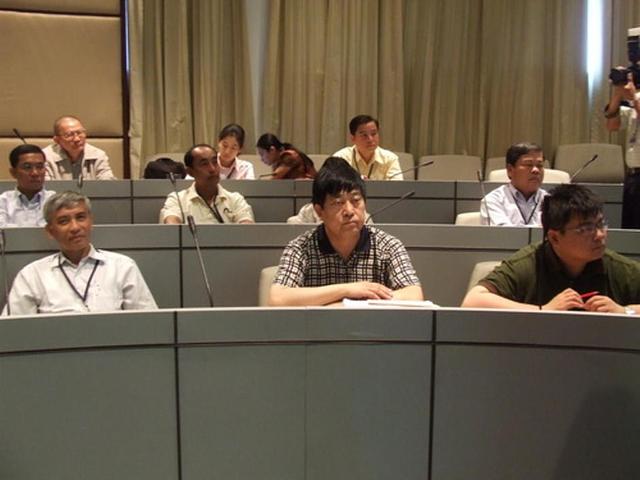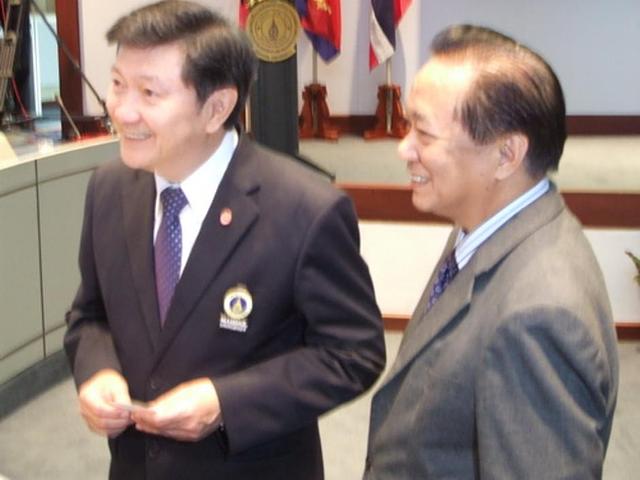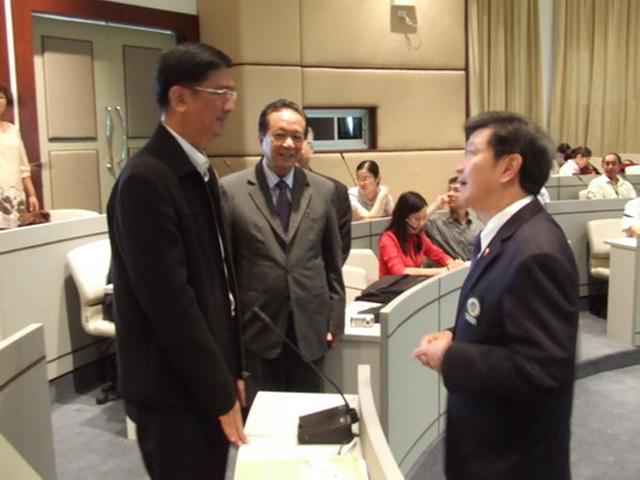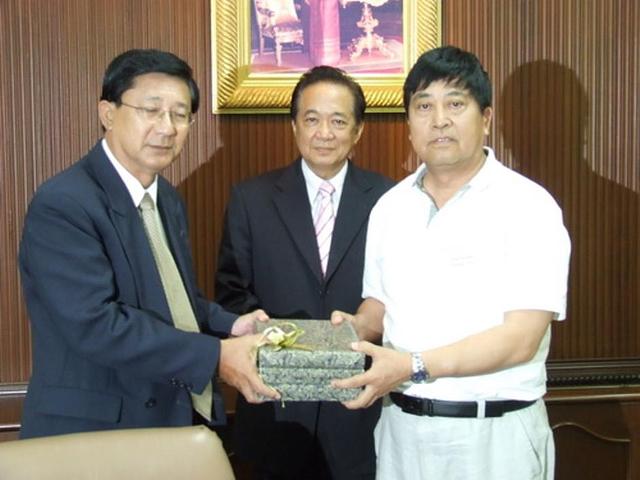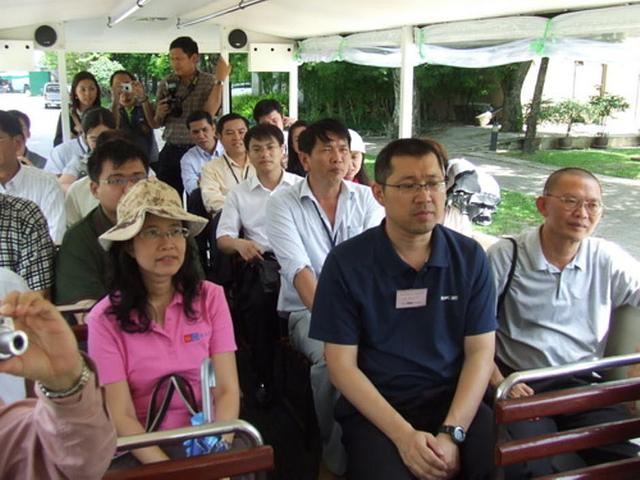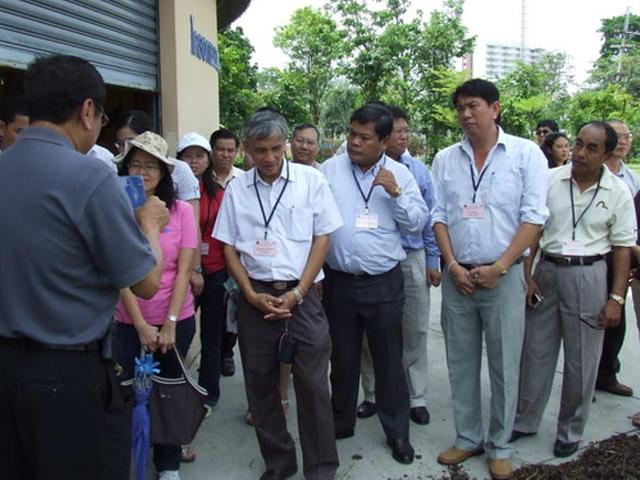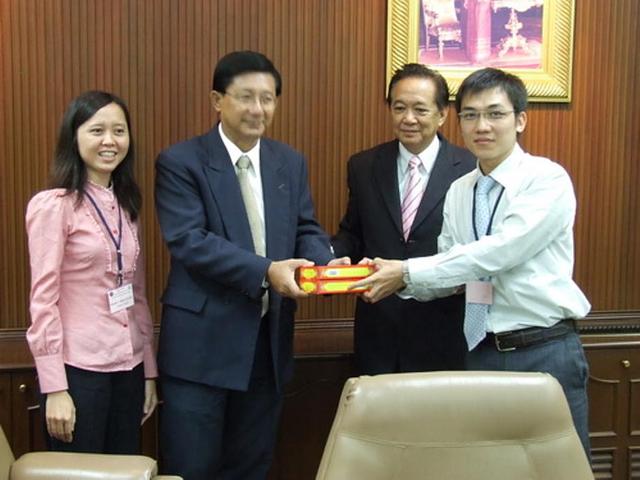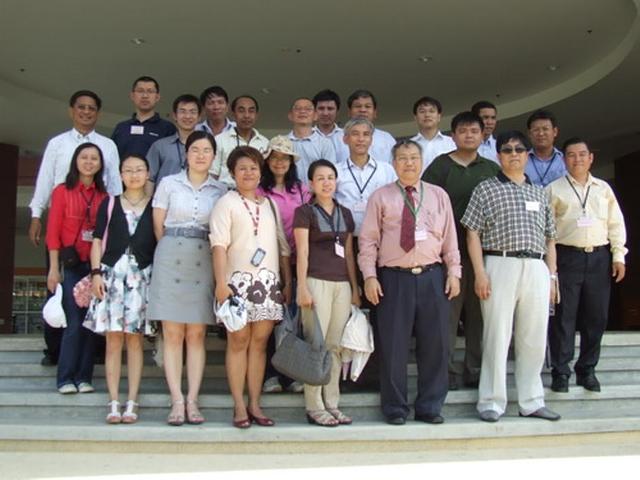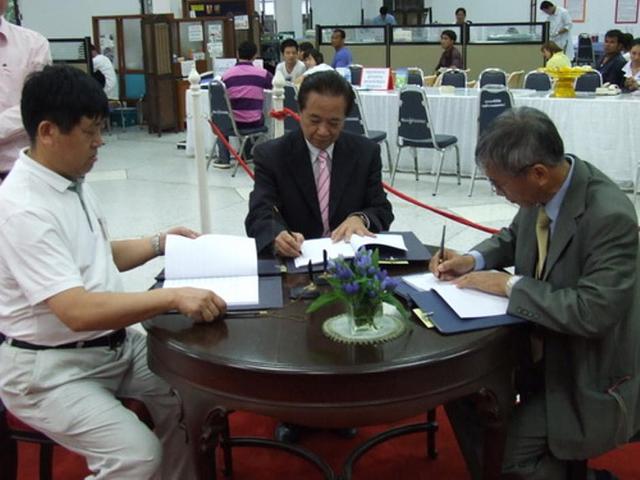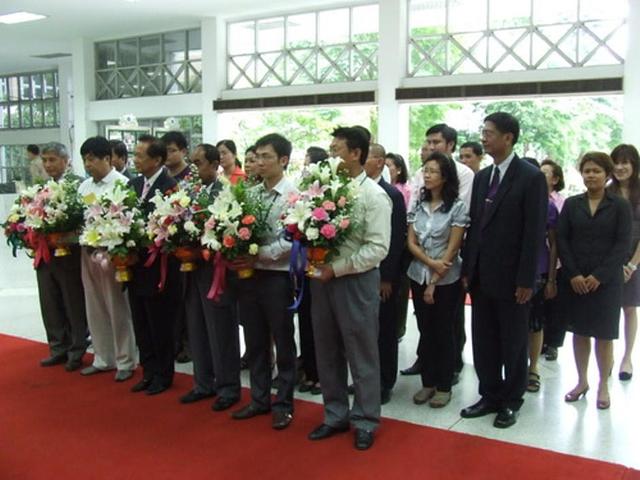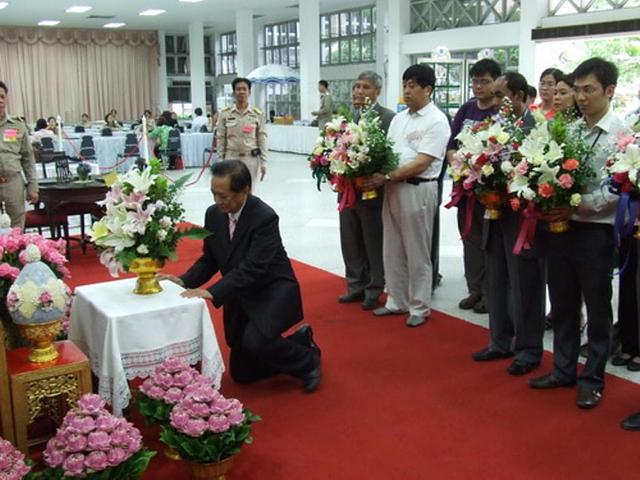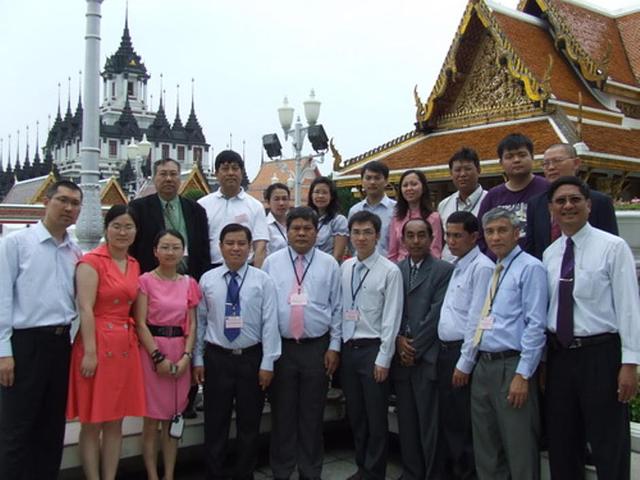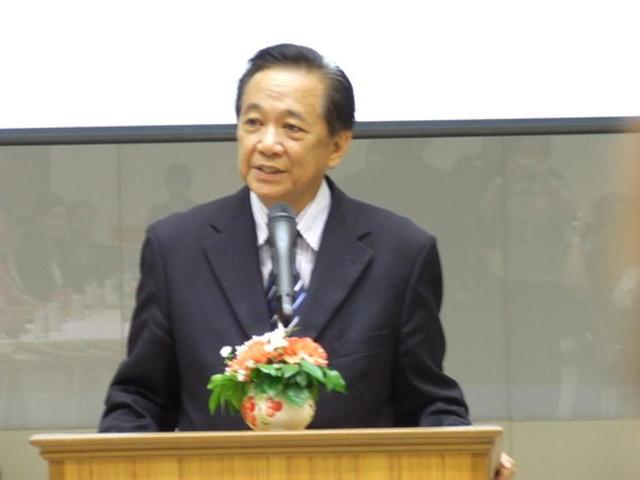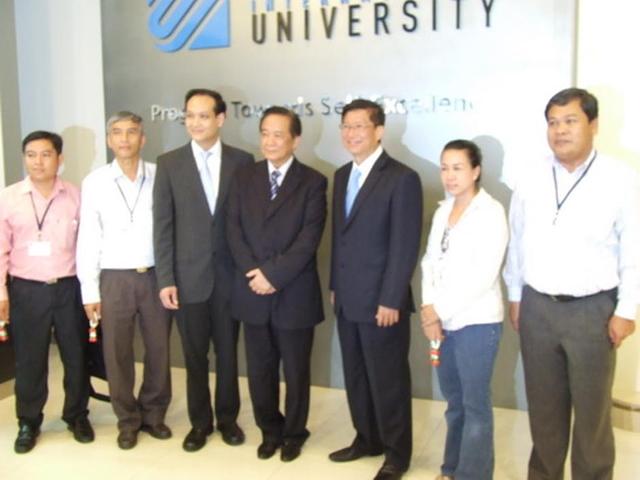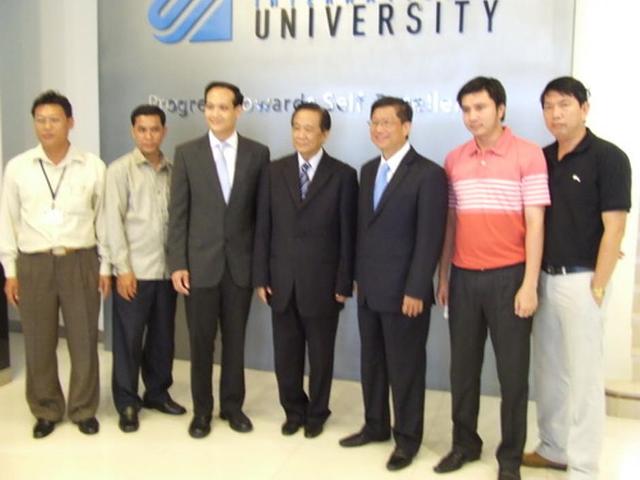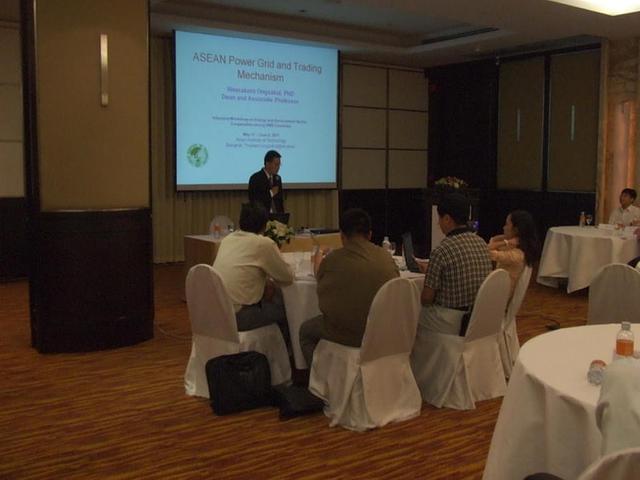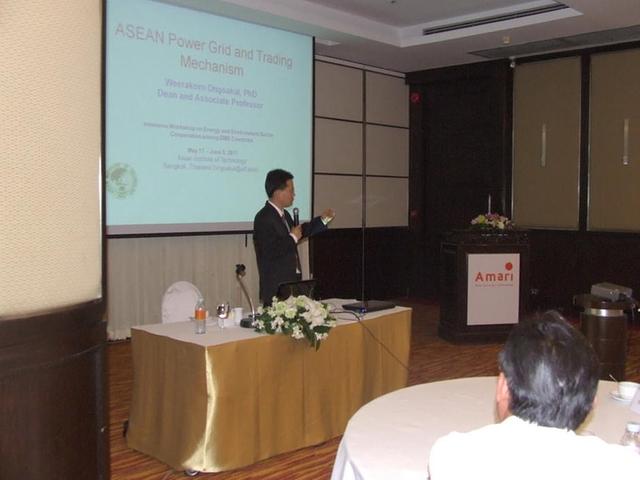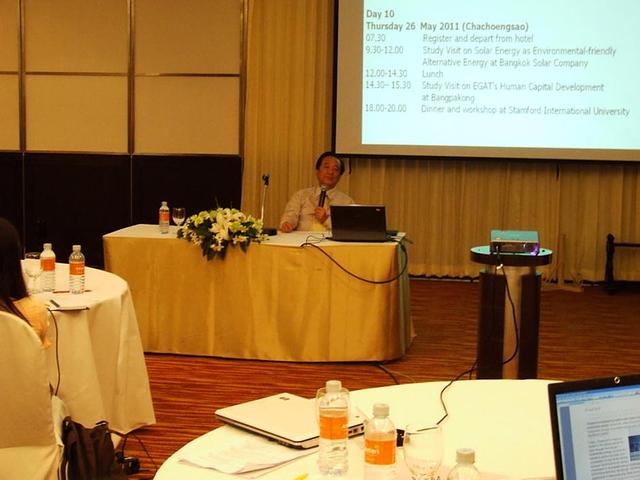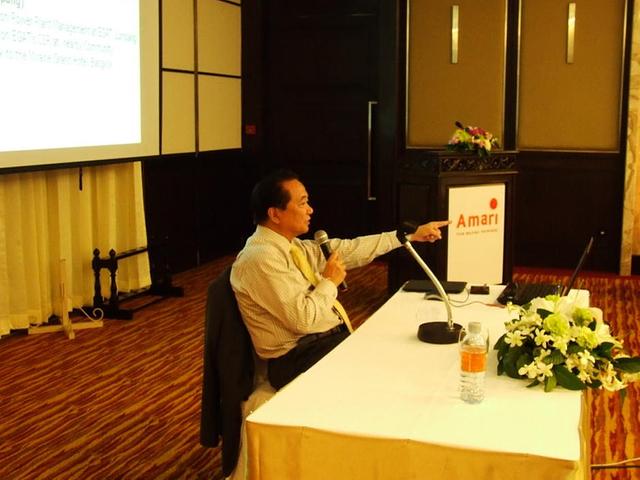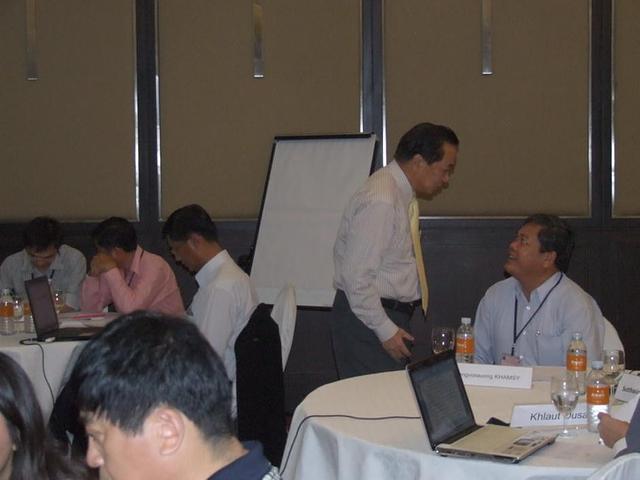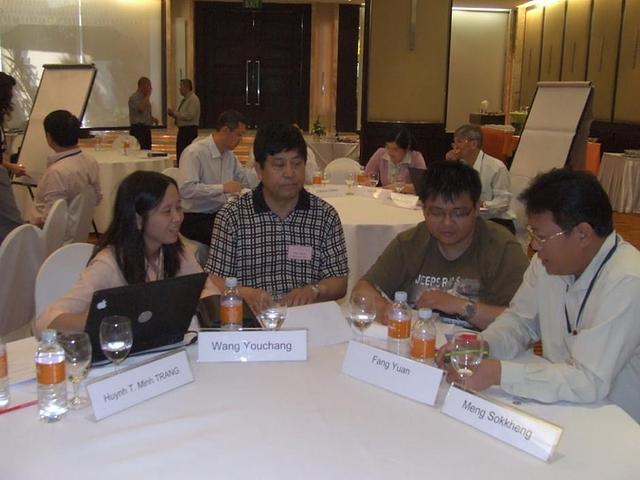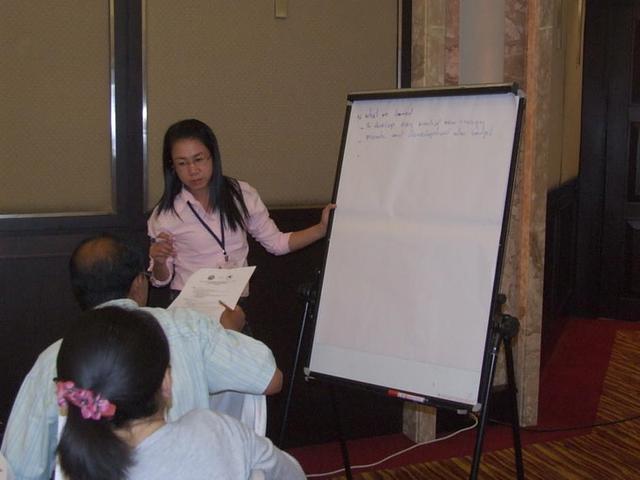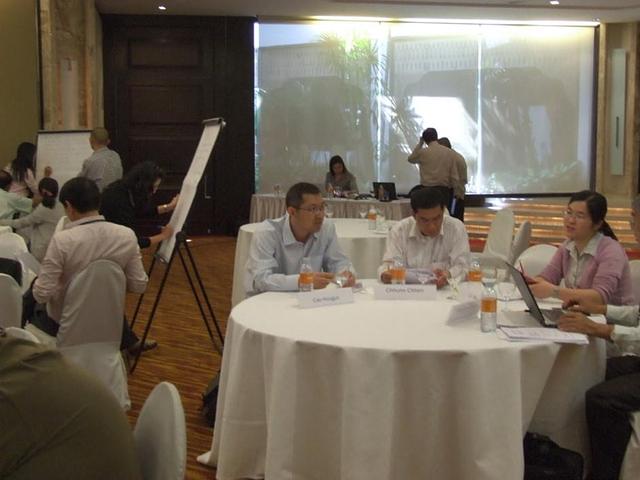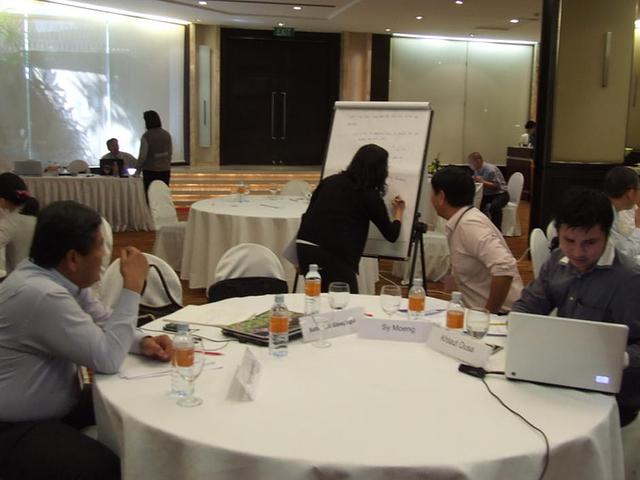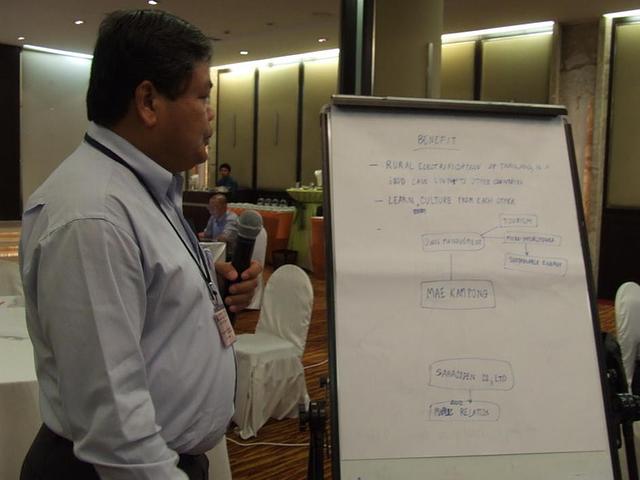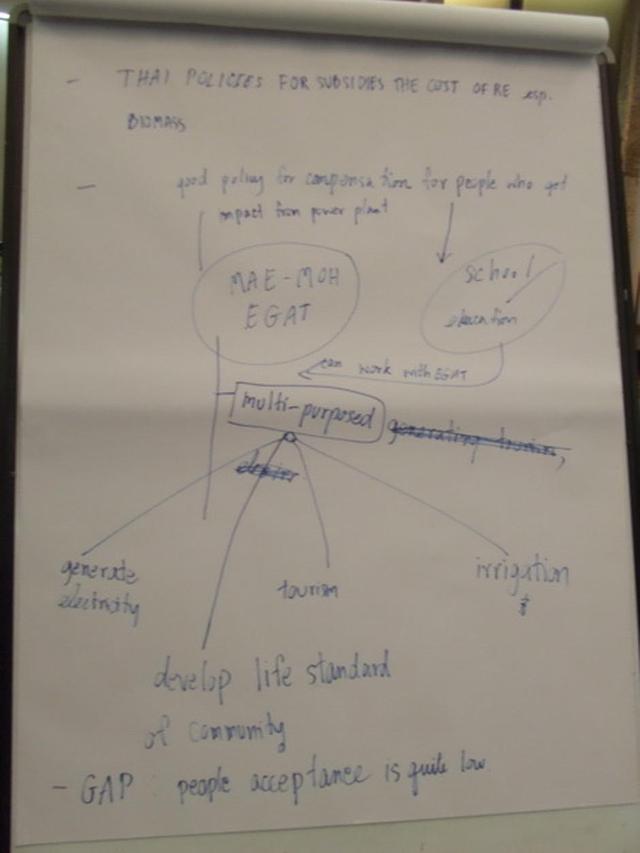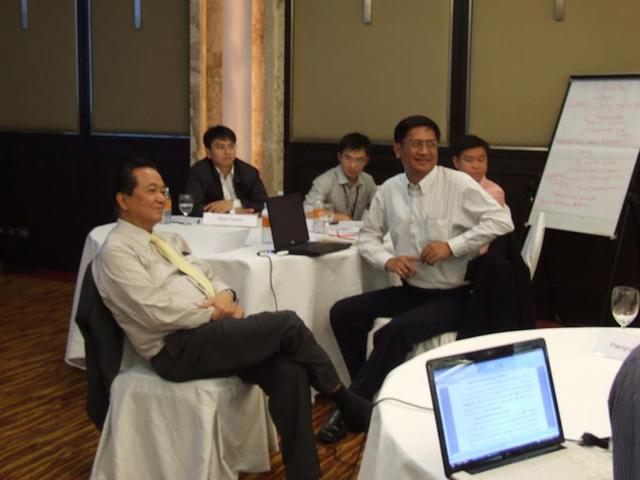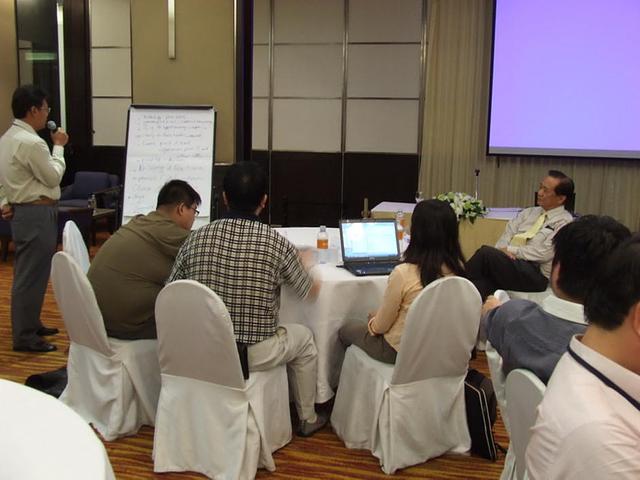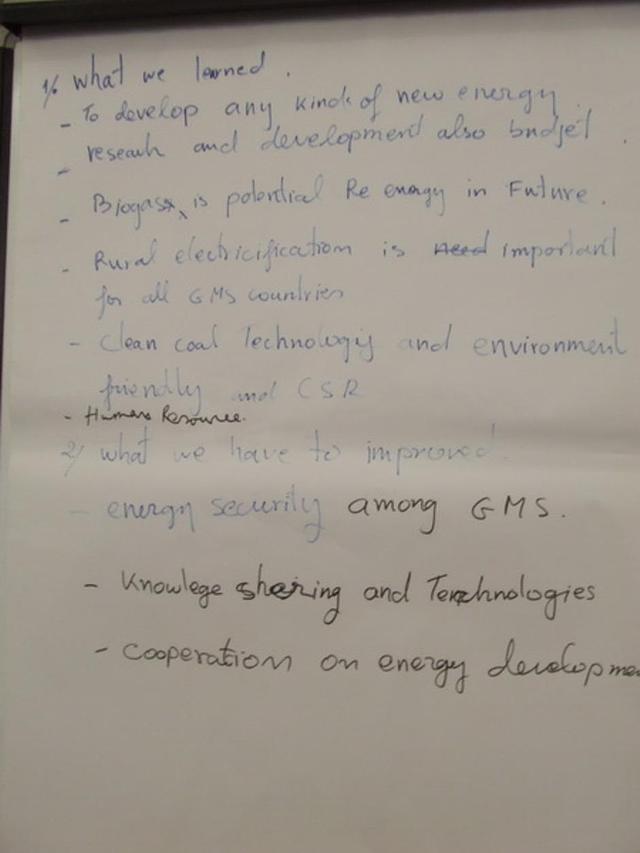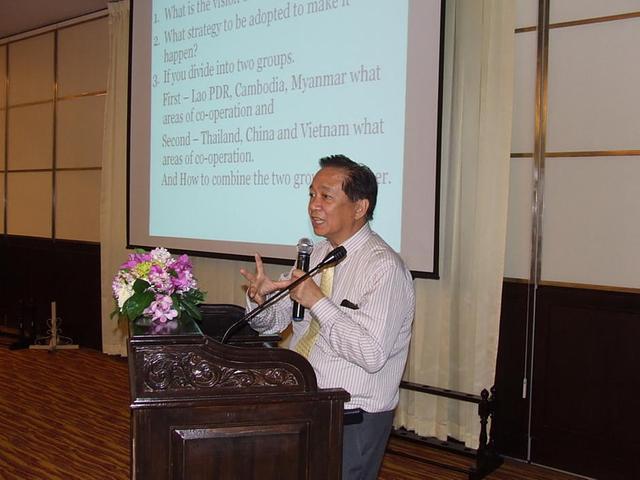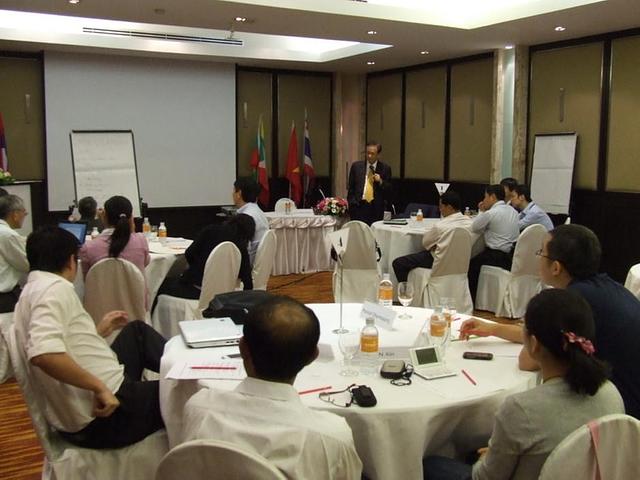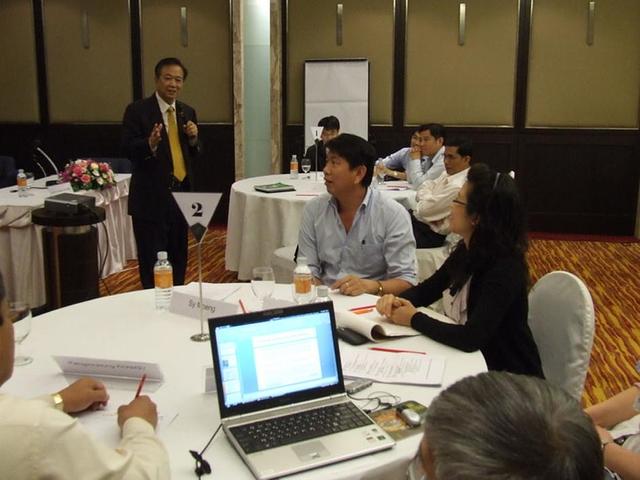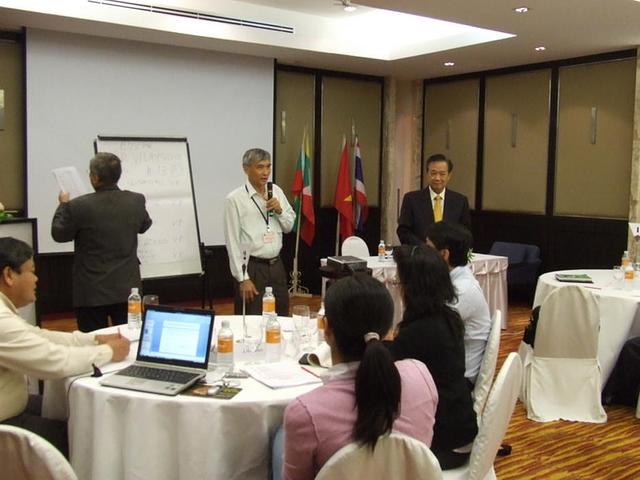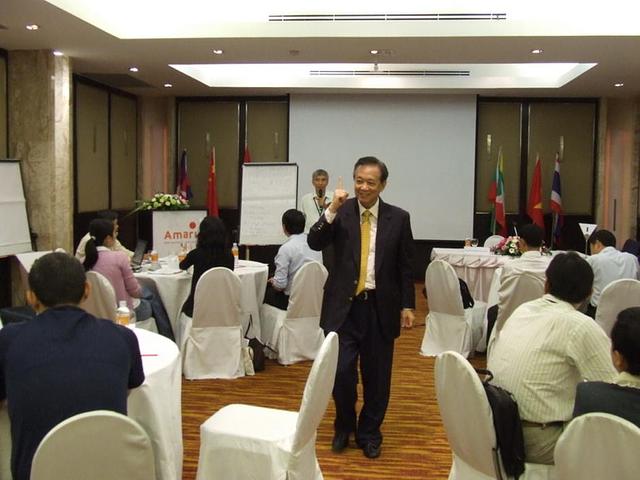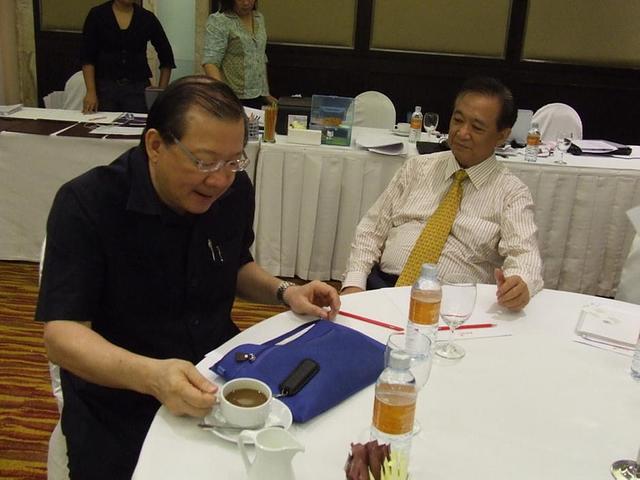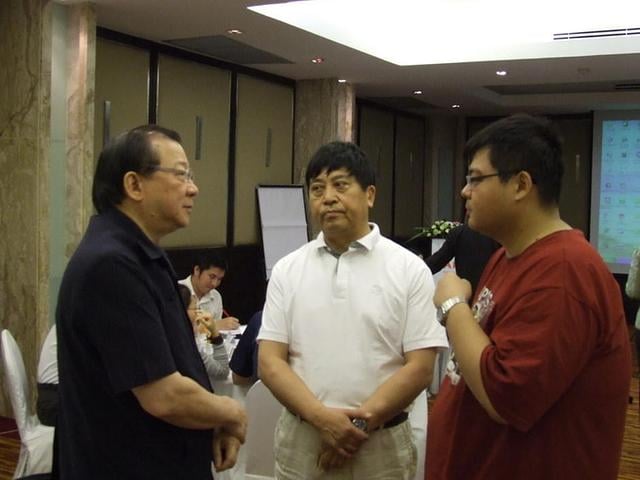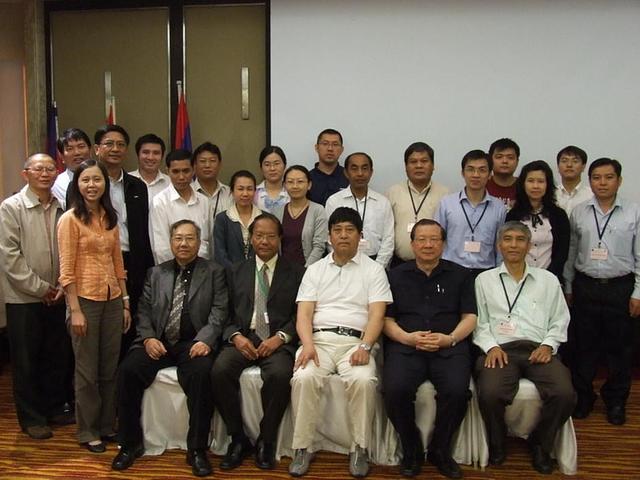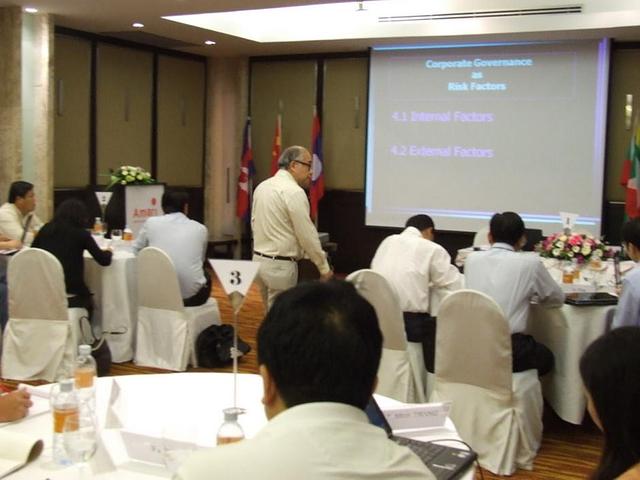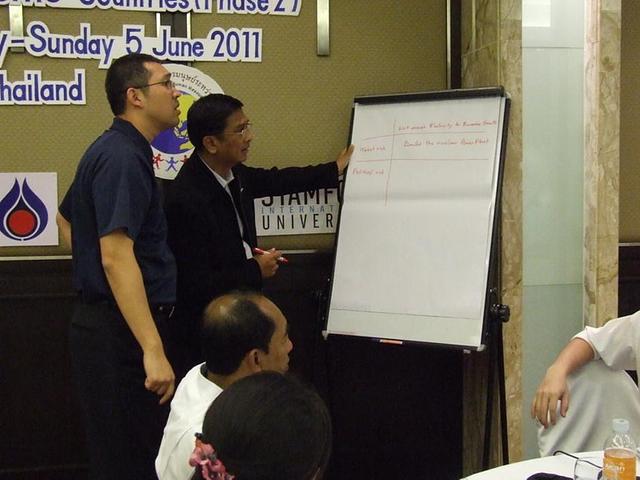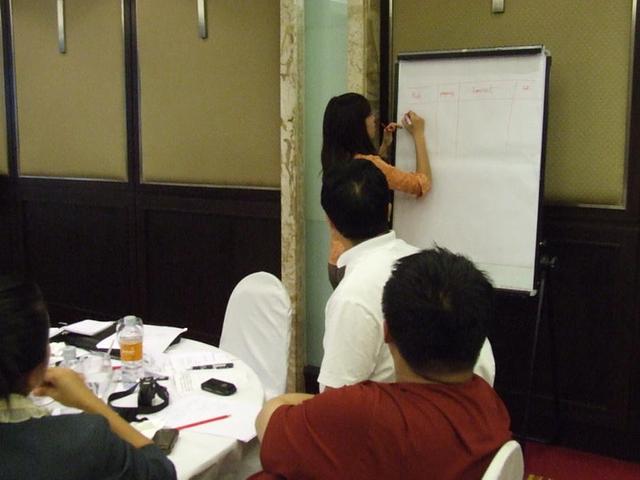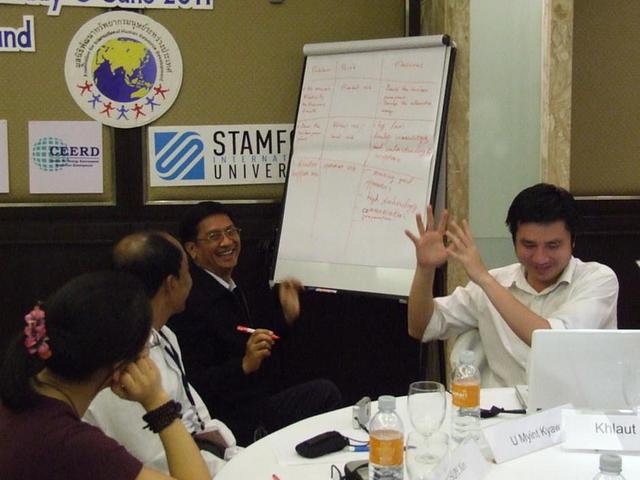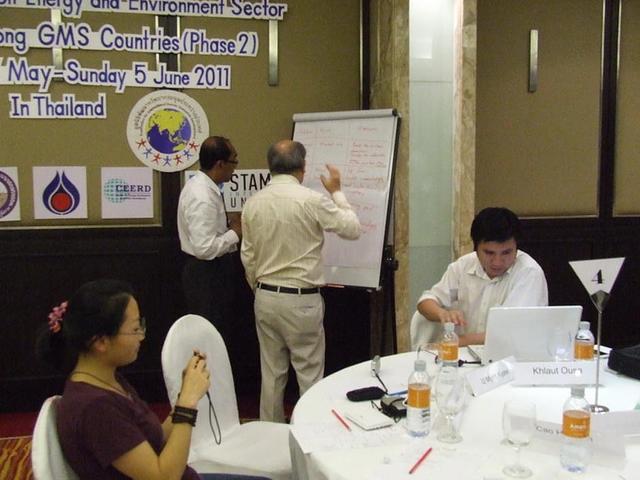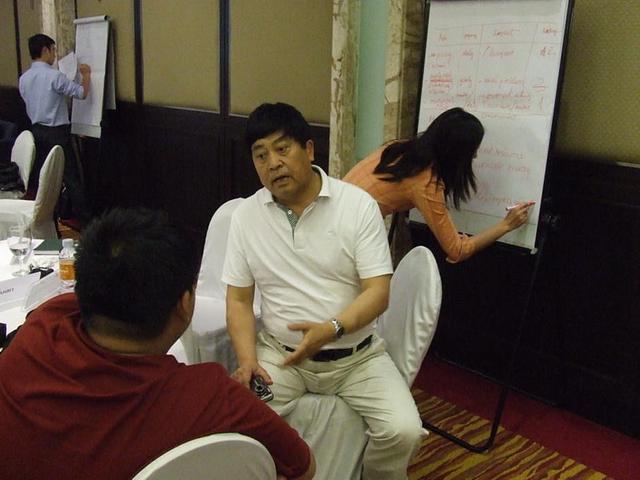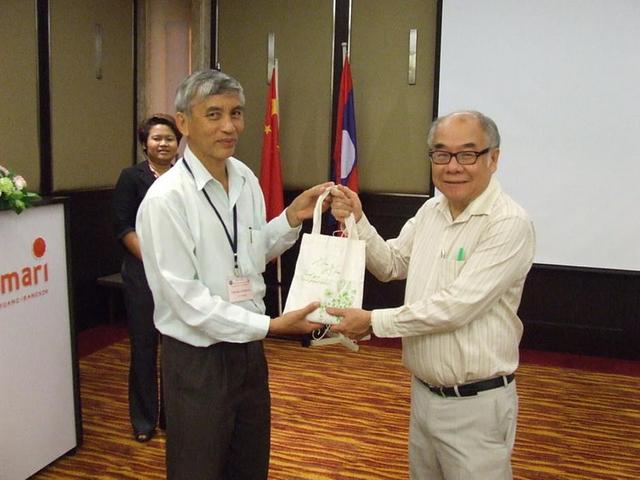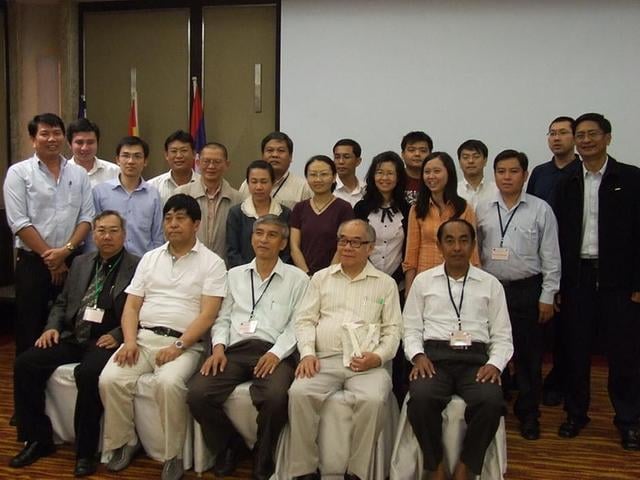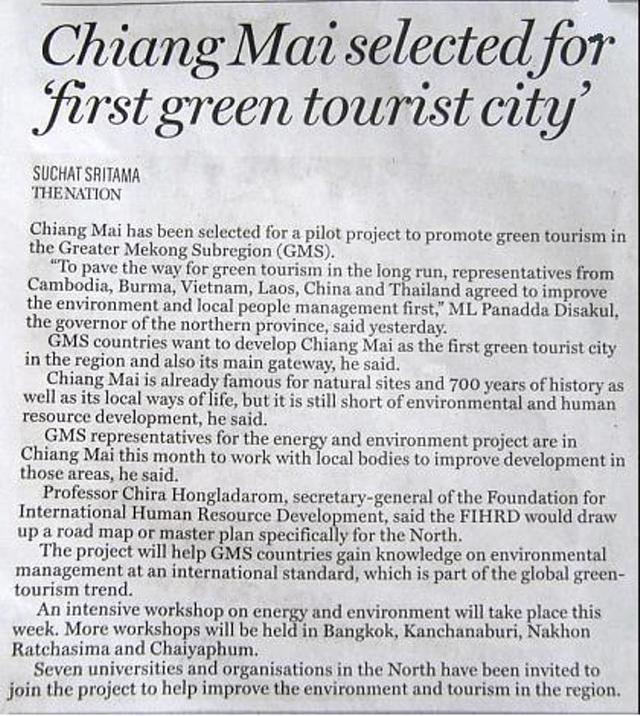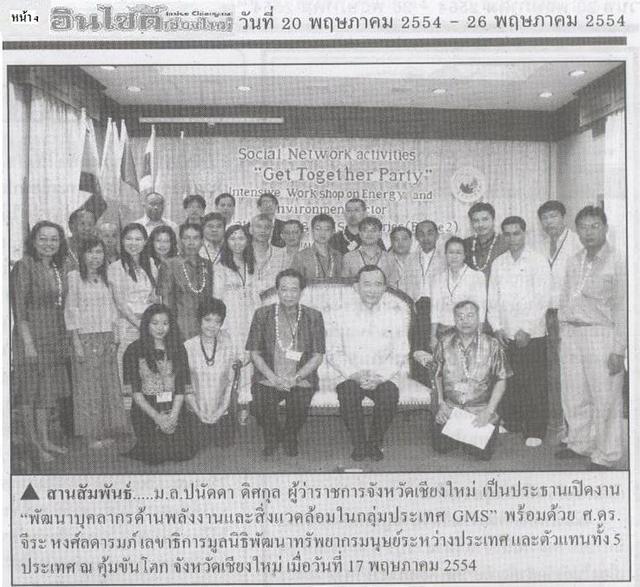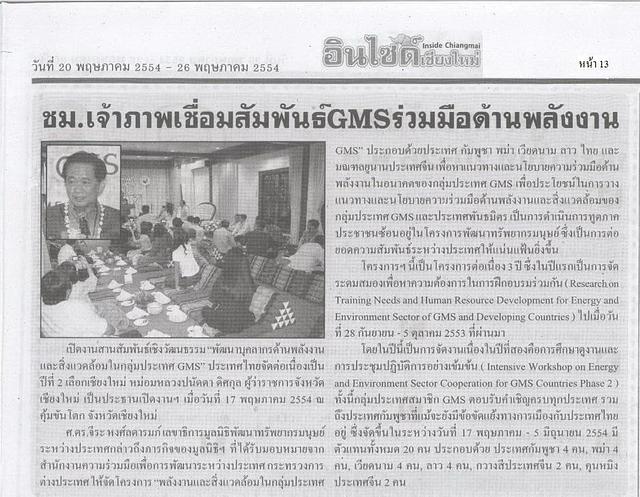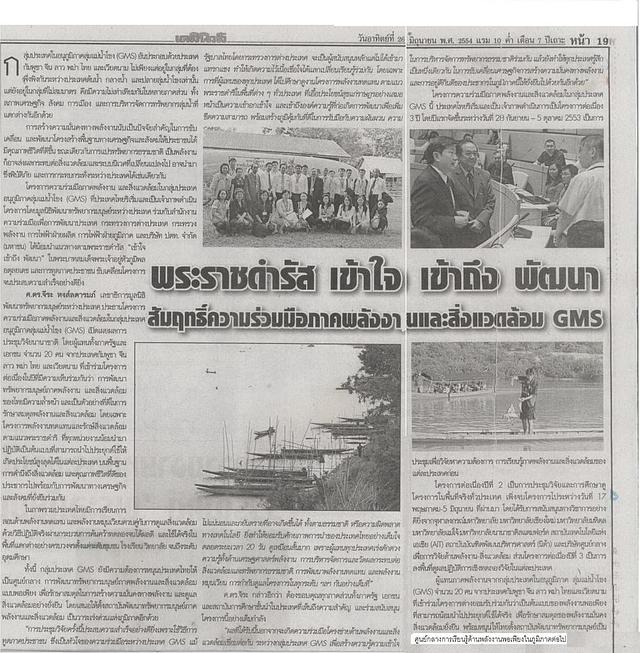Intensive Workshop on Energy and Environment Sector
Dear everyone in blog communities,
From now on I’m at Chiangmai with participants from GMS countries (Greater Mekong Sub-region) i.e. Thailand ,Myanmar,Laos,Cambodia,Vietnam,China in “Energy and Environment Projects for GMS and Developing Countries” which the Foundation for International Human Resource Development (FIHRD) in cooperation with collaborative organizations had organized research seminar on “Training Needs and Human Resource Development for Energy and Environment Sector of GMS Countries” in 2010. This seminar event turned out to be highly or satisfactorily relevant to the participants’ job responsibilities at their respective organizations. As a consequence, all participants from GMS countries strongly demanded for follow-up project on “Research Training Workshop on Energy and Environment Sector Cooperation among GMS Countries (Phase 2)”
The Foundation for International Human Resource Development (FIHRD) in cooperation with the above mentioned collaborative organizations have decided to launch such follow-up project entitled “Intensive Workshop on Energy and Environment Sector Cooperation among GMS Countries Phase 2 ” to be held during 17 May – 5 June 2011. The syllabus will be drawn from the results of the training needs obtained from previous research seminar on “Training Needs and Human Resource Development for Energy and Environment Sector of GMS Countries” which was held in Bangkok during September 28- October 4, 2010. In addition, the design of the seminar will be also focused on human resource development for the energy sector of GMS countries in general and tailor-made for each country in particular.
The learning methodology includes the case studies and study visits of relevant organizations both public and private sectors to establish an effective international energy and environment network throughout the region. This learning process will eventually enhance People-to-People Diplomacy (PPD)
As to create leaning communities in Thailand, This Blog is one of the opportunities for sharing the opinion and knowledge , so please kind to sharing idea via this blog that can helpful for creating innovation together.
Chira Hongladarom
(Follow up in Thai version at :
http://gotoknow.org/blog/chiraacademy/439585)
Social Network activities-Get Together Party ,17 May 2011
Informal Traditional Northern Thai Food Welcome Reception at Khum Khantoke
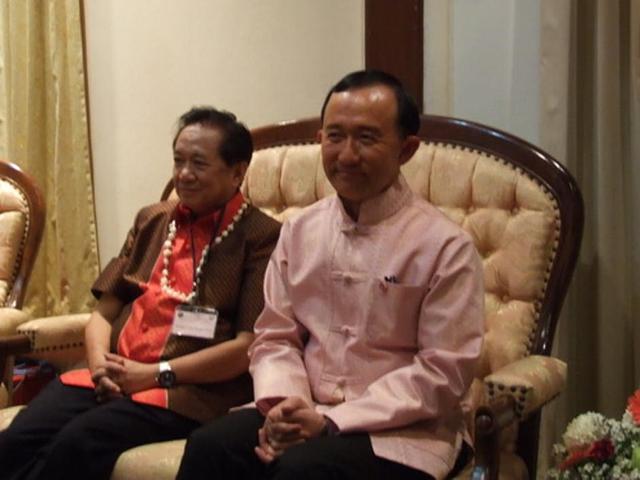
Study Visit at Energy Research and Development Institute Nakornping,
at Chiang Mai University - 18 May 2011

Lunch at Rajamangala University of Technology Lanna -
18 May 2011
Study Visit at Energy Research Center,Maejo University -
18 May 2011
Study Visit on Rural Electrification at PEA,Chiang Mai -
19 May 2011
Study Visit on Sahacogen Group Co.,Ltd. Lamphun -19 May 2011
Study Visit on MaeKampong Chiangmai, Case study for community self-sufficiency - 19 May 2011
Study Visit on Power Plant Management at EGAT,Lumpang-
20 May 2011
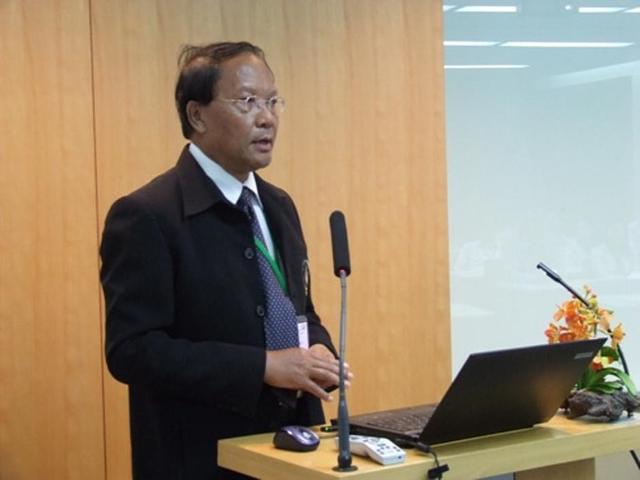
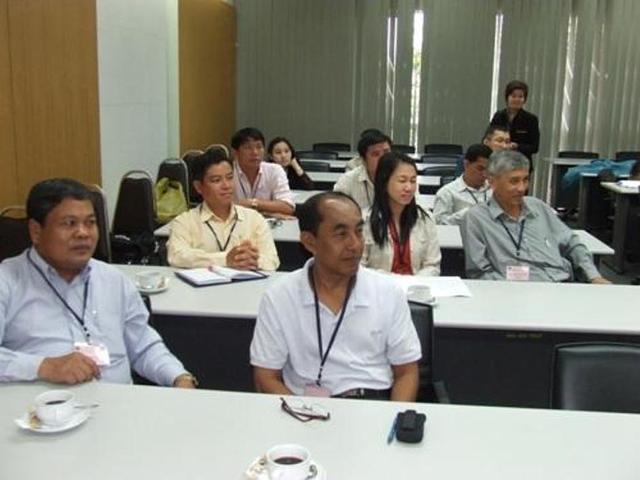
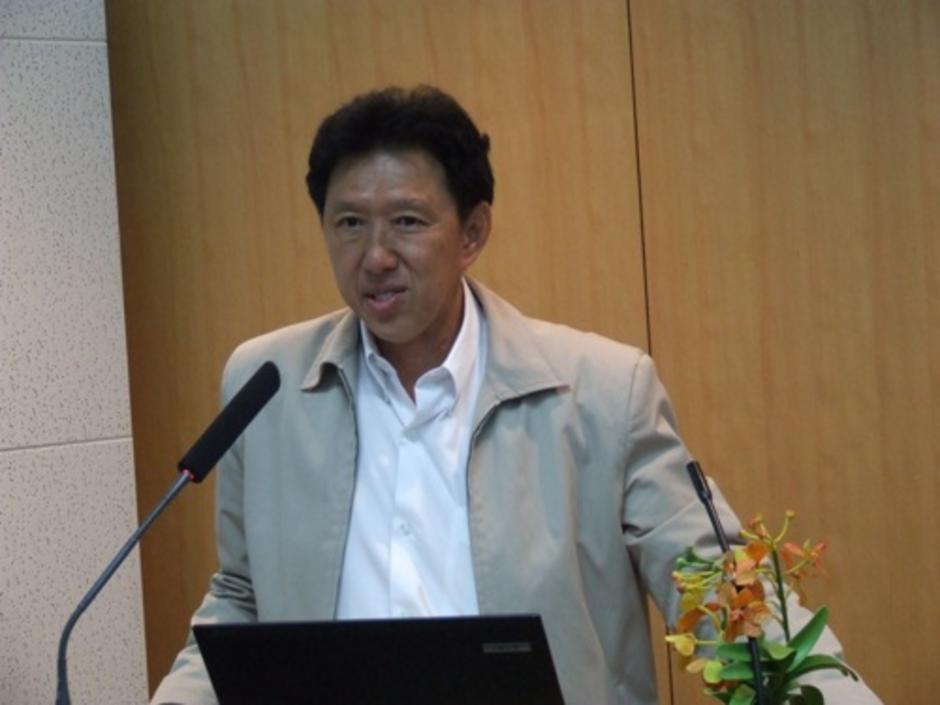
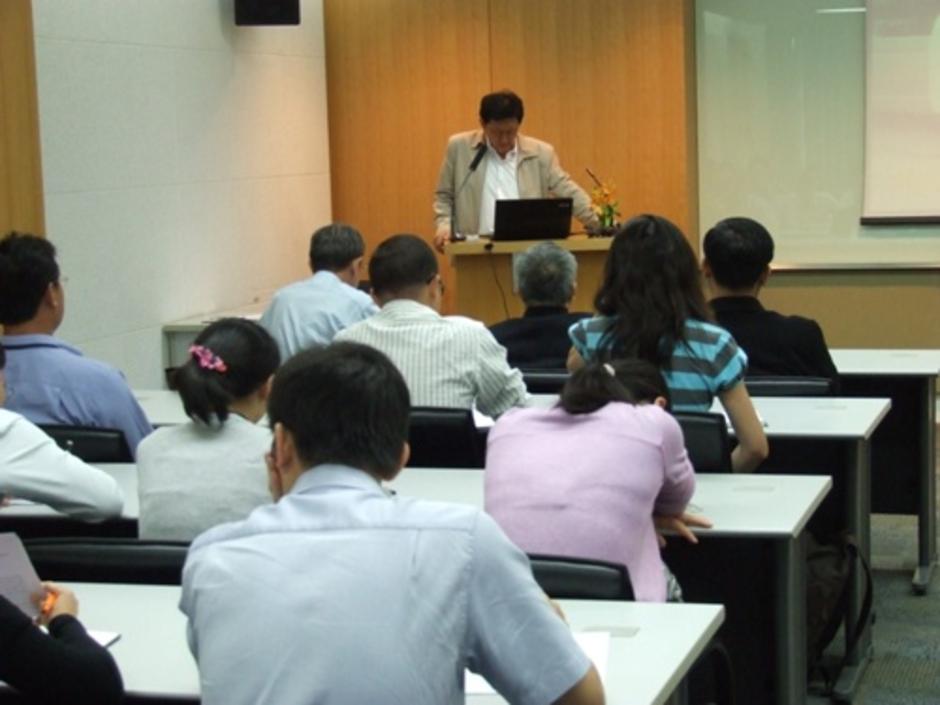
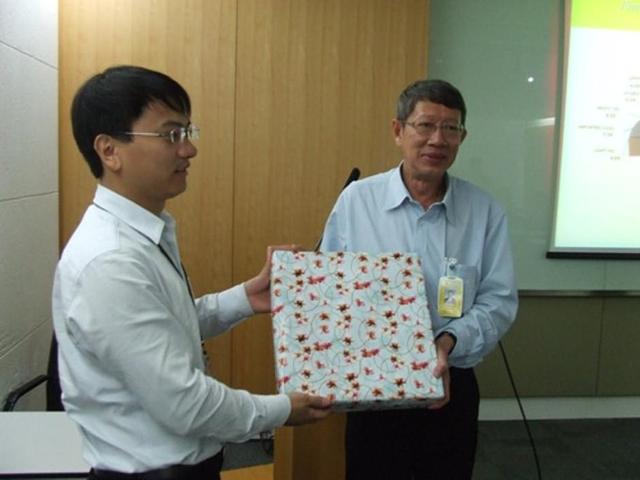
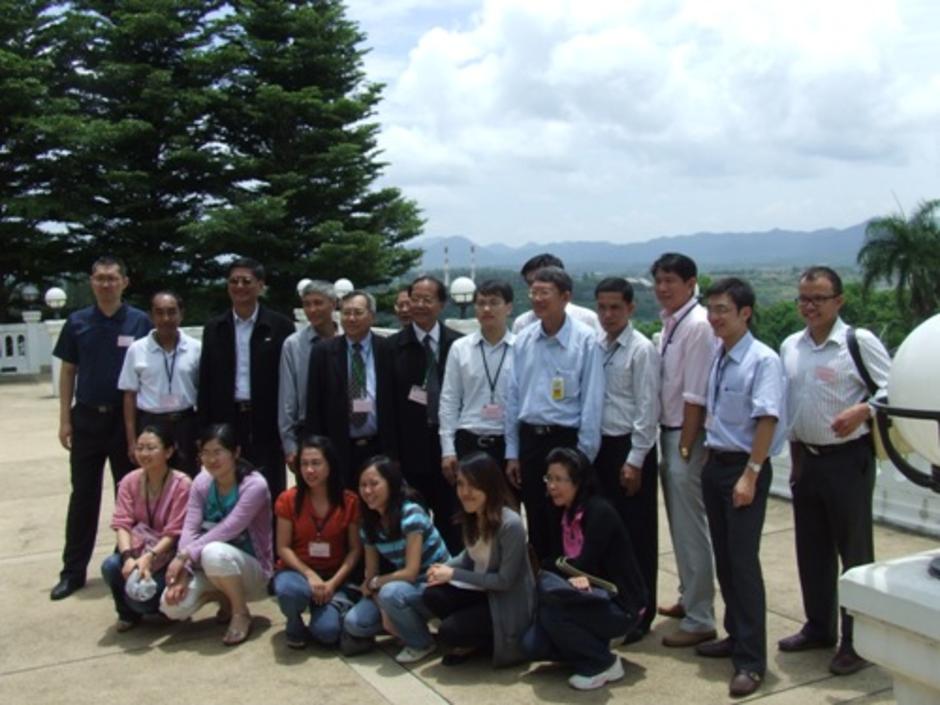
ความเห็น (60)
Program
Intensive Workshop on Energy and Environment Sector
Cooperation among GMS Countries (Phase 2)
on Tuesday 17 May - Sunday 5 June 2011
In Thailand
Day 1 Tuesday 17 May 2011 (Chiang Mai)
Morning Arriving in Thailand and connect flight to Chiang Mai
Evening Check-in at the Empress Hotel, Chiangmai
18.00-21.00
17.30
18.00
18.30
19.00 Social Network activities “ Get Together Party”
Informal Traditional Northern Thai Food Welcome Reception at Khum Khantoke
17.30 Register
18.00 Welcome Address
By ML Panadda Disakul
Chiang Mai Governor
18.30 Report
By Prof.Dr.Chira Hongladarom
Secretary-General
Foundation for International Human Resource Development
19.00 Opening Ceremony of Dinner Reception
By HRH Prince Peesadej Ratchanee
Day 2 Wednesday 18 May 2011 (Chiang Mai)
7.00-8.00 Breakfast at the hotel
9.00-11.30
Study Visit at Energy Research and Development Institute Nokornping, at Chiang Mai University
Welcome Address
By Bngsak Angkasith, Ed.D., President of Chiang Mai University
Study Visit and Presentation on Energy Research and Development Institute Nokornping’s Case Study on Alternative Energy
12.30-14.00 Lunch at Rajamangala University of Technology Lanna
Welcome Address
By the President of Rajamangala University of Technology Lanna
15.00-17.00 Study Visit at Energy Research Center, Maejo University
Welcome Address
By the President of Maejo University
Study Visit and Presentation on Alternative Energy and Environment
Day 3 Thursday 19 May 2011 (Chiang Mai)
9.00-12.00 Study Visit on Rural Electrification at PEA, Chiang Mai welcomed by Deputy Governor of PEA
12.00 Lunch
14.30-16.00 Study Visit on Rural Electrification at PEA, Chiang Mai welcomed by Deputy Governor of PEA
Day 4 Friday 20 May 2011 (Lumpang)
9.00-12.00 Study Visit on Power Plant Management at EGAT, Lumpang
Study Visit on EGAT’s CSR at nearby Community
Evening Coming back to the Miracle Grand Hotel, Bangkok
Day 5 Saturday 21 May 2011
(Opening Ceremony at the Miracle Grand Hotel, Bangkok)
9.00-10.00 Registration
10.00-10.15 Coffee Break/ Networking
10.15-12.00 Report to the Chairman
by Prof. Dr. Chira Hongladarom
Secretary-General of Foundation for International Human
Resource Development
Welcome Address
by Mr. Apinan Phatarathiyanon
Director-General of Thailand International Development Cooperation Agency (TICA)
Opening Address
by H.E. Mr. Wannanrat Channukul
Minister of Energy
12.00-13.00 Lunch
13.00-15.00 Orientation
by Prof. Dr. Chira Hongladarom
Secretary-General of Foundation for International Human
Resource Development
15.00-15.15 Coffee Break/Networking
15.15-16.00 Orientation (Continue)
by Prof. Dr. Chira Hongladarom
Secretary-General of Foundation for International Human
Resource Development
18.00-19.00 Dinner talk
By H.E. Mr. Wannanrat Channukul
Minister of Energy
19.00 Welcome Dinner
Day 6 Sunday 22 May 2011 (Kanchanaburi)
6.30 Registration and depart from the hotel
9.00-15.00 Study Visit on Hydropower Generation at Srinakarind Dam
18.00-20.00 Dinner
Safely arrive the Amari Airport Hotel
Day 7 Monday 23 May 2011 (Bangkok)
7.30 Registration and depart from the Amari Airport Hotel
9.00-12.00 Presentation on Renewable Energy for the Future
by Associate Professor Dr. Weerakorn Ongsakul,
Dean of School of Environment, Resources and Development,
Asian Institute of Technology (AIT)
12.00-13.30 Lunch
14.00-16.00 Workshop on Energy and Environment Cooperation Projects between GMS Countries and Other Countries
by Prof. Dr. Chira Hongladarom and Team
Day 8 Tuesday 24 May 2011 (Bangkok)
7.30 Registration and depart from the Amari Airport Hotel
9.00-16.00 Study Visit at Faculty of Environment and Resources Studies and Faculty of Environmental and Water Resources Engineering, Mahidol University
Day 9 Wednesday 25 May 2011 (Bangkok)
7.30 Registration and depart from the Amari Airport Hotel
9.00-11.30 Study Visit at TICA
12.00-13.30 Lunch
13.30-16.30 Blessing to His Majesty the King at Siriraj Hospital
Day 10 Thursday 26 May 2011 (Chachoengsao)
7.30 Registration and depart from the Amari Airport Hotel
9.30-12.00 Study Visit on Solar Energy as Environmental-friendly Alternative Energy at Bangkok Solar Company
12.00-13.30 Lunch
14.30-15.30 Study Visit on EGAT’s Human Capital Development at Bangpapong
17.00-20.00 Dinner and workshop at Stamford International University
Day 11 Friday 27 May 2011 (Bangkok)
8.30-9.00 Registration
9.00-12.00 Panel Discussion on Nuclear Power Plant as Alternative Energy in the Future and Impacts of Japan’s Situation on Nuclear Power Plant Policy
by Mr. Manoon Siriwan
Dr. Kamol Takabut
Chaired by Mr. Veerachai Khuprasert
Board Member
Foundation for International Human Resource Development
12.00-13.30 Lunch
13.30-16.30 Presentation on Energy Law and Energy Cooperation among GMS Countries
by Prof.Dr.Direk Lawansiri
Day 12 Saturday 28 May 2011 (Bangkok)
8.30-9.00 Registration at the Amari Airport Hotel
9.00-12.00 Panel Discussion on Human Capital Development in Energy Sector
by Mr. Alan Dale Gonzales ,Executive Director Full Advantage Co., Ltd.,
Representative from CEERD
Representative from IRPC (Khun Kraisit)
Chaired by Mr. Veerachai Khuprasert
Board Member
Foundation for International Human Resource Development
12.00-13.30 Lunch
13.30-16.30 Presentation on Leadership and Energy and Environment in the Future
by Prof. Dr. Chira Hongladarom
Secretary-General
Foundation for International Human Resource Development
Day 13 Sunday 29 May 2011 (Bangkok)
8.30-9.00 Registration at the Amari Airport Hotel
9.00-12.00 Panel Discussion on International Cooperation on Energy and Partnership
by Representative from Ministry of Energy
Mr. Varavat Siriphon, EGAT
Mr.Voravud Tomon
Chaired by Prof. Dr. Chira Hongladarom
Secretary-General
Foundation for International Human Resource Development
12.00-13.30 Lunch
13.30-16.30 Presentation on Project Management and Workshop
by Dr. Adis Israngkul Na Ayudhaya, Dean of School of Development Economic,NIDA
Day 14 Monday 30 May 2011 (Bangkok)
8.30-9.00 Registration at the Amari Airport Hotel
9.00-12.00 Presentation on Energy Economics
by Dr. Praipol Koomsup
12.00-13.30 Lunch
13.30-16.30 Presentation on Environment and Energy Risk Management Case Study
By Assoc. Prof. Dr. Somjai Phagapasvivat
Day 15 Tuesday 31 May 2011 (Chaiyapoom)
6.30 Depart from Amari Airport Hotel
11.00 Lunch at Chumpae District
12.00-16.00 Study Visit on Biogas and Biomass at the North East Power Plant and Phukhiao Ethanol Plant in Chaiyapoom
18.00 Arrive at Sima Thani Hotel, in Nakhonratchasima
Dinner
Day 16 Wednesday 1 June 2011 (Nakhonratchasima)
10.00-15.00 Study Visit on Wind Power Generation at Lamtakong Dam
18.00 Dinner
20.00 Safely arrive at the Royal River Hotel, in Bangkok
Day 17 Thursday 2 June 2011 (Pathumthani)
9.30-12.00 Study Visit and Presentation on Energy Conservation at Building Factory Conservation Housing Estate
Presentation on Energy Conservation and Economic of Energy
12.00-13.30 Lunch
13.30-16.00 Action-based Workshop on Energy Conservation
Day 18 Friday 3 June 2011 (Bangkok)
All day Study Visit on Environment Assessment
Day 19 Saturday 4 June 2011 (Bangkok)
8.30-9.00 Registration at Royal River Hotel
9.00-12.00
Workshop Presentation on Energy and Environment Cooperation Projects between GMS Countries and Other Countries
Commented by Prof. Dr. Chira Hongladarom and Team
12.00-13.30 Lunch
13.30-16.30 Panel Discussion on Energy Research and Cooperation
by Representative from Chulalongkorn University
Representative from Mahidol University
Mr. Alan Dale Gonzales, Executive Director of Full Advantage Co., Ltd.
Representative from CEERD
Associate Professor Dr. Weerakorn Ongsakul,
Dean of School of Environment, Resources and Development,
Asian Institute of Technology (AIT)
Chaired by Prof. Dr. Chira Hongladarom
Secretary-General
Foundation for International Human Resource Development
Day 20 Sunday 5 June 2011 (Bangkok)
8.30-9.00 Registration at Royal River Hotel
9.00-12.00 Concluding Remarks and common perception about international energy and environment cooperation
12.00-13.30 Lunch
13.30-14.30 Closing Ceremony and Certificates Awarding Ceremony
Evening Depart from Thailand
I’d like to take this opportunities to welcome all the GMS Participants to Chiangmai
I hope you will find the traveling to Thailand and Chiangmai - not to tired . I look forward to working with my friends from GMS.
Cao Hongjun, zhao Fuzhen
Assignment 1 18/5/11
Study Visit on Biogas at Energy Research and Development Institute Nakornping, at Chiang Mai University
1.Please tell us about the current situation in your country.
- Biogas has been one of important energy in Guangxi Province, especially in countryside. Biogas project is one part of the construction of modern village in Guangxi, and it has been proved to be a good practice. To be frank, there may be some difficult for biogas project if there is no or little subsidy. In Guangxi, the subsidy is more than 40% of total cost for a biogas project.
2. What are lessons learnt today?
- We got some new and meaningful information from the lessons, also we noticed there is some difference between Thailand and Guangxi’s biogas project, that’s why GMS countries need to learn from each other.
3.What areas of international cooperation at organization level or Macro level are you interested in?
- We think GMS countries should share more information about biogas technology and actual project, and Guangxi is willing to share experience in modern village construction combined with biogas project.
Study Visit on Biomass at Energy Research Center, Maejo University
1. Please tell us about the current situation in your country.
- Guangxi’s emphasis on biomass is biomass power plant. We has built 2 biomass power plants and other 4 is being constructed with total capacity of 0.2 million KW. We plan to construct 25 biomass power plants with capacity of 0.75 million KW within 5 years.
2. What re lessons learnt today?
- Biomass gasification technology impressed us, and we think it could be used in Guangxi`s countryside for it’s high efficiency and low emission.
3. What areas of international cooperation at organizational level or Macro level are you interested in?
- Guangxi would like to share information and technology about biomass energy with GMS countries, especially in construction of biomass power plant. We hope there is some actual project corporation between GMS countries.
Mr.Cao Hongjun
Mr.Zhao Fuzhen
Guangxi
Assignment 1 18/5/11
Study Visit on Biogas at Energy Research and Development Institute Nakornping, at Chiang Mai University
1.Please tell us about the current situation in your country.
- In china, Biogas resources abound, and the technologies for the utilization of biogas are the latest. Especially in Yunnan province. It boasts fairly rich biogas resources, due to the abundant materials, appropriate Sunshine and temperature, and it is popular in rural Yunnan
2. What are lessons learnt today?
- The developing conditions of utilizing biogas ,such as ERDI’s CMU-CO technology
3.What areas of international cooperation at organization level or Macro level are you interested in?
- To generate electricity by utilizing biogas.
Study Visit on Biomass at Energy Research Center, Maejo University
1. Please tell us about the current situation in your country.
- Yunnan boasts fairly rich biomass resources, ranking first in China.There are more than 200 kinds of woody oil plants. By utilizing biomass. We can produce bio-diesel and fuel alcohol,generate electricity and so on.
2. What re lessons learnt today?
- Some good utilizations of biomass, especially about gasification.
3. What areas of international cooperation at organizational level or Macro level are you interested in?
- To generate electricity by utilizing biomass, especially in the larger scale
Ms.LIU Bin
Yunnan
Assignment 1 18/5/11
Study Visit on Biogas at Energy Research and Development Institute Nakornping, at Chiang Mai University
1.Please tell us about the current situation in your country.
- In Yunnan province, the biogas is very rich in natural resources , and it has been used widely in rural areas.
2. What are lessons learnt today?
- The presentation was wonderful. I learnt the current situation of biogas utilization in Thailand and biogas production in livestock farms,ZRDI’s CMU-CD system etc.
3.What areas of international cooperation at organization level or Macro level are you interested in?
- I’m interested in the international cooperation on biogas generating power.
Study Visit on Biomass at Energy Research Center, Maejo University
1. Please tell us about the current situation in your country.
- At present, we use biomass to generate electricity, produce bio-diesel and alcohol fuel.
2. What re lessons learnt today?
- How to utilize biomass.
3. What areas of international cooperation at organizational level or Macro level are you interested in?
- The area of generating electricity by using biomass.
Ms.Sun xin
Yunnan
Assignment 1 18/5/11
Study Visit on Biogas at Energy Research and Development Institute Nakornping, at Chiang Mai University
1.Please tell us about the current situation in your country.
Current situation in Cambodia are :
- Energy consumption SS KWper capital
- Hight price of electricity
- Use diesel power plant
- Have potential of Hydro source
- Biogas use for rural area are small
2. What are lessons learnt today?
Today we learnt much about :
- Biogas technology and Environmental Impack
- Energy research and energy conservation
- Energy development plan.
3.What areas of international cooperation at organization level or Macro level are you interested in?
- GMS Countries should be chooses for cooperation
Study Visit on Biomass at Energy Research Center, Maejo University
1. Please tell us about the current situation in your country.
In my country have renewable energy project research
- Micro hydro power
- Solar Home System
- Biomas use for rural area to reduce power by level
2. What re lessons learnt today?
We learnt more about biomas technologies
- cooking stove
- Solar energy
3. What areas of international cooperation at organizational level or Macro level are you interested in?
- GMS Countries
Mr.Meng Sokkheng
Mr.Chhunn Chhim
Mr.Sy Moeng
Mr.Khlaut Ousa
Cambodia
Poonsiri Dharmasaroj
Assignment 2,19 May 2011
Study Visit at Provincial Electricity Authority, Area 1(North) Chiangmai
1.Please tell us about the current situation in your country.
PEA is responsible for delivering the electricity and services to its customers all over Thailand except Bangkok , Samukprakarn and Nonthaburi provinces. PEA.N1 ‘s service area is the six provinces in the northern part of Thailand where are Chiangmai,Lumphun,Lamphang,Chiangrai,Payao and Mae Hong Son.
It can electrified about 99.98% of the total 73,212 villages in its area.
2.What are lessons learnt today?
1.PEA and PEA.N1 overview details.
2.Rural Electrification Project in Thailand.
3.Renewable Energy in Thailand and PEA.N1’s area.
4.Chiangmai Electric Office’s Outage Maintenance Crew Unit.
3.What areas of international cooperation at organizational level or Macro level are you interested in?
For PEA’s experiences in Rural Electrification and Loss Reduction are valuable so I think PEA should share these knowledge with other countries in GMS.
Study Visit at SahaCogen Power Plant, Lumphun
1.Please tell us about the current situation in your country.
There are about 300 plants which use the same generating system like SahaCOgen Power Plant in Thailand.
2.What are lessons learnt today?
1.Electricity Generating System
2.Fuel Preparing System
3.Public Relationship Methods
3.What areas of international cooperation at organizational level or Macro level are you interested in?
Public Relationship Methods.
Poonsiri Dharmasaroj
PEA
Sutthasini Glawgitigul
Assignment 1 18/5/11
Study Visit on Biogas at Energy Research and Development Institute Nakornping, at Chiang Mai University
1.Please tell us about the current situation in your country.
The Biofuel is considered as the national policy in Thailand. To encourage the utilization of biogas and build up the awareness of the benefits of energy from waste, The Department of Alternative Energy Development and Efficiency (DEDE) cooperates with the Bangkok Metropolitan Administration (BMA) to install the biogas tanks in 40 schools by using the sludge left from the degradation as fertilizers. In addition, The DEDE is also has the project to improve the low effiecient biogas production system to higher efficiency. Furthermore, The DEDE concerns about the safety of Biogas so the biogas safety regulation is going to be launched soon.
2. What are lessons learnt today?
To get the knowledge about the Biogas technology that was developed by the Chiangmai University (CMU-CD) and to know the ongoing research and development of biogas technology. Furthermore, the situation of biogas utilization in each country has been presented.
3.What areas of international cooperation at organization level or Macro level are you interested in?
The development of efficiency of biogas technology should be cooperated with GMS countries.
Study Visit on Biomass at Energy Research Center, Maejo University
1. Please tell us about the current situation in your country.
-The government promote the renewable energy particularly biomass energy;
- the biomass power plant projects were opposed by local communities;
- the balance between the food crops and energy crops are now on discussed;
- the biomass technology of Thailand (Gasifier) is still on pilot-scale, it is not suitable for commercial scale.
2. What are lessons learnt today?
the development of biomass stove and a new development of RDF made from plastic, paper and agricultural residue.
3. What areas of international cooperation at organizational level or Macro level are you interested in?
The new development of RDF and/or the biomass stove which is able to use with a variety of agricultual waste for household.
Sutthasini Glawgitigul
Thailand
Sutthasini Glawgitigul
Assignment 2,19 May 2011
Addition assignment 2 of Thailand delegates
Study visit at Mae Kampong village
1. What are lessons learnt today?
How to develop the village in a remote area to access the electricity with sustainability. Moreover, the presentation of the management in community ecotourism for this village, is good. Ban Mae Kampong is a good modal for rural development in Thailand.
Thailand
Trang - Huy
Study Visit on Biogas at Energy Research and Development Institute Nakornping, at Chiang Mai University
1. Please tell us about the current situation in your country.
The potential of biogas energy in Vietnam is approximately 10 billion m3 a year, which can be from landfills, animal excrements and agricultural residues. Currently, there are around 222,000 small‐scale biogas system and 400‐500 large‐scale biogas plants (Nguyen Huong Thuy Phan, 2011 - Investment and Financing of Renewable Energy in Vietnam-An Overview). Vietnam is quite successful at household level. The Vietnam Biogas Program in Husbandry demonstrated an effective way to produce a cheap and convenient energy, partly contributing to the reduction of using fossil fuels and the environment protection was awarded with the Global Energy Prize 2006. It is financed with state budget from the Ministry of Agriculture and Rural Development and the provincial levels, development funding from the Netherlands Ministry of Foreign Affairs and a large part is the contribution from households. However, there is not any promotion program for industrial level.
2. What are lessons learnt today?
The key factor leading to the success of biogas promotion project in Thailand is the support of the government including subsidized investment, free design, planning and operation service.
3. What areas of international cooperation at organization level or Macro level are you interested in?
We are interested in cooperating with ERDI to develop a suitable program for Vietnam to promote biogas for small and medium scale enterprises. Besides, Vietnam is also willing to share the experience of the successful household level to other friends.
Study Visit on Biomass at Energy Research Center, Maejo University
1. Please tell us about the current situation in your country.
Biomass provides about 50% of total primary energy consumed in Vietnam. In rural areas, biomass is the main cooking fuel for 70% of the rural population. Gasification is not a new technology on its own. However, it is still not very popular in Vietnam. ENERTEAM (Energy Conservation And Development Center) – has implemented the first rice husk gasification for argil burning kiln in Vietnam and in the Indochina region with a new financial model, which can bring an attractive business model with acceptable risk for argil burning factory owners by equipment leasing.Efforts from the project team has been recognized by UNEP through the Energy globe awards in 2010. For household scale, there are already several models in the market and in developing phase. However, it is not very popular.
2. What are lessons learnt today?
Again, the support from the Ministry of Energy for household level plays an important role in promoting the use of gasification models in rural areas.
A very simple method to produce energy fuel from garbage
3. What areas of international cooperation at organizational level or Macro level are you interested in?
We would like to cooperate with other countries to replicate the successful story in Vietnam the rice husk gasification for argil burning kiln with a new financial scheme. Besides, producing energy fuel from garbage can be a potential cooperation to promote it in Vietnam.
Assignment 2-1 19/5/11
1. Yunnan grid company is a wholly-owned subsidiary of China southern grid limited liability company, responsible for the unified planning, construction, management and dispatching of yunnan grid.
2. Rural electrification and renewable energy conditions of PEA in Thailand.
3. How to make the households electrified, in the so faraway village where the electicity gird can't extend to and the household solar system can't work becsuse of the frequent rains.
--delegates from Yunnan Provice of China
Study Visit and Presentation on Energy Research and Development Institute Nakornping’s Case Study on Alternative Energy
- Energy Research and Development Institute (ERDI) Nakornping is running itself like research company under supervision of Chiang Mai University.
- ERDI has created noticeable impacts on Thailand’s renewable energy.
- The Director of ERDI has worked with EDL (Laos) in estimating capacity of pig farm for biogas production funded by World Bank.
- ERDI’s important projects are Biodiesel from used cooked oil research, hardware development and implementation with training, Livestock Biogas Production Promotion Phase 1-4, National Energy Database Development, National Secondary School and Vocational School Energy Curriculum and Training for Personnel Responsible for Energy and Energy Conservation Program for Ceramics Industries.
- Thailand’s total Biogas potential is approximately 8.8 M m3/day.
- Waste from 10 pigs makes 1 m3 of Biogas.
Questions and Answers
1.Does EDRI ever have projects in which GMS countries can come and learn?
Answer from ERDI
- We have visitors from Vientiane’s university. We want to go there to have cooperation.
2. In Laos, we cannot develop enough Biogas because we have very small livestocks.
Answer from ERDI
- When I went to Laos last time, survey found that Laos has medium size pig farm which is good enough for Biogas but Laos’ government does not buy small scale of energy.
3. In Cambodia, we use Biomass but have small scale in rural area. How can we produce Biogas from cattle? Cambodia would like to request Biogas and Biomass training from your organization.
Answer from ERDI
- In our Phase 3-4 Biogas project, we include cattle.
- In dairy farm, we cannot collect waste. We have to add water to make it digestible.
- The problem is that big farm needs technology for collecting waste and leads to high cost.
4. Do cows have higher potential than pigs in term of Biogas production? How do you evaluate and monitoring system?
Answer from ERDI
- 500 Kilograms of cow wastes can make 1 m3 of Biogas a day if we manage well.
- We have real time monitoring system for capturing gas but small farms have no system.
5. Biogas is important energy in Guangxi. We want to know more about the subsidy of the project.
Answer from ERDI
- We can force Biogas by environmental law like shutting down for not having Biogas. Thai farmers become bankrupted because they do not have Biogas.
- We proposed the government to give money to farm with Biogas production and sell to the grid.
Study Visit at Energy Research Center, Maejo University
- Energy Research Center (ERC), Maejo University focus on biomass energy and energy saving in agriculture.
- Biomass energy can come from wood chip, rice husk, corn cob and waste from wood chips.
- There is more than 250,000 tons of rice husk/year in Thailand but it costs less than 1,000 Bahts/ton.
- Technology for converting Biomass is to use biomass gasification which turns solid substance into gas.
- In ERC, we have MJU-1 Rice Husk Stove, MJU-2 Wood Chip Stove and MJU-3 Continuous Household Wood.
- ERC has developed Power Point for small scale Biomass Electricity Generation using dual fuel-Biodiesel producer gas.
- ERC demonstrate Biomass to 5,000 people/years. Students come to learn about Biomass every month. ERC has workshop for people to learn.
- ERC promotes technology on Thai TV Channels.
- 73,000 households use ERC’s stoves.
- ERC also promotes technology through SMEs.
Questions and Answers
1. Maejo University specializes in Biomass. Do you have other alternative energy research?
Answer from ERC
- We got funding from the National Research Council to do research on energy from garbage (RDF5 from plastic bag, leaves, paper scraps and wood).
- This has just started from 2 months. It is experimented in lab.
- RDF5 is used to replace coal in cement and electricity industry.
2. Do you do solar and wind energy?
Answer from ERC
- We study solar collector and use it for producing hot water
U Myint Kyaw
18/5/2011
Study Visit on Biogas at Energy Research and Development Institute Nakornping, at Chiang Mai University
1.Please tell us about the current situation in your country.
- Biomass resources (livestock waste) in Myanmar is (34,421x103 ton/year)
- Research and development on Biogas is provided by the Ministry of Science and Technology especially in Myanmar.
- Family size of fixed dome type biogas plants (50 m3) were installed in different villages.
- About 200 biogas digesters were already installed up to now.
- Most of the villagers are farmers and they more like to use the cow dung as conventional and natural fertilizer than the use as raw for Biogas digesters.
- The rest of the villagers who are not farmers have no cow and no cow dung for digesters.
- In any way, Biogas utilization may be suitable and effective for intensive waste disposing plants such as alcohol plants, sugar mills, big live stock, farms, etc.
2.What are lesson learnt today?
- Biogas is a kind of substantial alternative energy and it can reduce green house gas emission especially of methane (CH4) gas.
- As the equipments’ cost are rather high that if we want to develop on that kind of energy, we need special grants and subsidies from the government and other parties.
- Research and development on any kind of energy is very important and necessary and for such kinds of tasks, we need special laboratories, strong financial situation, technology and encouragement of government.
3.What areas of international cooperation at organization level or Macro level are you interested in?
- The organizational level backed up by the government of international cooperation was interested.
Study Visit on Biomass at Energy Research Center, Maejo University
1.Please tell us about the current situation in your country.
- The energy conservation stoves namely (A1 stoves) are researched and produced by the plan of Ministry of Forestry in Myanmar.
- ACMECS project of “Energy Efficiency promotion for Rural Villages” was accomplished in Myanmar during the last year 2009. According to the project 300 nos.of energy efficiency stoves and other different kinds of energy efficiency equipments were delivered to the villagers.
- The energy efficiency stoves (charcoal or wood chips can be used) can save 50% of fuel and also 50% cooking time.
- Although the villagers know the advantages of stoves, they are not too much interested in using those stoves as they can easily get firewood from their nearby locations and they have no problems at all.
2.What are lesson learnt today?
- Energy saving equipments should be produced and delivered to the community in the way of cheaper and low cost.
- Proper dissemination and demonstration on awareness of global warming and climate change are needed to the community.
3.What areas of international cooperation at organization level or Macro level are you interested in?
- The organizational level backed up by the government of international cooperation was interested.
U Myint Kyaw
19/5/2011
1.1 Irrigation Department (Ministry of Agriculture and Irrigation) is providing to install turbo generators of capacity (3 kw to 5kw per unit) at the drop points of water delivering channels in order to generate electricity and electrify nearby villages.
1.2 I have learnt for 5 lessons today and they are
- To improve the standard of living of the rural peoples is very important and necessary to develop the country economically and socially
- The government’s policy and support is the main thing to accomplish the projects.
- Need sufficient budget allocations
- Need efficient and competitive implementation team or organization
- Need training and educating to the rural people
1.3 Both of organizational level and Macro level are interested.
2.-Need to do feasible study thoroughly
-Need major consumer of generated steam and electricity
-Need appropriate technology and energy efficiency equipments
-Need sustainable fuel availability
-Need socio economy
-Financial situation, Government Policy and back up are the most important.
19 May 2011
Study Visit on Rural Electrification at PEA, Chiang Mai
How is the project of Rural Electrification managed?
1. Survey unelectrified HH based on government data by branch offices.
2. Estimate cost of construction per HH by branch offices.
3. PEA-N1classify the HH based on cost of construction per HH into 2 groups.
4. PEA-N1send the summary of total data and cost to PEA head office
5. PEA head office transfers the budget to PEA-N1.
6. PEA-N1distributes the budget to branch offices and start their project.
7. Materials and equipments are supported by PEA head office use of ERP system (SAP).
Steps of operation of Rural Electrification managed?
1.Site planning and making position of poles.
2.Materials and equipments support from warehouses or suppliers.
3.Transportation to camp and from camp to construction site.
4.Pole and foundation installation.
5.Head pole, insulator and accessories installation.
6.Guy installation.
7.Stringing wires and sag test.
8.Tree trimming and clear lines
9.Transformers installation
10.Final test before energized by PEA’s committees.
Questions and Answers
1.What is appropriate renewable for producing electricity in the forest?
Answer from PEA
- Solar
- Mini hydro
2. I used to evaluate solar home system. After a period, I visit solar home. They do not know how to maintain the system. We can maintain service for only short time. I have opportunity to visit a village in Cambodia which is a good case. They use biogas gasification at small scale. How can you reduce some lost? To develop renewable energy, how much budget is used? How can you achieve the target of renewable energy?
Answer from PEA
- We have low lost in system. We use long time for solving lost. We put suggestion near our load.
- We try to extend lubricant system in solar home system
3.Is financial support for the project the same for every province in Thailand?
Answer from PEA
- When we know the cost to do, we ask PEA head office to take large picture and send to the government.
- The support varies due to the size of the project.
4. Do you have a plan for electrify more?
Answer from PEA
- Hilltribes move every year so it is hard for us to reach target.
- We try to install gasification.
- Next year, we will install 6,000 small gasifications.
5.When gasification is done, do you hand it to the community?
Answer from PEA
- Yes.
Study Visit at Sahacogen Power Plant, Lamphun
- Sahacogen Green’s mother company is Sahacogen Chonburi.
- It is Biomass to energy project at Lamphun.
- The company develops renewable energy business including Biomass and solar.
- Sahacogen Green produces energy from bagass and corn cob.
- The production capacity is 9.5 megawatts of electricity and 2.5 tons of steam.
- The power plant supply 8 megawatts to Provincial Electricity Authority (PEA) and steam to factories in the industrial park.
- Commercial operation was in March 2011.
- The company creates sustainability and close participations of the community on providing and supplying agricultural residues to the power plant as well as benefit from growing fast-growing tree for sustainable fuel source.
- Benefit from the project includes an increase in green fields turned from unused land toward job creation in the community.
- CSR activities include training on alternative energy for youths, drawing contests and giving scholarships.
Questions and Answers
1.Could you please share investment cost?
Answer from Sahacogen Power Plant
- 700 millions Bahts
2.Does Thailand have national plan for raw material for renewable energy development?
Answer from Sahacogen Power Plant
- No. We are waiting for the new government to pass it.
3.What is the largest scale of Biomass power plant?
Answer from Sahacogen Power Plant
- 300 megawatts power plant in Prachinburi is the largest. They mix with coal.
Study Visit on Mae Kampong Village
- Mae Kampong Village has two hydropower of 20kw. The height of water is 55 meters.
- Mae means river. Kampong means flower of harmony.
- The main jobs of villagers are tea leaves collecting and planting coffee.
- The additional job of villagers is home stay.
- Mae Kampong Village is Sufficiency Economy village.
- This village has been developing itself to be tourism village for 10 years.
- The goal is to develop to be tourism village and learning center for Sufficiency Economy and energy.
- The profit of the village will be allocated as follows.
- 30% goes to Electricity Cooperatives.
- 20% goes to village development account.
- 15% goes to operation fund.
- 20% goes to marketing.
- 15% goes to community welfare.
Questions and Answers
1.How can we find food here?
Answer
- We cannot grow rice so we sell tea leaves to buy rice. We feed chicken, and ducks. We process coffee. We produce our own drinking water.
2. Are there any schools?
Answer
- Students go to school which is 10 Kilometers from here. Formerly, here is school.
3.What research did you do?
Answer
- Survey sustainable ecotourism management
- Community economic development path finding
- Capacity of community for supporting tourism.
- We got cooperation from university.
4.How do you manage garbage? How to you screen people to do business with the village?
Answer
- We ask each village to manage their garbage. We have sustainable garbage management working with DEDE.
5.Do you have problem with water flow?
Answer
- In dry season, we cannot run 2 hydro power.
20 May 2011
Study Visit on Power Plant Management at EGAT, Lumpang
Presentation on Mae Moh Power Plant by Mr. Ponlit Sesthgamnerd, Director, Mae Moh Power Plant, Production Division
- Mae Moh is rectangular mine laying in north-south direction.
- There are 2 water reservoirs.
- The first unit was built in 1976.
- Mae Moh mine pit covers area of 30 km2. Its width is 4 km. Its length is 7.5 km.
- The reserved of Mae Moh is 1,140 Mtons.
- Mae Moh is thermal power plant.
- The fuel which is used is Lignite.
- Consumption of Mae Moh include Lignite of 45,000 ton/d (16 Mton/year), water 133,000 cm/d (50mcm/year) and Limestone of 3,600 ton/d (1.3 Mton/year)
- Emission consist of ash of 4 Mton/year, Gypsum of 2.1 Mton/year, SO2, NO2, TSP, waste water of 9.1 mcm/year
- Fly ash is about 60%. It is sold as construction material for airport runway.
- Wet ash is about 40%. It is transported to ash dump pit.
- Environmental monitoring consists of Continuous Emission Monitoring and Ambient Air Quality Monitoring.
Questions and Answers
1.Have you ever investigated composition of fire?
Answer from EGAT
- Yes. In our lab, we have quality of cement. We use acid to take heavy metal from ash.
2. Have you ever calculated how long you can use Mae Moh Power Plant?
Answer from EGAT
- Up to now, it has been 25 years.
3. I went to Japan. They use coal for power plant. It can last for more than 25 years.
Answer from EGAT
- They have designed boiler to fit our coal.
4. Are there any power plants far away from mine?
Answer from EGAT
- Rayong power plant use imported coal.
5. After 25 years, how will EGAT reinstate the mine into normal?
Answer from EGAT
40% of area is used for planting forest.
19% of area is reservoir.
11% is working and residential area.
8% is recreational area.
6. Can the quality of Lignite of other sources be used with Mae Moh Power Plant?
Answer from EGAT
- Wiang Haeng in Chiang Mai has better quality of Lignite with lower Sulfur but community does not allow us to go on.
Study Visit on EGAT’s CSR at nearby Community
- CSR budget is 100 million Bahts/year.
- Mae Moh support 30 million Bahts/year to rural development center.
- Mae Moh’s CSR activities include providing technical and financial support to
- Sufficiency Economy village gets, high trees planting to prevent dust, open-air market for villagers to sell and buy products, road building and resort building.
21 May 2011
Presentation on Importance of Human Capital Development for Future Cooperation by Prof. Dr. Chira Hongladarom
- The world changes everyday. My knowledge changes everyday.
- I want you to enhance your capability.
- You must have maximum motivation to work. It could be honor and contribution to the society.
- The future of human capital is to do with human imagination.
- In Thailand, we have quantity of human capital but lack quality.
- In GMS countries, the kind of investment in human capital is similar. We should develop people to think, analyze, have scientific thinking, creativity, ability to learn and public-spirited.
- In Thailand, we do not have people who have lifelong learning.
- We must have network.
- What we do today must have impact on the long run.
- Creativity is to be different. Once you have creativity, you must turn creativity into action.
- You have to invest in people because human resource is long-term problem.
- What you learn must reflect the reality. There is so much information. You should select one relevant to you but should not ignore important one.
- You should motivate people to work and find sense of imagination. We need to think outside the box.
- You should not do anything too extreme.
- You must have reasoning in doing anything. In energy, if price is too high, try not to subsidize too much. Price reflects supply and demand. If price is high, use less energy and find alternative. We have to learn economics together. You have to manage risk together.
- You must design organization system to be lean and mean.
- You need people with beyond basic engineering to go beyond traditional energy.
22 May 2011
Study Visit on Hydropower Generation at Srinakarind Dam
- Srinakarind Dam is a rockfill dam with impervious core.
- It has a storage capacity of 17,745 million m3.
- It is located on the Quae Yai River, a main tributary of the Mae Klong River.
- The powerhouse accommodates five generating unit totaling 720 MW in capacity consisting of three 120 MW conventional turbine generators and two 180 reversible pump turbine generators.
- Unit 1-3 of powerhouse were constructed in 1973 and started operation in 1980. In order to cope with the system’s growing peak requirements, Unit 4 and 5 (Thailand’s first reversible pump turbine) were installed.
- The pump storage unit 4 and 5 function as both water pumps and turbine generators. During off-peak hours, they use the excess energy produced by base load plants to pump water into the upper reservoir and later release the water to produce the needed electric energy during peak hours.
- Srinakarind power plant is connected with the country’s grid system by a 230 kV double circuit transmission line of 187 kilometer length which links Srinakarind switchyard with Band Pong 2 substation.
- A 115 kV single circuit transmission line of 72 kilometer length is also built to connect the switchyard with Kanchanaburi substation.
- EGAT assigned AIT to conduct an ecological and environment impact assessment and recommend mitigative measure. Investigation covered water quality, fishery, archaeological effect, mineral resources and impacts on inhabitants.
- EGAT carried out a resettle program, compensating affected villages for their lost property due to the project implementation.
- 960 families were evacuated.
- For resettlement, each family was provided with 20 Rais of land complete with public facilities and community services such as water and electricity, supplies, roads, schools, health care centers, temples etc.
- The compensation cost 52 million Bahts.
Questions and Answers
1.How do you monitor upstream?
Answer from Srinakarind Dam
- We got ISO 14001 for operation and maintenance of power house.
- Fish cannot come upstream to the dam. There is no impact because upstream of reservoir is a big forest.
- Thailand controls water by water gate and separates salt water from water.
- 10 millions of fish are produced to release in reservoir.
2. How do you control water?
Answer from Srinakarind Dam
- The potential of Thailand’s water is not like other countries.
- We have the small Chao Phraya River.
- Thailand does not have much fresh water.
- We use dam to control waste water from industry.
3. How many kw/h can generate electricity last year?
Answer from Srinakarind Dam
- 4m3 can generate 1 unit
- 80% of Thailand’s dam usage is irrigation and 20% is for power generation.
23 May 2011
Presentation on Renewable Energy for the Future
by Associate Professor Dr. Weerakorn Ongsakul
Dean of School of Environment, Resources and Development
Asian Institute of Technology (AIT)
- Global warming is one of the biggest challenges we must try to solve.
- At present, in Thailand, EGAT buy power from EGAT, Laos and Myanmar.
- Thailand has energy regulators who look at the price of power.
- In Thailand, 40-45% energy is for transportation.
- 90% of oil products are from imported crude oil.
- Electricity is dominated by natural gas (70%).
- 16.7% of Thailand’s energy consumption is combination of renewable energy and waste.
- Thailand is promoting natural gas utilization to replace petroleum products. The reserve cannot catch up with the demand.
- Natural gas is still very crucial for Thailand’s development.
- Alternative Energy development plan 2008-2020 promotes Alternative energy and increase energy security.
- Why do we have to go for nuclear power plant?
- Reserve of natural gas is low and we need to ensure energy security
- There is no GHG emission from nuclear power plant
- Maintain energy price stability
- Coal gasification with carbon capture and sequestration. Coal’s reserve can last for 20 years.
- Nuclear (must manage risk)
- Wind
- Biomass
- Geothermal must reduce price
- Efficient and cost competitive technologies to store
- Power electronic interfaces between those dc technologies and ac power system
- New synchronized measurement technologies
- New sensors
- New system integrity protection
- In building nuclear power plant, it is important to get public acceptance and participation.
- We keep finding more supply of energy especially internationally.
- Thailand set energy saving target at 10.8% in 2011.
- We improve public transport, promote energy-saving vehicle
- Public awareness
- Promote combined Heat and Power System
- Establish Minimum Energy Performance Standards (MEPS) air-conditioners.
- Small Power Producers is SPP less than 90 MW.
- Regular price to buy electricity without adder cost: 2.1-2.5 Bahts/KW
- Very Small Power Producers (VSPP less than 10 MW)
- We have biogas from waste water from palm oil plant and tapioca plant.
- EGAT’s energy saving project: changing millions of light bulbs (1MtCo2e/y)
- Energy savings from Highway lighting and Wind & Solar Power
- Options
- Infrastructure needs for energy storage
- China has done a lot of research on battery.
- We need to control Smart Grid to be more efficient.
- Instead of building more power plants, we should let customer to give demand response.
- New challenges for a Smart Grid,
- Need to integrate
- large-scale uncertain renewable generation.
- Energy storage
- Distributed generation
- Plug-in hybrid electric value
- Demand response (smart meters)
- Need to deploy and integrate:
- Solar Thermal (CSP) VS photovoltaic (PV) output
- Cloudy day fluctuate a lot more than sunny day.
Questions and Answers
1.Do you have master plan for sustainable production or consumption in Thailand?
Answer
- We have discussed in Sufficiency Economy. We succeed in normal consumption.
- We have limited types of renewable energy.
- We should promote renewable energy.
- How to measureable in long run is still a question.
2.Nuclear power plant is a choice but it is upon the people.
3.Could you please share experience of Thailand’s subsidizing program. Do you have plan to fade out the subsidize?
Answer
- We have to develop our own technology to reduce cost to receive subsidy.
- Subsidy should be faded out step-by-step.
- We use tax incentive to encourage use gasohol.
4. In MRV system, do you have evaluation system in Thailand? In Vietnam, we set target but have problem in checking it again.
Answer
- Government unit should standardize it.
- Not only quantitative, we should also look at the qualitative aspects.
5.Who will collect data regarding energy efficiency?
Answer
- DEDE
6. In 2010, target is 10%. It is on process for measuring if we meet the target. We collect data from factory owners.
7.If we increase price of electricity, how do you cope with the poor people?
Answer
- We should have ladder.
- Thailand has to be responsive to renewable energy.
8. In Thailand, how can use solar for resident?
Answer
- In the future, we will have roof with PV.
- We can do it with solar hot water but we are not promoted. It is not convenient. People may not be able to afford this.
9. In Cambodia, energy efficiency access only leading people. How Thailand access electricity?
Answer
- Electricity solves social problem, increase income and more income generation.
- PEA has social return not only profit.
10.There are so many renewable energy. Do you have infrastructure development?
Answer
- Yes, we do.
- We do not have Hydrogen source.
- High efficiency is high cost.
- We have to develop these energy.
11. Are there consumption plans in Thailand?
Answer
- If your country has high economic growth, you need to secure energy.
- You cannot use campaign only.
- You have to increase energy efficiency to accommodate growth.
12. Vietnam does not have target for national consumption.
13. What is the best renewable energy in the future?
Answer
- Each has strengths and weaknesses.
- I like wind energy.
- PV is still expensive but should not fade out those.
- We have to look at the adder before choosing.
14. What is the future target of renewable energy?
Answer
- Target of renewable energy should be 20-30%.
15.What is the future of renewable resource which will be realistic to use?
Answer
- We have to make sure that we have enough raw materials. Then, they can do contract. If you are in agriculture sector, it is not recommended to build the plant because you cannot secure material.
- In Europe, they use solar and wind a lot.
- We have to know the limitation of each energy and promote it wisely.
Presentation on ASEAN Grid
by Associate Professor Dr. Weerakorn Ongsakul
Dean of School of Environment, Resources and Development
Asian Institute of Technology (AIT)
- ASEAN increase in demand of energy.
- Mekong has high potential of hydropower
- Indonesia has natural gas, oil and coal.
- Thailand has top demand for energy.
- ASEAN Power Grid
- Power purchase delivery of bulk of power from cheap energy resources to the load centers which export to other neighboring countries.
- Energy exchange (economic cooperation)
24 May 2011
Study Visit at Faculty of Environment and Resources Studies
Presentation on Zero Waste and Climate Friendly Living by Prof. Chirapol Sintunawa
- The white shirt is unenvironmental friendly because we use more detergent and water to clean it and pollute more water.
- Short hair is more environmental friendly because you use less water, shampoo and hair dryer.
- Note pad gives high reflection to eyes.
- We should use less resource and save your health.
- Please click this link to watch clip on boycotting bottled water. www.storyofbottledwater.org
- If you see 3 arrows in triangle on plastic container, you are taking risk.
- Alternative to plastic bag is net bag.
- After using electronic device, please turn it off and put it in cool place.
- Mahidol University has done research on energy and environment. The finding is that Mae Hongson is green province which can live with only Hydropower.
- Unplug with electrical device when you finish using it.
Questions and Answers
1.Could you please share your research or experience? Which kind of energy should be developed to environmental friendly?
Answer
- You have to aim for small power plant project in the village.
- We should stop thinking about supply side. We need to reduce our energy consumption.
- Try to live with low carbon life.
2. Before setting up nuclear power plant, does Thailand have environmental impact assessment?
Answer
- Thailand never has nuclear power plant.
- Whenever we build power plant, people come out and oppose.
- Thanks to Japan’s situation, nobody talks about building nuclear power plant.
3. Your view is good. We need to concern about income, job and standard of living.
We need to think about long term economic growth.We can have energy with environment assessment.
4. Gas from garbage can be used as biogas. Is it right to build up Methane power plant?
Answer
- It can be a small scale power plant but you should care for transportation cost.
5. Could you please share ideas of protesters of power plant? We encourage private sector to produce power from agricultural waste but people protest.
Answer
- When you plan to build power plant, please give public education and get acceptance from the community.
6. My most concern is about recycling industry. Does Thailand have master plan to improve or increase recycling industry?
Answer
- We learn from former generation to use resource wisely. Private sector help promote it.
7.Is there more information about green province?
Answer
- Mae Hongson use hydro electric dam. It has solar system.
- We want to educate people to avoid using air conditioner and hot shower.
- We encourage people hot water from solar system.
8.In Thailand, people are encouraged to use bio-degradable plastic bag.
Answer
- These bags are easily torn into small pieces of plastic bag which last forever.
9.What is appropriate energy from now? For me, I support nuclear energy. It is nuclear from Hydrogen and Nitrogen burnt together. This produces no pollution at all. You produce water. Nuclear is a clean energy.
Answer
- We have to consider the operation policy.
10.When we want to talk about energy, we have two points. According to government and society, they supply current safety energy resource.
Second, in China, energy development is also a very important sector in economic development. We have solar energy, wind energy and nuclear energy. This is important innovation in China. We have big progress of energy resource. Nuclear power is still a core direction of development. We apply the energy resource and the progress of science. We pay attention to safety and development. Every country should consider strategy direction. The demand for energy resource will increase. In the next 20 years, Thailand will face the same problem. Environmental protection is very important.
Answer
- We have to plan population according to the resource.
- We have to be very careful in living our lives.
- Planning economy needs to think about limitation.
11.Besides thinking of energy, we should try to use energy efficiently. We need to have vision of GMS energy. We must understand advantage and disadvantages each energy source so we can choose wisely.
Answer
- We must rely on renewable energy.
12. My main interest is in energy efficiency and conservation. People’s awareness is important. How do you motivate people effectively?
Answer
- We need to go in middle path.
25 May 2011
Study Visit at TICA
Prof. Dr. Chira Hongladarom, Secretary-General of Foundation for International Human Resource Development (FIHRD)
- Mr. Apinan Phatarathiyanon is very helpful inpromoting trust among GMS countries.
- I am happy to see delegates enjoying their stay in Thailand.
- There must be GMS vision in the future.
Mr. Apinan Phatarathiyanon, Director-General of Thailand International Development Cooperation Agency (TICA)
- The first objective is very important. What Thailand does is technical cooperation through South-South cooperation. South countries should help each other as partners.
- Thailand started development cooperation 50 years ago. We work with North-South cooperation.
- In 1973, we set up South-South cooperation.
- The objective of the Thai Government is to promote cooperation among developing countries.
- Thailand has bilateral cooperation with Laos starting from 1975.
- We have CDC cooperation with Cambodia starting 25 years ago.
- Thailand has cooperation with Vietnam’s Ministry of Science and Technology.
- Thailand has cooperation with Myanmar’s Ministry of Foreign Affairs.
- Thailand signed scientific cooperation in Beijing since 1978 and has exchange program (TCDC).
- TICA’s objective is South-South cooperation which is complicated work through ASEAN and internationally to develop interregional cooperation with South American countries like Cuba, Brazil, Argentina, Panama, and Chile. There is technology transfer between ASEAN and South America
- TICA has strategy in 4 areas working with partner countries.
1.Food security and agro industry
2.Health Sector
3.Energy and Environment sector (very important). You have to pay more for energy. We do not know when we run out of gasoline. We have to be prepared.
4.Sufficiency Economy
- You should network. It is a good time to know each other and this is very important for your career.
- With Dr. Chira and team, a lot of things provided to you may meet more than your expectation.
Sutthasini Glawgitigul
20 May 2011 - Study site at Coal power plant—lampang
1. Please tell us about the current situation in your country
It is a difficult to have a new coal power plant in Thailand because of the public acceptance. The people worried about the environment pollution from the coal power plant.
2. What are lessons learnt today?
To know about the history of the coal power plant, processing technology and the device to control the sulfur dioxide gases which emit from power plant. How to control the pollution emission. The results of the air quality is also presented to us. The good projects is done to increase the public relationship.
3. What areas of international cooperation at organizational level or Macro level are you interested in?
The workshop about the public relationship in each countries and the training of the environmental management of the coal power plant.
22 May 2011 - Study site at Hydropower generation at Srinakarind Dam
1. Please tell us about the current situation in your country
the development of the large hydropower is limited to government agencies to do this project. The government encourage to build the mini- and micro-hydropower plants to reduce the negative impact to environment.
4. What are lessons learnt today?
to get the knowledge about the benefit of the large hydropower plant. It is not only to generate the electricity but also provide the water to the villages (irrigation), control the salinity, control the flood, etc.
2. What areas of international cooperation at organizational level or Macro level are you interested in?
grid connection from the hydropower in the GMS region.
23 May 2011 – at Amari Airport Hotel, The Benefit from visiting site from the first until the sixth day
1. on the first day, we learn Thai culture and learn culture from each other.
2. visited to Ban Mae Kom Pong, it is the good model for the rural electrification of Thailand. This village has its own management in many aspects especially, the tourism, and the sustainable for micro hydropower plant.
3. at the Sahacogen co., ltd: this company has a good public relationship with surrounding community.
4. The Thai policies for subsidies the investment of renewable energy especially biomass which is useful to the other countries.
5. at the coal power plant (Mae Moh EGAT): the plant has good policies for compensation for the people who got the effect from the power plant.
6. At the Hydropower generation at Srinakarind Dam, there are multi-purpose of the dam such as for tourism, irrigation, develop life standard of the community and generate electricity.
7. the gap: the people acceptance in setting up the power plant is quite low.
24 May 2011 – visit at Faculty of Environment and Resources Studies and Faculty of Environmental and Water Resources Engineering, Mahidol University.
What are lessons learnt today?
To know about how to save the environment by reducing the use of plastic bottle, the contamination of Bisphenol-A from baby bottle, how to produce milk, the source of the green house gas emission, the effect of climate change, visiting the green project in the Mahidol University such as organic farm, recycle center etc.
26 May 2011 – Visit on solar energy at the Bangkok Solar company, Chachoengsao.
What are lessons learnt today?
- the solar technologies and their efficiency : solar thermal and photovoltaic
- the potential of solar energy in Thailand
- the benefit of solar power
- the cost of investment in solar power systems will be reduce in the future
26 May 2011 – Visit on Bang Pakong Power Plant, EGAT
What are lessons learnt today?
- the overview of the Bang Pakong power plant
- the combined cycle power plant and steam turbine generators technologies
- the environmental care of the power plant
27 May 2011 - at Amari Airport Hotel, Bangkok
1. Presentation on Nuclear Power Plant and impacts of Japan’s situation on Nuclear power plant policy
What are lessons learnt today?
- the Nuclear Power Plant technologies
- the situation of Japan’s nuclear power plant
- the situation of Thailand to Nuclear power plant as an alternative energy in the future after Japan’s crisis
- the situation of each countries (GMS region) to Nuclear power plant after Japan’s crisis
2. Presentation on Energy Law and Energy Cooperation among GMS countries
What are lessons learnt today?
- the duty of Energy Regulatory Commission
- the environment sector in energy industry act
- strategy for energy industry regulation
- the consideration on energy issue from the world energy forum
Thai Delegates
Sutthasini Glawgitigul
25 May 2011
Study Visit at TICA (Continued)
Prof. Dr. Chira Hongladarom, Secretary-General of Foundation for International Human Resource Development
- I would like to ask each head of delegation to express your view and how to improve work together.
Mr. Vilaysone Sourigna, Laos’ delegate
- We would like to thank TICA for giving us cooperation opportunity inside GMS.
- We learn from each other a lot. We get a lot of talk in energy.
- Laos has potential in hydropower. We want to develop it to get foreign currency to develop Laos. We have to use natural resource to develop Laos.
- We would also like to share our views.
- In Laos, we have 75% of electrified households.
- By 2020, Laos expects to have 90% electrified households. This is a big challenge.
- We have some ideas to cooperate with PEA to develop mini hydropower especially in remote area because it is expensive to do transmission line.
- Laos has potential in Biomass. However, investment cost is still high.
- Laos uses Biomass only 11%.
- Laos exports 89% of energy to Thailand.
- We want to learn from all GMS.
- This is very useful program and creates understanding among GMS countries.
- Tomorrow, in Siem Reap, the regional center for energy trade will be set up and funded by the World Bank. This will create power pool in GMS in the future.
- We would like to thank TICA for making possibility to cooperation in GMS.
Mr. Wang Youchang, China (Beijing)’s delegate
- During the workshop, we find that Thailand is vital high speed economic.
- Thailand has huge demand for energy.
- Thailand plays important role in GMS.
- Thailand needs to improve solar energy and renewable energy.
- We will increase Thailand-China-GMS cooperation.
- We will pursue cooperation with Ministry of Hydropower and Ministry of Science.
- Knowledge communication is important.
- We can promote and transport energy to Thailand and GMS.
- We should export engineering Chinese products to GMS.
- We should set up hub of cooperation.
- Thai universities and Chinese universities should cooperate.
- There should be cooperation in R&D among China-Thailand and GMS research institutes.
Mr. Apinan Phatarathiyanon, Director-General of Thailand International Development Cooperation Agency (TICA)
- For Laos, I am glad that TICA can coordinate public-private partnership.
- In rural electrification area, we have annual consultation with Laos.
- Laos should propose rural electrification to Ministry of Foreign Affairs. It is bilateral co-financed by TICA and PEA.
- For China, Thailand has Ministerial meeting with China.
- Our partner is Ministry of Science of China.
- We should have experts exchange and joint research programs.
- We are pleased to cooperate with Ministry of Science in Beijing.
- By the end of this year, TICA will discuss with China.
- China and Thailand is triangular cooperation which link activities especially energy in the field of Biomass.
- I proposed bilateral program in water management and environment.
- ASEAN+China+2+3 is how Thailand can work with China.
Mr. Zhao Fuzhen, China (Guangxi)’s delegate
- It is a great honor for me to be here in Thailand for the second time.
- We learn and know each other.
- Guangxi built wind power plant, Biomass and Biogas plants. Each is 1 million kw.
- Guangxi should cooperate with GMS in knowledge and technology sharing.
Mr. Apinan Phatarathiyanon, Director-General of Thailand International Development Cooperation Agency (TICA)
- If you have idea of cooperation with Guangxi, please contact Thai Consulate.
Ms. Liu Bin, China (Yunnan)’s delegate
- Yunnan has sustainable development of energy to meet economic development.
- Yunnan is active in international energy cooperation in GMS.
U Myint Kyaw, Myanmar’s delegate
- I would like to thank TICA and FIHRD for giving opportunity to me.
- Myanmar has hydropower, Biogas, Biomass and solar energy.
- Myanmar sends natural gas to Thailand.
- We have cooperation in GMS.
- Hydropower and natural gas suit for industry fuel.
- Biogas, Biomass and Hydropower suit for village.
- We need clean energy technology.
- We lack technology for producing biogasification.
- We learn technology from you.
- If we use renewable energy, we achieve energy efficiency.
- We would like to request you to share technology on energy effiency.
Mr. Apinan Phatarathiyanon, Director-General of Thailand International Development Cooperation Agency (TICA)
- I went to Yunnan last year.
- Yunnan has active role in Mekong.
- Please share my appreciation to Yunnan governor.
- In energy and beyond, you can work in management with Mekong Institute.
- People in energy need s to learn to manage.
- For Myanmar, I try to negotiate community-based program in energy and health because community integration is important.
- We are happy to cooperate in area of energy.
Mr. Meng Sokkheng Cambodia’s delegate
- We would like to thank TICA and FIHRD.
- We come to learn knowledge in energy and environment and each other.
- We share knowledge.
- This is very important in Cambodia. Developing country needs more technology to produce energy supply to meet future demand.
- Cambodia has Hydropower and biomass but we need technology to cooperate.
- This time, we join to see new technology from Thailand. We hope, soon, we cooperate with PEA and share knowledge.
Mr. Apinan Phatarathiyanon, Director-General of Thailand International Development Cooperation Agency (TICA)
- We have Cambodia projects.
- We give 15 Master’s Degree scholarships to Cambodia.
- We put training in training program.
- After workshop, I got training needs from participants. TICA can transfer technology and invite GMS to attend.
- I will talk to GMS government to increase more HRD program in bilateral program. We will cooperate energy companies.
- We have a lot of Cambodian trainees.
- Technical cooperation is politics.
- We work with them annually even though whatever happens.
Mr. Huy Pham The, Vietnam’s delegate
- On behalf of Vietnam delegation, I would like to thank you for giving us opportunity to learn.
- We can se knowledge, experience, step to wind and alternative energy.
- Thailand-Vietnam and GMS should think about renewable energy.
- Vietnam has done well in biomass power and this is a good field of cooperation because we are agriculture.
- Vietnam is willing to share technology and mechanism.
- Vietnam is willing to share technology to GMS.
- Thailand and Vietnam will listen to China’s experience in nuclear.
- We should set environment and energy cooperation.
- We establish some strategies and mechanism.
- Vietnam has good relationship with Thailand in economic and education. We built up energy and environment protection relationship.
Mr. Apinan Phatarathiyanon, Director-General of Thailand International Development Cooperation Agency (TICA)
- I support Vietnam-Thailand-GMS cooperation.
- We look for Vietnam partnership cooperation.
- We can share our technology.
- There will be energy project in GMS.
- Please spare time discussing how we set up mechanism for GMS energy cooperation.
- Thailand, China and Vietnam can work together as equal partner.
- Outcome of program might benefit people.
Mr. Poonsiri Dharmasaroj, Director of Corporate Social Responsibility Department, PEA
- Thank you for giving opportunity to me and PEA to join this fruitful workshop.
- We come to share knowledge and experience.
- PEA specializes in rural electricity distribution.
- We need to cooperate in technology transfer and development.
Mr. Apinan Phatarathiyanon, Director-General of Thailand International Development Cooperation Agency (TICA)
- I would like to thank PEA.
- In the future, we might need cooperation in cash and in kind.
- TICA may develop training with this area.
Ms. Sutthasini Glawgitigul, Scientist, Bureau of Energy Research, Ministry of Energy
- I would like to thank TICA and FIHRD for setting up this valuable workshop.
- I learn knowledge about good environment and energy management, culture and experience of energy.
Mr. Apinan Phatarathiyanon, Director-General of Thailand International Development Cooperation Agency (TICA)
- We cooperate with Ministry of Energy some times.
- I am glad that you learn a lot of things.
- This workshop provides you diversity of people.
- We should discuss how to do together.
- I would like to thank Ministry of Energy.
Prof. Dr. Chira Hongladarom, Secretary-General of Foundation for International Human Resource Development
- I rely on many partners to work with me.
- I would like to thank ML Chanchot Jombunud and my young staffs.
26 May 2011
Study Visit on Solar Energy as Environmental-friendly Alternative Energy at Bangkok Solar Company
- One hour of Solar Energy that reaches the Earth’s surface is greater than mankind’s total demand for energy in a whole year.
- The total energy stored in the world’s supply of fossil fuels is equal to just twenty days of Solar Energy.
- Solar Energy, despite all of the effort to increase its usage, still only accounts for less than One Percent of the energy the world consumes.
- The world’s energy needs are expected to double by 2050.
- From EPIA study, year 200-2010 installed PV capacity increased. World growing rate of solar energy 50-60%/ year.
- 70% of European countries install PV.
- Sunbelt countries have high radiation. They are 75% of 6.7 billion of the world population.
- Most Sunbelt countries have poor infrastructure and high electricity generation cost.
- PV attractiveness for countries includes size of electricity market, e-demand growth and PV cost competitiveness.
- PV system prices expected to decrease 56-66% by 2030.
- CHINA : Golden Sun Subsidy Scheme 500 MWp / 2010
- INDIA : 20 GWp/ 2022
- THAILAND : 500 MWp / 2022
- Why? Thin Film – Amorphous Silicon Solar Modules :
- a-Si Thin Film Modules’ Benefits:
- Better temperature coefficients and so can generate much more power at higher ambient temperatures.
- Generate higher energy yield under low-light and diffuse light conditions (cloudy days).
- Environmentally Friendly
- Shorter Energy Pay-Back Time (EPT) when compared to c-Si PV Modules. (EPT is one of the most important factors when evaluating ecological benefits of PV systems).
- Thailand’s solar energy potential system installed 50,000 MWp.
Questions and Answers
1. If solar panel expires, how do you cope with in it?
Answer from Bangkok Solar Company
- We can recycle PV.
- You can sell it to public company
2. Do you have policy to support solar power plant development in Thailand?
Answer from Bangkok Solar Company
- Policy from government is important. They give 8 Bahts/kwh.
- We need long time to change. We need clear guideline.
- We should get subsidy program.
3. How much is electricity cost from solar energy?
Answer from Bangkok Solar Company
- 10 Mw installations is 80 million Bahts/ 1mw.
- The cost is 6-7 Bahts/kwh.
4. Are there any supporting systems during the night?
Answer from Bangkok Solar Company
- Gridline supports when solar system does not work.
- For the stand alone, you should have battery system to use at night time.
- You should have hybrid system.
5. In Cambodia, government has developed solar energy. Do you have projects in Cambodia?
Answer from Bangkok Solar Company
- We sell some to Cambodia.
- Solar is quite good for investment.
6. Do you use solar thermal in Thailand?
Answer from Bangkok Solar Company
- Thailand does not have enough potential for solar thermal.
- Thailand is good for solar PV.
- Solar thermal is good for desert because of strong sun.
7. Do you plan to set solar power plant in larger scale?
Answer from Bangkok Solar Company
- We have 11 megawatts which is biggest for our company.
- Thailand’s biggest is 73 megawatts.
8. Do you produce the same or different solar system to respond to EU and Africa?
Answer from Bangkok Solar Company
- We have the same standard for the worldwide market.
Study Visit at EGAT Bangpakong
- EGAT Bangpakong has Combined Cycled Power Plant Block 5 Development Project
- The project was approved on July 26, 2006.
- There are 2 gas turbines, 2 steam generators and 1 steam turbine.
- There is 550m3 water production.
- It has minimum impacts because of high safety and less environmental impacts.
- It is the first power plant using natural gas in Thailand.
- It was built based on the Thai Government policy focusing on Eastern coast development.
- EGAT Bangpakong has two types of power plants: Thermal power plant and Combined Cycled power plants.
- There are several jobs here: engineers, accountants, technicians and PR.
- 1,300 employees work for the power plant. This is biggest power plant.
- We have Combined Cycled power plants in Wang Noi, Nam Pong, Bangpakong and North Bangkok.
- For Combined Cycled power plant, 100% input gives 50% electricity.
- For Thermal power plant 100% input gives 30% electricity.
- HRD program has training technical field.
- We train all EGAT staff on nuclear power plant.
- EGAT gives scholarships to engineers to learn abroad such as France, Germany and Japan about nuclear.
27 May 2011
Panel Discussion on Nuclear Power Plant as Alternative Energy in the Future and Impacts of Japan’s Situation on Nuclear Power Plant Policy
Dr. Kamol Takabut
- Fukushima nuclear power plants use BWR (Boiling Water Reactor).
- BWR is 61% of all over the world.
- Before Tsunami, there were 55 units along Japan’s coast.
- Fukushima nuclear power plant’s Reactor 1 (EG) 2 (GE) 3 (Toshiba) 4 (GE-Hitashi) were shut down. BWRs are from GE.
- March 11, 2011, Earthquake and Tsunami hit plant.
- Actual Tsunami height is more than 10m.
- There was flooding of Diesel Generators and/or Essential service water building cooling the generators.
- There was Station Blackout.
- Common cause failure of the power supply is only Batteries are still available and failure of all but one Emergency core cooling systems.
- In Reactor 1, 70% of rods ‘significantly damaged’. Core likely to have been at least partially melted.
- In Reactor 2, 33% of rods ‘significantly damaged’. Core likely to have been at least partially melted.
- Fukushima Daiichi Reactor 3 Fire broke out where a fuel storage pool had overheated and may have let off radioactive steam.
- In Reactor 3, fire broke out where a fuel storage pool had overheated and may have let off radioactive steam.
- In Reactor 4, the spent fuel storage pool may be boiling after a fire that blew two holes in the outer building, raising the possibility that exposed rods will reach criticality.
Mr. Manoon Siriwan
- Emerging economies dominate the growth in demand for all fuels.
- Demand for coal and oil decline in OECD countries.
- Emerging economies still stay on fossil fuel.
- OECD countries develop nuclear and renewable energy.
- 60% of global electricity will be from renewable energy (37%), nuclear energy 18%, plants (15%) within 2030.
- In Thailand, we try to find alternative energy to replace fossil fuel. We subsidize fossil fuel to become low-priced but alternative energy is still high-priced.
- Consequences from nuclear disaster in Japan
- Widespread panic regarding radioactive leakage from nuclear power plant.
- Opponent of nuclear gained more support from public
- More difficult to convince local people.
- Hardly find appropriate location.
- Nuclear power plant may delay for more than 3 years.
Questions and Answers
Mr. Veerachai Khuprasert
- What is green smoke?
Dr. Kamol Takabut
- It comes from reduction from Zirconium and Oxygen which become Zirconium oxide.
- Zirconium oxide leads to explosion.
1. What are benefits of 2 technologies (BWR and PWR)? Is it true that nuclear energy is cheaper and cleaner? How much is investment cost and maintenance cost? How much is electricity cost per 1 kw and 1 mgw?
Dr. Kamol Takabut
- BWR has same capacity but the reactor is smaller. It has single loop and use reactor vessel combine.
- PWR has 2 loops of water. The temperature is 300-400 ๐C. It transfers heat again to water to produce steam.
- 1 Kilogram of coal generates electricity of 3 kw/h.
- 1 Kilogram of Uranium generates electricity of 300,000 kw/h.
- Maintenance cost is the same.
- Nuclear energy has low fuel cost and high investment of power plant.
- More than 50% of electricity price is from fuel cost.
- Plutonium and Uranium can be recycled to use in fuel rod again.
- China, Iran and North Korea have reprocessing plant.
Mr. Veerachai Khuprasert
- How many more year we can use energy resource?
Dr. Kamol Takabut
- There is 5 million tons of Uranium. It can last for 100 years.
- If we recycle the first reactor complete, the cycle will be long time.
2. Thailand will construct power plant. Where does Thailand take technology from? How can you control the waste? How can you gain public acceptance?
Dr. Kamol Takabut
- We prepare self-evaluation report and readiness report and discuss with IAEA.
- Thailand got best practices for 6 items.
- We left only public acceptance and public relation.
- We lack law and regulator.
- We have 2 mw reactor.
- We have to revise law and set up new regulator.
- Government stop project due to protest and start project three years ago again.
Presentation on Energy Law and Energy Cooperation among GMS Countries
by Dr.Supichai Tangjaitrong, Commissioner Energy Regulatory Commission of Thailand
- Electricity generation is from of SPPs 10%, EGAT 45%, IPPs 42% imports 3% and VSPPs less than 1%.
- Electricity transmission is done by EGAT 100%.
- Electricity distribution is done by PEA 65%, MEA 32% and direct customer 2%.
- Energy Regulatory Commission (ERC) looks after the whole electricity industry system.
- Energy Regulatory Commission does not look after the whole Natural Gas Industry system.
- Objectives
- promote adequate & secure energy service provision, while maintaining fairness for both energy consumers and licensees;
- protect energy consumers’ benefits in terms of both tariffs & service quality;
- promote competition & prevent abusive use of dominance in the energy industry operation;
- promote fairness & transparency of the service provision of the energy network systems, without unjust discrimination;
- promote the efficient energy industry operation & ensure fairness for both licensees & energy consumers;
- protect the rights and liberty of the energy consumers, local communities, general public and licensees in terms of participation, accessibility, utilization and management of energy under the criteria that are fair for stakeholders;
- promote economical and efficient use of energy and resources in the energy industry operation, with due consideration of the environmental impact and the balance of natural resources; and
- promote the use renewable energy that has less adverse impact on the environment in the electricity industry operation.
- regulate the energy industry operation to ensure the compliance with the objectives of this Act under the policy framework of the government;
- issue an announcement determining the types of licenses for energy industry operation, and recommend the issuance of a Royal Decree to determine the categories, capacities and characteristics of energy industry that are exempt from the license requirement;
- establish measures to ensure security and reliability of the power system;
- establish the regulations and criteria of the electricity procurement and the issuance of Requests for Proposals for the purchase of power as well as monitor the selection procedures to ensure fairness for all stakeholders;
- provide comments on the power development plan, the investment plans of the electricity industry, the natural gas procurement plan and the energy network system expansion plans for submission to the Minister;
- inspect the energy industry operation of the licensees to ensure efficiency and transparency;
- issue regulations or announcements establishing the customer service standards and quality, including measures to protect energy consumers against adverse impacts resulting from the energy industry operation;
- issue regulations or announcements establishing the customer service standards and quality, including measures to protect energy consumers against adverse impacts resulting from the energy industry operation;
- issue regulations or announcements on the determination of the policy and guidelines with regard to the stake holding or the conflict of interests of the Board Members and the competent officials;
- issue regulations or announcements on the determination of criteria, method and conditions of the contribution sending to the Fund and the Fund utilization to be in line with the NEPC policy.
- Power Development Fund shall be used for such activities as
- To compensate/subsidize for the licensees who have provided services for under privileged power consumers or to enhance extensive electrification.
- To reimburse the users who paid for higher tariff in case that the dispatcher operates discriminately or unfairly which breached a.87 paragraph 2
- To rehabilitate a locality that is affected by the power plant operation.
- To promote the use of the renewable energy and technologies for electricity industry operation that has less impact on the environment
- To increase knowledge, awareness and participation of the society and people in power-related issues
- To pay for the cost of the Fund management
- The ERC will appoint the Regional Energy Consumer Committees (RECCs), each comprising 1 Chairman and no more than other 10 members (energy consumer representatives).
- To address the petitions of energy consumers and give advice to energy consumers in line with the ERC’s stipulations
- To give advice to the ERC on energy consumer protection issues
- To propose corrective improvement measures regarding energy service provision
- To coordinate with energy industry operators to acquire information related to the petitions of energy consumers in order to improve service quality and find solutions to petitions.
- The licensee can have a temporary access to individuals’ land to survey for an energy network system site and is liable for any damage caused by the survey.
- The ERC is empowered to approve the route or boundary of an energy network system.
- Environmental Impact Assessment and Health Impact Assessment are needed and considered for issuing a license.
- Conform to Power Development Plan – PDP
- Abided by other relevant laws
- Promotion of competition & innovation
- Sensible project proposal
- Green technology
(high efficiency, low pollution & emissions) - Financially viable
- Suitable risk management
- Being reliable operators providing good quality services
- Ability to handle with environmental and social concerns
- ERC’s authority and duties
- Vision is to regulate energy industry operation so as to ensure its security reliability with international standard and acceptance
- Principal Value is “TRUST”.
- ERC get budget from licensees. We charge fee from licensee.
- ERC consider whether the license is legal.
- ERC consider tariff. All tariffs must reflect actual cost and be transparent. We must go to talk to the operator.
- ERC must consider standard and safety.
- The tariffs can be adjusted if there is a change in economic or social condition under the said policy framework.
- Informed tariffs mean that Thai people are going to use the same tariff price.
- We adjust FT every 4 months depending on the fuels. If the former 4 months have high FT, we must reduce it in the next 4 months. If the former 4 months have low FT, we must reduce it in the next 4 months.
- Power of Duties of the RECCs
- Key considerations for Electricity Industry Licensing Process
May 28, 2011
Panel Discussion on Human Capital Development in Energy Sector
Dr. Kamol Takabut
- EGAT has human resource development project for nuclear power plant.
- EGAT sends engineers to study abroad such as in France, Germany and Japan to study about nuclear power plant.
Mr. Alan Dale Gonzales
- Areas where human capacity is needed
- Technical skills
- Research 2nd/3rd generation technologies like biofuel, biomass depending on each country
- Social, environmental and economic aspects
- Commercial and financial aspects
- Legal issues
- Integration of energy and environment in school curricula
- Higher education
- Hands-on training
- Site visits/study tours is very important. You can ask question
- Sharing of experiences
- Learning from different sources
- Create learning culture.
- Seek for best practices
Mr. Veerachai Khuprasert
- HRD is a key issue for the success.
- Energy is the future of the world.
- Innovation can be shared.
- We motivate university to think about nuclear education. This is every interesting.
- Non-technical skill is important especially community knowledge. We need to talk to them and make it clear.
Questions and Answers
1. Do you have milestone for developing technology by your own? Thailand should share HRD plan for nuclear energy.Hands-on training is key success. Thailand has a lot of subsidy for energy development. In other countries, it may not be sustainable for giving subsidy developing energy. Our organization do training for financial managers. We develop human resource and then they go to other companies after they are trained? How can we keep good people in small and medium companies?
Mr. Alan Dale Gonzales
- Your observation is quite true.
- Technical training is very important.
- One possibility is to do it with external experts to deal with human capacity.
- You motivate people to stay and there should be continuous training for people. There should be documentation all steps to the companies. When people go away from the company, the knowledge does not go away.
- We need to be competitive in term of salary, benefits etc.
- Give incentive to people by giving stock option so that they can feel they are a part of owner of organization.
Dr. Kamol Takabut
- All positions must have pre-qualification and then they have training in nuclear process.
2. I would like to share experience how to assess the quality of students in Thailand. Master’s Degree requires the students to do research and they have to answer from all participants. This proves that the students are qualified to work.
3. Could you explain differences between human resource and human capital in brief?
Mr. Alan Dale Gonzales
- It depends on the context.
- We look at business point of view and look at differences between resource and capital,
- Capital is what you invest in and you expect the return from it.
- Human capital is something you invest in human resource and expect them to make return in term of the benefits.
Mr. Veerachai Khuprasert
- EVA (Economic Value Added) is how to utilize your resource and create value.
- 80% of knowledge is in your brain and hands-on experience. This is Human Capital.
4. Do you have plan for generating electricity in nearby country?
Dr. Kamol Takabut
- Very soon, we will import from Myanmar.
- In Tavoy, all power plants use clean coal technology and make electricity to Thailand.
- We exchange electricity to other countries.
Presentation on Leadership and Energy and Environment in the Future
by Prof. Dr. Chira Hongladarom, Secretary-General of FIHRD
- Leaders must have painful experience, face crisis and solve problems. Crisis makes leaders.
- Energy is a big crisis because prices are going up and have environmental challenge.
- Environment in your culture will develop you as leaders. We should create environment in which leaders can grow.
- Leadership is to make other people to be happy to work for you.
- The leaders do the right things.
- Good leaders always confront reality.
- Leaders must understand followers.
- Leaders must focus on innovation.
- The best leaders must manage change.
- Leaders must make people feel that they want to come to you.
- Leaders must think about the future.
- The leaders must communicate well.
- Leaders must have 4 things.
- Character or personal qualities
- Leadership skills
- Leadership process
- Leadership value
Workshop
1.What are the qualities of leadership among GMS energy leaders?-List 5 qualities
2.How can we (GMS) develop leadership in energy sector effectively?
3.Suggest winning project to work together in leadership in energy sector (GMS)
Group 1
1.What are the qualities of leadership among GMS energy leaders?-List 5 qualities
- Long term vision
- Communication skill
- Commitment
- Creative Thinking
- Concluding Ability
2.How can we (GMS) develop leadership in energy sector effectively?
- General program
- Cooperation between government, university, private sector.
- Training center
- Information center
- Transfer technology and equipment
3.Suggest winning project to work together in leadership in energy sector (GMS)
- Assessment and investigate the kind of leaders needed in GMS and find answers and solutions.
Prof. Dr. Chira Hongladarom
- This is excellent presentation.
- You should think about pursuing reality of human resource.
Group 2
1.What are the qualities of leadership among GMS energy leaders?-List 5 qualities
- Empowering
- Coaching
- Challenging
- Vision
- Humanism
2.How can we (GMS) develop leadership in energy sector effectively?
- Training and workshop
- Trial and error
- Open minded (share idea)
3.Suggest winning project to work together in leadership in energy sector (GMS)
- HR development center
- Cooperation among government of GMS
- Foundation
Prof. Dr. Chira Hongladarom
- Second group is good.
- Winning project is to set up human resource leadership center in the GMS.
Group 3
1.What are the qualities of leadership among GMS energy leaders?-List 5 qualities
Government
- Balance R&D
- Learning ability
- Cooperation ability
- Open-minded
- Future vision
State enterprise
- Good communication
- Good negotiating
- Innovation
Private sector
- Same
- Good decision
- Good planning and programming
- Thinking out of box
- Good control
2.How can we (GMS) develop leadership in energy sector effectively?
3.Suggest winning project to work together in leadership in energy sector (GMS)
- Share information and decide what to do together.
- Plan and implement the project
Prof. Dr. Chira Hongladarom
- They divide leadership into categories.
- One day, we can set up development center together.
Group 4
1.What are the qualities of leadership among GMS energy leaders?-List 5 qualities
- Ambition-want to be a leader
- Sociable- communication, build relationship,
- Self control
- Sacrifice-work hard
- Justice for everyone, keeping a balance
- Knowledge
2.How can we (GMS) develop leadership in energy sector effectively?
- Have energy council discuss to reach the same purpose
- Long-term strategy for GMS energy
- Case study for avoiding failure
3.Suggest winning project to work together in leadership in energy sector (GMS)
- HRD on energy sector to reach the same standard of GMS
- Establish information center
- Sharing experience
- Battery of Asia
Prof. Dr. Chira Hongladarom
- Each table has good ideas.
- This is very practical and touches upon cooperation among GMS countries.
- It must be People-to-People project with involvement from government.
Mr. Tumnong Dasri
- You are able to present well.
- All groups mentioned about technical skill. Second is the human skill. The other is interpersonal skill. The last one talked about managing stakeholder.
- One common thing is communication skill. We need to practice.
- The third group talk about decision making which is important.
- The fourth group, you must able to concluding the meeting.
- Key words for leadership are IQ, EQ, AQ (patient), TQ (technology), HQ (health, keeping you strong and active),
- All groups need values. You can talk to professor in blog.
- Winning project is interesting.
- The first group is assessment. Setting up center, Council, training
- The third talk about energy leaders. Should think about the leaders in this field.
ML Chanchot Jombunud
- Everyone tries to do own way.
- GMS energy leaders
- Some groups divide.
- The leader should thinking about GMS energy for whole country.
- You need to make people trust you.
Prof. Dr. Chira Hongladarom
- Please observe things outside classroom.
- Please work as a team. We will establish network through internet.
29 May 2011
Panel Discussion on International Cooperation on Energy and Partnership
Dr. Prasert Sinsukprasert, Director of Planning Division, DEDE, Ministry of Energy
- We have private sector involve in energy infrastructure investment.
- Enhance Access to Modern Energy
- Establish interconnection arrangements
- Promote cost-effective rural electrification scheme
- Promote the best practices for off-grid system
- Coordinate with other GMS sectors for maximum synergies
- GMS uses a lot of Biomass but should promote to use it effectively.
- We promote best practices to improve thermal plant efficiency.
- Energy cooperation among us is very active.
- We should focus on promoting information sharing.
- We want to enhance policy and institutional framework.
- Cost of renewable energy is too high.
- We have training on environment and energy development.
- Biogas Project supported by China. We are going to receive 300 units of households.
- Promoting Renewable Energy, Clean Fuels, and Energy Efficiency in GMS Project funded by ADB
- What Thailand has done in GMS countries? This is done under ACMECS (except China).
- Since 2005, Thailand provided 29 projects. Most of them cover these areas.
- Biomass Gasifier Demonstration
- Community-based Biodiesel
- Solar PV Demonstration (Myanmar and Laos)
- Energy Audit and Energy Management Training
- Feasibility Studies on Wind and Solar Potentials
- High Energy Efficiency Stoves
- In APEC and ASEAN cooperation, most projects are on renewable energy and Energy Efficiency. We have support from EU.
- We have UNESCAP discuss about cooperation and facilitate CLMV countries to build energy efficiency master plan.
Mr. Tumnong Dasri
- Keyword is that have road map already. We have cooperation in ASEAN and UNDP.
Mr. Varavoot Siripol, EGAT
- I will talk about cooperation in electricity.
- Energy is 1 of 9 GMS cooperation areas.
- GMS is rich in energy resource.
- We start from Electric Power Forum in 1995.
- We form Expert Group on Power Interconnection and trade EGO in 1998-2003
- We sign inter-governmental Agreement on Power Trade in GMS, IGA 2002
- Regional Power Trade Coordination Committee RPTCC
- Cooperation among GMS focuses on power trade.
- We have master plan and study project by project about interconnection.
- We set up regional power trade coordination.
- We start with cross border power trade.
- In phase 2, there will be power trade to third country.
- In phase 3, we have bilateral agreement with customer. There will be some competition.
- In phase 4, there will be full competition.
- Now, we are starting phase 2.
- Thailand has signed MOU with neighboring countries on power buying.
- We have MOU in energy cooperation with Cambodia but not power buying.
- Thailand purchased power from EDL and Laos’ private sector. Many projects with Laos are under negotiation.
- Thailand signed MOU with Myanmar to buy power. We have established committee and sub-committee to study the project with Myanmar.
- We have coal fire project with Myanmar
- EGAT cooperate with Myanmar to build Hutgyi dam but not much progress.
- Thailand support power supply to Cambodia and interconnection.
- Thailand signed MOU with China to import China but we have transmission line problem because it has to pass Laos. We set joint working group to study the cooperation. We got direct current from China so we need special transmission which need intensive capital cost.
- Challenge and opportunities
- To obtain low-price from large scale hydropower
- Establish national transmission network
- Regional energy market
Mr. Tumnong Dasri
- In the future, they can be trading countries.
Prof. Dr. Chira Hongladarom
- I would like to express my appreciation to the speakers.
- My project is small but creates sustainable cooperation in the future.
- It is PPD and community base in GMS countries in long run.
- Supply energy to meet demand is challenging.
- We need PPD and deep understanding in culture and politics.
- The future cooperation should work in different levels like government, private sector and people level.
- In the future, the electricity must be a combination of Micro grid and Macro grid.
Questions and Answers
1. Is Hydropower resource in Yunnan real number?
Mr. Varavoot Siripol, EGAT
- It is only theory. We assume the number from the maximum capacity of the river. This number is from ADB.
2.In cooperation between China and Thailand, do you have solar energy and hydropower with China?
Mr. Varavoot Siripol, EGAT
- We have worked closely with China’s southern power grid.
- EGAT has plans to develop renewable energy.
Dr. Prasert Sinsukprasert, Director of Planning Division, DEDE, Ministry of Energy
- We do not have much cooperation in energy with China.
- We do not have solar energy project together.
- We have project on exchanging information on energy efficiency standard.
- On solar project, Thailand’s private sector bought solar panel from China.
3.What is the present situation about Carbon capture in Thailand?
Mr. Varavoot Siripol, EGAT
- Carbon capture needs resource and technology. It is expensive in Thailand.
- Thailand use capture by the trees. EGAT has projects for growing trees each year.
Dr. Prasert Sinsukprasert, Director of Planning Division, DEDE, Ministry of Energy
- Thailand is looking closely at this technology.
4.Do you have master plan for HRD in GMS energy sector?
Dr. Prasert Sinsukprasert, Director of Planning Division, DEDE, Ministry of Energy
- There is no action plan. Capacity is a must. It depends on funding support but there is a need.
Prof. Dr. Chira Hongladarom
- There should be university linkage for producing energy man power. We can use China as funding agency.
Mr. Varavoot Siripol, EGAT
- We have development program funded by ADB.
- EGAT is happy to provide training.
5. We can have cooperation in energy and electricity.What is the first thing that each GMS government should prepare for the cooperation in the near future?
Dr. Prasert Sinsukprasert, Director of Planning Division, DEDE, Ministry of Energy
- To have cooperation, the main thing to be done is knowledge and technology transfer and capacity building. Another area is standard of biodiesel and gasohol. We have plantation producing biodiesel sold across border.
- It is good idea to have cooperation and identify clear action plan. Alternative energy has just arrived. The new project from ADB can help us set up action plan.
6.Regarding hydropower project on Salaween River, what is Thailand’s responsibility?
Mr. Varavoot Siripol, EGAT
- We minimize environmental impacts on people.
7. Power grid from Thailand to China has to pass Laos. Does it have problems? Can you estimate when we will complete ASEAN power grid?
Mr. Varavoot Siripol, EGAT
- We try to set model to benefit Laos and let Laos use this line to sell power to Thailand.
- It is not technical feasible, we give money and we calculate amount of land used by corridor.
- We have middle man charge and share willing cost.
- The conclusion is the price power is higher than the power generated by Thailand.
8. ADB has meeting setting up regional cooperation center. ADB would like to transfer knowledge to GMS. In the future, there should be grid to grid. EGAT take care project in Myanmar but people have not been well communicated.
Dr. Prasert Sinsukprasert, Director of Planning Division, DEDE, Ministry of Energy
- This is a very good opportunity for us to discuss more about regional energy cooperation.
- Regional cooperation is very important. It happens if we have regional benefits.
- We should combine our strengths. We need to have capacity building, regional and institutional framework.
- We have to look beyond the power. We can identify who have energy, funding and technology and combine our strengths.
Prof. Dr. Chira Hongladarom
- We are very lucky to learn so much.
30 May 2011
Presentation on Energy Economics by Prof. Dr. Praipol Koomsup
- It is good to talk about Energy and the Thai Economy because it is complex. You need to have economic background to understand Energy Economics.
- Some issues of Thailand are related to neighboring countries.
- Oil has always been the most important energy in Thailand. It is over 40% of total energy use. Oil import is 10-20% of total imports.
- We have to export agriculture products altogether and industrial goods to buy crude oil.
- Natural Gas is second most important in Thailand. It is almost of energy use. We can rely on our own supply.
- The rest are from Lignite, imported coal, hydro, and some renewables (bagasse, wood, charcoal, rice husk).
- In history, rice husk is the first energy for producing electricity in Thailand.
- Energy use increase 6-7% annually in Thailand.
- This year, energy use is about 4%.
- Since 2004, oil price increase so Thailand has been using lesser energy to push economy.
- 70% of all energy in Thailand has been used in only manufacturing and transport respectively.
- Half of oil product used in transport is diesel oil because we have a lot of pick ups and trucks.
- NGV use increased because government pushed it. The pick up trucks changed to use NGV.
- 70% electricity generation is from NGV
- Thailand’s problem is the high dependence on fossil fuels.
- Thai government has been subsidizing some oil products (e.g. LPG), leading to inefficient oil consumption.
- Oil price intervention leads to deficits in the oil stabilization fund, reduced tax, revenue, low oil marketing margin, depressed refinery prices (e.g. LPG), PTT has to sell NGV at loss, reduce inflation and political pressure, importing more oil, smuggling to neighboring countries and weakening the government’s status.
- In Thailand, we pay only 50% of world oil price. The price at refinery is only one third.
- Cambodia does not subsidize oil price.
- In Thailand, there are too much differences in retail prices among oil products.
- People use diesel instead of gasoline because of price gap. People use LPG for household with cars and can be dangerous.
- There are inefficient substitution among oil products leading to imbalance between consumption pattern and refining system.
- It is fair for countries which have surplus in energy to subsidize. Saudi Arabia is a good example.
- Fuel Diversification in Power Sector
- Rely more on domestic energy
- Buying more electricity from dams in neighboring countries (GMS connection)
- Import more coal
- 0.60 Bahts/unit for biomass
- 2.50 Bahts for wind, and 8 Bahts for solar cells
- Renewable energy is unlimited supplies from nature. It is clean, environmentally friendly and domestic, promote agriculture, and enhance income and employment in rural areas.
- Problem of Renewable energy is it is high investment supply limited and scattered like sun.
- Thailand has 15-year plan to promote alternative energy. The share will be 20% of total energy.
- The government gives adder on tariff such as
- Energy price should reflect the world price to promote efficiency and oil substitution.
- Government intervene only short run.
Questions and Answers
1. How can we help poor people if we do not subsidize oil price?
Prof. Dr. Praipol Koomsup
- In Thailand, we subsidize electricity only. Poor people use less than 90 units per month so they do not have to pay.
- Thailand can collect money from the rich to subsidize the poor.
- Let the price be as expensive as the world price but help the poor.
- In helping the poor, identify the poor and then give them money so that they can pay what they want because they may not want to buy oil products.
2.Are there any suggestions for stop the government subsidizing the price of energy and help poor principle?
Prof. Dr. Praipol Koomsup
- Let domestic consumers feel oil is no loner cheap.
- The subsidy should limit to those who need help. Price of LPG has been controlled for a long time because it can help prevent deforestation and it is clean to use for cooking.
3. Is subsidizing good for economy efficiency?
Prof. Dr. Praipol Koomsup
- Why does everybody do it even though it is not good?
- We should allow people to adjust.
- As more and more people use oil, the government cannot stop subsidizing.
4. What are cooperations in GMS energy in economic view?
Prof. Dr. Praipol Koomsup
- They have ASEAN grid.
- We talk about ASEAN national gas pipeline. We have trade and sharing.
- Government policy needs to go along.
- We have independent regulator trying to set tariff based on criteria. It is like a market- based system.
5. Does it need to begin with private sector and supported by government?
Prof. Dr. Praipol Koomsup
- It is not. It is based on market. Market determines the price.
6. Does Thailand have action plan and strategy for sustainable production and consumption?
Prof. Dr. Praipol Koomsup
- We have a big number of plans but lack implementation.
- Sometimes, they record the use of energy and plan for energy efficiency.
- We need initiatives from private sector.
7. If you have potential or money, we can subsidize. Laos has more energy export than usage so we can subsidize.In European countries, they have fund for reducing emission. In France, they put PV free of charge because they have subsidy. Public accept can help subsidy because money comes from them. We cannot avoid subsidy. Europe have subsidy but very low. We should be open to cooperation with other countries. We should go to demand side and learn how to save energy.
8. Coal power plant’s material cost is 70%. In Guangxi, there is no big difference in cost between biomass and nuclear power plant. There should be more energy cooperation in GMS. Thailand may not need to build power plant. Guangxi can buy coal from Thailand. Thailand can buy electricity from Guangxi’s nuclear.
Prof. Dr. Praipol Koomsup
- There are hopes for energy cooperation in GMS. We need to work more on details.
- We can have joint investment cooperation. In Thailand, it is hard for people to accept nuclear power plant.
9. One nuclear power plant in Guangxi can provide the whole electricity of our region. We must convince the bank that investment in energy is profitable. This is a way for reducing subsidizing.
10.What is relationship between energy increase and economic increase?
Prof. Dr. Praipol Koomsup
- Energy increases higher than economic increases.
Presentation on Environment and Energy Risk Management Case Study
by Assoc. Prof. Dr. Somjai Phagapasvivat
- Internal risk is in your organization such as financial risk, operational risk, process risk (operation risk), database risk, IT risk, reputation risk etc.
- Risk can be estimated at one level. We can see a certain emerging symptom of risk.
- Strategic risk is the risk that impacts our sector.
- Changing government is a political risk.
- Game Theory is how to see what the future like. Rational people try to avoid negative sum game because they do not know if they will win or lose.
- Win-win can be applicable is two sides have something in common.
- Changing behavior of customers can be market risk.
- The growing population in developing countries can enhance risk.
- Risk in one country can be global because the world is connected.
- Energy pricing can be risk because population increases but the energy is limited.
- Strategic risk is risk that you have to encounter and very important like political risk, global warming.
- Enforcement risk is important.
- Risk may come from imbalance between two sectors which have different interests.
- Management risk can reduce reputation risk in one country.
- In the way to manage risk, you must identify if it is strategic risk based on the strength of impact, widespread, and frequency.
- We should set up risk management committee. We should have audit committee. Risk management risk must report to the management.
- Risk management committee must set up the road map worked by working group.
- Identify risk profile in your country and global context. If they are different, you need different measures.
31 May 2011
Study Visit on Biogas and Biomass at the North East Power Plant and Phu Khieo Ethanol Plant in Chaiyapoom
Presentation on Electricity Business
- Power Business is one business of the Mitr Phol Group. The power business comprises of Phu Khieo Bio-Energy Company Limited and Danchang Bio-Energy Company Limited.
- Sugar mill started 27 years ago.
- Energy business started in 2004.
- There are 4 boilers.
- Electricity generating capacity is 41 MW.
- 39 MW of electricity is sold within firm.
- 16 MW of electricity is from sugar.
- The electricity is sent to Chumpae, which is 15 Kilometers from here.
- The electricity generation process is as follows. 73 tons of fuels are put into boiler (Steam Generator). Fuels consist of 85% of bagasse, 10%rice husk and 5% chip wood. They produce 197 tons of steam. Then, 197 tons of steam is sent to STG (Steam Turbine and Generator) and produce 4 MW/hr for 500 units of electricity.
- This is a Co-Gen plant. We sent 400 tons/h steam to sugar mill.
- Combustion is designed from Australia.
- The components consist of 1 kg of fuel, 3.2 kg of air and 1,635 ๐C temperature.
- Mitr Phol Group has sugarcane Research and Development Center.
Questions and Answers
1.Do you have shortage of material for power generation?
Answer
- We have enough material.
- If we lack material, we buy some from other provinces.
- Our power plant in Phijit was shut down to wait for material.
- Now, we use rice husk about 40% depending on season.
2. In Vietnam, we cannot grow sugarcane for the whole year. Do you have the problem of shortage?
Answer
- We have R&D center using GPS for scanning which area is good for sugar growing. Then, we inform our farmers to plant. We invest for our farmers for the steps.
Prof. Dr.Chira Hongladarom
- We are rich in agricultural production. We should invest more in human capital for farmer.
- Mitr Phol Group can help improve agriculture in GMS.
3.This area is dry. Do you have problem in Sawannakhet? Do you plan to produce in Laos?
Answer
- In Laos, area of planting is not enough.
- We have to do research like Thai sugarcane.
4. How much is the cost to produce electricity for 1 unit?
Answer
- Production cost is 0.80 Bahts/kwh.
- The selling price to EGAT is 1.70 Bahts/kwh.
5. What criteria do you use for choosing raw material?
Answer
- We choose from the season.
- Rice husk cannot be kept longer than 3 months.
- Rice husk can be more than 40%.
Presentation on Petro Green Co., Ltd.
- It is Ethanol Phu Khieo Plant.
- It focused on zero waste principle.
- Starch and cassava chip are alternative material.
- The waste are fertilizer and animal feed.
- Ethanol is from sugar cane.
- It can be used as instant fuel.
- It produces 200,000 litre/ day of ethanol.
- PTT is our customer.
Questions and Answers
1.How do you make contract with farmers? It price of sugar can increases or decrease, how can you deal with the farmers? What kind of the waste water treatment is used?
Answer
- Sugar mill contracts sugar cane farmers.
- Ministry of Industry controls price of sugar cane. 30% is from domestic price. 70% is from world price.
- We can calculate the yield per Rai.
- We use natural water treatment.
2.How can we secure the molasses to run the factory?
Answer
- We calculate from care crushing.
- We keep molasses in water free tank.
3. Are there any facilities for ethanol?
Answer
- We focus on farm
- We have plan for biogas and coming soon next year.
4. How do you contract with PTT? Can you get high price when the oil price rises?
Answer
No.
1 June 2011
Study Visit on Power Generation at Lamtakong Dam
- Lamtakong Dam is responsible for power generation from pump storage (250 Mw) (total 500 Mw), Wind power plant is 1.25 MW (total 2.5 Mw)
- We generate electricity power to sell to MEA, PEA and other private sector.
- Thailand uses NGV most for 70% for power generation.
- Hydropower plant is 4.7%.
- Most of dam we use water in irrigation not mostly for electricity generation.
- Demand is 5.5% per year or 1,500-2,000 Mw/year
- Total production capacity is 33,000 Mw.
- EGAT generation is 48%. The rest we buy from others.
- The peak demand last year on 10 May is 24 Mw.
- If project finishes 1,000 Mw, it becomes the largest hydropower in Thailand.
- Last year, we got 600 mw from Nam Theun 2.
- 3 pump storage in Thailand at Srinakarind Dam, Bhumipol Dam and Lamtakong Dam.
- Lamtakong is the first underground power plant in Thailand.
- From the gate, it takes 1.5 km to go to Lamtakong Dam.
- The depth is 380 meter.
- Water of Lamtakong is 314 million M3. Now,. we have 75%.
- Origin of water is from Khao yai and store in this dam.
- It has concrete 6.8-meter diameter.
- We have 2 sets of pipeline.
- It takes 3 years for making tunnel and nine years for finish.
- It completes construction 7 years ago.
- Prototype is from Japan.
- We work midnight- 5 a.m. The power using for pumping water can be used as power source.
- This power plant uses remote control and use only 2 staffs for controlling power plants.
- The height is 50 meter.
- We pump water from lower dam storage to store in upper
- Total capacity is 10.3 million m3
- Wind power is 2x1.25 mw.
- Average Wind speed is 6.08 m/second at Lamtakong site.
- This wind turbine needs wind speed 12 meter per second.
- We plan to have another 12 units in generation.
- Life span is no less than 20 years.
- The height of wind turbine is 68 meters.
- The diameter of lower pole is 4.2 meters.
- It is 3-blade turbine.
- Wind turbine technology is from Germany and is manufactured from China.
- Generation target is 4.6 million kwh per year.
- We can generate more electricity at night time because better wind speed than daytime.
- The purpose of wind turbine is to be prototype to inspire private sector to develop.
-
The intensive workshop may change my life. I have known the efforts and achievements Thailand and GMS countries had got and shared with us. I have understand the importance of cooperation between us.
-
China Association of Environmental Conservation needs to pay more attention on transferring with GMS countries on may areas of energy resource such as information, technology, human resource ad so on.
-
Thailand could become one of best and most important friend of China. Not only on energy area. China Should increase the communication and cooperation in governmental level. China should share and transform the experience of economic development with Thailand to promote the future miracle.
-
From the workshop, I have understand and totally agreed the role Thailand had played in GMS countries. Thailand could help other GMS countries to change the regional development to help them increase in energy conservation and agricultural products.
By Yuan Fang
5th June, 2011
Zhao Fuzhen
-
Benefits for me: the workshop let me think about myself, what can I do and what I should do in the future, what I should prepare for myself. It is very important for me.
-
Benefits for my organization: I got more information about GMS countries energy development and plan. It is useful for my organization.
-
Benefits for Guangxi: May be we can explore future cooperation between GMS countries and Guangxi such as operating and conservation experience about biomass energy, wind energy.
-
Benefits for GMS: We learn more from each other. May be one day we can learn more actual project cooperation. May be one day GMS countries can buy electricity from Guangxi. Guangxi also can import gas and hydro energy resource from GMS countries.
Guangxi delegate: Zhao Fuzhen
Sy Moeng
Country = Cambodia
1. What is the benefit to personality?
-
Improve knowledge, skill, experience, exchange
-
Improve communication skill also English language
-
Improve culture from another country
-
Visit around in Thailand
2.What is the benefit to organization?
-
Learn more about human resource in energy and environment, information, technology
3.What is the benefit to country?
-
Have more experience from Thailand and GMS countries.
4.What is the benefit to GMS country?
-
Get more experience and technology from GMS country.
Khlaut Ousa
Khlaut Ousa
Country = Cambodia
1. What is the benefit to personality?
-
Improve knowledge, skills, experience, exchange culture
-
Improve communication skills also English language
2.What is the benefit to organization?
-
Have more human resource in energy and environment
-
Get new technology and information
3.What is the benefit to country?
-
Get a good case study from Thailand and GMS countries.
4.What is the benefit to GMS country?
-
Get new technology from GMS country
-
Exchange culture, information, technology
Chhunn Chhim
Chhunn Chhim
Country = Cambodia
1.What is the benefit to personality?
I can improve my knowledge, technology, ideas and experiences especially my English language.
2.What is the benefit to organization?
The most of benefits can apply my organization on the new technology and actual practice from day to day.
3.What is the benefit to country?
We can get more models development to develop my country as well as and develop the human resources for the next generation.
4.What is the benefit to GMS country?
Can share the new information, experiences, technology, actual practice and especially can cooperate among GMS countries very smoothly.
Mr. Meng Sokkheng
Mr. Meng Sokkheng
Country = Cambodia
1.What is the benefit to personality?
-
Improving knowledge from sharing idea from each country
-
New technologies from site visits.
2.What is the benefit to organization?
-
Cooperation energy and human resource development
-
promote to use renewable energy to reduce GHG, CO2...
3.What is the benefit to country?
-
Develop human resource for new technologies at energy relationship with environmental sector.
4.What is the benefit to GMS country?
-
Sharing information, experiences, technology, culture...
-
Cooperation for technology and human resource among GMS countries
Personal benefit: get friendship, friends, knowledge, information, experience and new concepts.
Association Benefit: get the opportunity of communication and cooperation, trust and mutual benefit and the base of future development
National benefit: get agreement of cooperation, suggestion and attention of energy environment from GMS countries, get experience, technologies and targets of sustainable development.
GMS benefit: get the agreement of regional development and coordination for sustainable development
Get the responsibility and goals of the duty of environmental conservation and climate change.
Get the extensive cooperation of future and path
Wang Youchang
2011.6.5
Memorandum of Meeting
Foundation for International Human Resource Development (FIHRD) was established by the Royal Thai Cabinet’s resolution in 1998 to develop human resource for GMS countries under the support from Thailand International Development Cooperation Agency (TICA), Ministry of Foreign Affairs.
FIHRD in cooperation with TICA, the Department of Alternative Energy Development and Efficiency, Ministry of Energy, Provincial Electricity Authority (PEA), Electricity Generating Authority of Thailand (EGAT), PTT, Banpu Public Company Limited, Centre for Energy Environment Resources Development (CEERD) and Stamford International University organized the Intensive Workshop on Energy and Environment Sector Cooperation among GMS Countries (Phase 2) on Tuesday 17 May - Sunday 5 June 2011 in Thailand joined by the undersigned total 20 delegates from Cambodia, China, Laos, Myanmar, Thailand and Vietnam.
1 Mr. Meng Sokkheng Cambodia
2 Mr. Chhunn Chhim Cambodia
3 Mr. Sy Moeng Cambodia
4 Mr. Khlaut Ousa Cambodia
5 Mr. Wang Youchang China (Beijing)
6 Mr. Fang Yuan China (Beijing)
7 Ms. SUN Xin China (Yunnan)
8 Ms. LIU Bin China (Yunnan)
9 Mr. Cao Hongjun China (Guangxi)
10 Mr. Zhao Fuzhen China (Guangxi)
11 Mr. Vilaysone SOURIGNA Laos
12 Mr. Piengvoravong KHAMSY Laos
13 Mrs. Sengdeuane VONG-INH Laos
14 Mr. Mone PHETPHOUTHAI Laos
15 U Myint Kyaw Myanmar
16 Ms. Sutthasini Glawgitigul Thailand
17 Mr.Poonsiri Dharmasaroj Thailand
18 Mr. Santi Ratakam Thailand
19 Ms. TRANG, Huynh T. Minh Vietnam
20 Mr. Huy Pham The Vietnam
(1) On Tuesday 17 May 2011, M.L. Panadda Disakul, Chiang Mai Governor presided the Opening Ceremony of Dinner Reception Social Network activities “Get Together Party” welcoming all GMS delegates.
(2) On Wednesday 18 May 2011, in the morning, the GMS delegates went on Study Visit at Energy Research and Development Institute Nakornping, at Chiang Mai University. At this study visit, they learnt and discussed about the developing conditions of utilizing biogas such as ERDI’s CMU-CD technology, the current situation of biogas utilization in Thailand and biogas production in livestock farms, ERDI’s H-UASB system etc., Biogas technology and Environmental Impact, Energy research and energy conservation, Energy development plan, the ongoing research and development of biogas technology, the situation of biogas utilization in each GMS country , the key factor leading to the success of biogas promotion project in Thailand including support of the government, subsidized investment, free design, planning and operation service. At noon, GMS delegates discussed GMS education and human resource development cooperation with Rajamangala University of Technology Lanna. In the afternoon the GMS delegates went on Study Visit at Energy Research Center, Maejo University. At this study visit, they learnt and discussed about the Biomass technology for community utilization.
(3) On Thursday 19 May 2011, in the morning, the GMS delegates went on Study Visit on Rural Electrification atPEA, Area 1(North) Chiang Mai. At this study visit, they learnt and discussed about PEA and PEA.N1 overview, Rural Electrification Project in Thailand, Renewable Energy in Thailand and PEA.N1’s pilot project from 12 branch offices and development of power disruption repairing system. In the afternoon, the GMS delegates went on Study Visit at SahaCogen Power Plant, Lumphun. At this study visit, they learnt and discussed about renewable energy to develop a renewable energy business on build-own operate basis focus on biomass. In the evening, the GMS delegates went on Study Visit at Mae Kampong Village. At this study visit, they learnt and discussed about How to make the households electrified, in the so faraway village where the electricity grid can't extend to and the household solar system can't work because of the frequent rains, and the management in community ecotourism for this village.
(4) On Friday 20 May 2011, in the morning, the GMS delegates went on Study Visit on Power Plant Management at EGAT, Lumpang. At this study visit, they learnt and discussed about background of Mae Moh Mine and Power Plant, operation, environment impact assessment and the future of Mae Moh Power Plant. In the afternoon, the GMS delegates went on Study Visit on EGAT’s CSR at nearby Community. At this study visit, they learnt and discussed about CSR budget and activities.
(5) On Saturday 21 May 2011, in the morning, the intensive workshop started with the presence of Dr.Kurujit Nakornthap, Deputy Permanent Secretary, Ministry of Energy who presided over and delivered his Opening Remarks and discussed energy cooperation on behalf of Minister of Energy, Mr. Wannanrat, Channukul. Ms. Veraya Jaru-ampornpun, Director of Human Resources Development Bureau of TICA delivered welcome speech. Later, Prof. Dr. Chira Hongladarom, Secretary-General of FIHRD presented orientation. In the afternoon, Prof. Dr. Chira Hongladarom, Secretary-General of FIHRD made a Presentation on Importance of Human Capital Development for Future Cooperation. After this presentation, the GMS delegates shared ideas about Human Resource-Macro level & Micro level, regional cooperation for HRD and Case studies in HRD or HRM both success and failure.
(6) On Sunday 22 May 2011, the GMS delegates went on Study Visit on Hydropower Generation at Srinakarind Dam. At this study visit, they learnt and discussed about Srinakarind Dam’s multipurpose power, Irrigation, flood control, salinity control and fishery.
(7) On Monday 23 May 2011, in the morning, there was a Presentation on Renewable Energy for the Future by Associate Professor Dr. Weerakorn Ongsakul, Dean of School of Environment, Resources and Development, Asian Institute of Technology (AIT). The content is about the overview of GMS energy sector, CDM project, options of renewable energy, energy saving, nuclear energy and ASEAN Grid and trading mechanism. In the afternoon, Prof. Dr. Chira Hongladarom chaired Workshop on Energy and Environment Cooperation Projects between GMS Countries. At this workshop, the GMS delegates shared ideas on the benefits of this project, the gap and the GMS cooperation.
(8) On Tuesday 24 May 2011, the GMS delegates went on Study Visit on Zero Waste and Climate Friendly Living at Faculty of Environment and Resources Studies, Mahidol University. At this study visit, they learnt and discussed about environmentally friendly lifestyles, energy saving methods, environment impact assessment, future energy and nuclear energy.
(9) On Wednesday 25 May 2011, the GMS delegates went on Study Visit at Thailand International Development Cooperation Agency (TICA). It was a great honor to have Mr. Apinan Phatarathiyanon, Director-General of TICA to welcome all delegates. Head of delegation of each country thanked TICA for giving them opportunity to join this project and discuss cooperation with Thailand and TICA.
(10) On Thursday 26 May 2011, in the morning, the GMS delegates went on Study Visit on Solar Energy as Environmentally friendly Alternative Energy at Bangkok Solar Company. They learnt and discussed about the comparison between solar energy and other energy, each country’s solar energy capacity, solar power plant development policy, solar energy problem solving, supporting system, the company’s expansion to foreign countries and the company’s products. In the afternoon, the GMS delegates went on Study Visit on EGAT’s Human Capital Development at Bangpakong Power Plant. They learnt and discussed about the Combined Cycled Power Plant Block 5 Development Project overview, work process, the comparison between Combined Cycled Power Plant and the thermal power plant and human resource development program.
(11) On Friday 27 May 2011, in the morning, there was a Panel Discussion on Nuclear Power Plant as Alternative Energy in the Future and Impacts of Japan’s Situation on Nuclear Power Plant Policy by Dr. Kamol Takabut and Mr. Manoon Siriwan and chaired by Mr. Veerachai Khuprasert, Board Member of FIHRD. The discussion was on the accident of Fukushima nuclear power plants before and after Tsunami, nuclear power plant’s work process, progress about nuclear power plant in Thailand, impacts of nuclear disaster in Japan and nuclear energy as alternative energy in the future. In the afternoon, there was a Presentation on Energy Law and Energy Cooperation among GMS Countries by Dr. Supichai Tangjaitrong, Commissioner Energy Regulatory Commission of Thailand. The delegates learnt about the electricity industry structure in Thailand, the objectives, authority and duties of Energy Regulatory Commission (ERC), the tariffs and the FT.
(12) On Saturday 28 May 2011, in the morning, there was a Panel Discussion on Human Capital Development in Energy Sector by Dr. Kamol Takabut and Mr. Alan Dale Gonzales, Executive Director Full Advantage Co., Ltd., and chaired by Mr. Veerachai Khuprasert. The discussion was about EGAT’s HRD program for supporting nuclear power plant, training needs in energy and environment sector and how to keep good people in small and medium companies. In the afternoon, there was a Presentation on Leadership and Energy and Environment in the Future by Prof. Dr. Chira Hongladarom. After this presentation, the delegates shared ideas on the qualities of leadership among GMS energy leaders, how to develop leadership in energy sector of GMS effectively, and winning project to work together in leadership in energy sector of GMS.
(13) On Sunday 29 May 2011, there was a Panel Discussion on International Cooperation on Energy and Partnership by Dr. Prasert Sinsukprasert, Director of Planning Division, Department of Alternative Energy Development and Efficiency (DEDE), Ministry of Energy and Mr. Varavoot Siripol, representative from EGAT and chaired by Prof. Dr. Chira Hongladarom. The content was about renewable energy cooperation project, electricity cooperation project, energy efficiency cooperation project and the cooperation between GMS energy sector and ASEAN, UNDP, World Bank and ADB and development of GMS energy cooperation.
(14) On Monday 30 May 2011, in the morning, there was a Presentation on Energy Economics by Dr. Praipol Koomsup. The delegates learnt about the overview of the energy sector in Thailand, Thailand’s energy problems, policy on energy, the comparison between Thailand and other GMS countries’ energy situation, subsidization, energy pricing, and energy planning. In the afternoon, Assoc. Prof. Dr. Somjai Phagapasvivat made a Presentation on Environment and Energy Risk Management Case Study. The delegates learnt about types of risk, how to identify the risk and how to manage risk.
(15) On Tuesday 31 May 2011, the GMS delegates went on Study Visit on Biogas and Biomass Phu Khieo Bio-Energy Company Limited and Petro Green Co., Ltd.’s
Phu Khieo Ethanol Plant in Chaiyapoom. The delegates learnt about the development of the company, the electricity generation process, the ethanol generation process, the capacity, Sugarcane Research and Development Center, raw material shortage solving, criteria for choosing raw material, contract farming, price, and contract with customers.
(16) On Wednesday 1 June 2011, the GMS delegates went on Study Visit on Hydropower and Wind Power Generation at Lamtakong Dam. The delegates learnt about the overview of Lamtakong Dam, Hydropower and Wind Power Generation capacity and Hydropower and Wind Power Generation process.
(17) On Thursday 2 June 2011, the GMS delegates went on Study Visit on Energy Conservation Building at Conservation Building at Honour of His Majesty the King to see energy-saving exhibition such as technology display for residential housing, technology display for commercial building, technology display for industry and energy efficient house.
(18) On Saturday 4 June 2011, in the morning, there was Workshop Presentation on Energy and Environment Cooperation Projects between GMS Countries and Other Countries. Each country’s delegates presented their country reports on current situation in energy and environment in each country, the supply and demand sides in energy, the present quality of human capital in energy and environment, the organizations mainly responsible on energy and environment in each country, the roles of the government and private sector co-operation in energy, lessons learnt from this workshop, guidelines for future co-operation among GMS Countries in the areas of energy – environment and Human Capital and winning project to enhance future co-operation among GMS countries. In the afternoon, there was a Panel Discussion on Energy Research and Cooperation by Mr. Alan Dale Gonzales, Executive Director of Full Advantage Co., Ltd. and Associate Professor Dr. Weerakorn Ongsakul, Dean of School of Environment, Resources and Development, AIT.
(19) On Sunday 5 June 2011, the delegates thanked the Government of Thailand and Foundation for International Human Resource Development (FIHRD) for the generous support of this project.
(20) The areas of cooperation would be as follows.
- Cambodia’s delegate and Myanmar’s delegate suggested that there should be energy and environment human resource development project by FIHRD in cooperation with GMS countries.
- Cambodia’s delegates proposed scholarship from TICA, AIT and other donors.
- China (Beijing)’s delegate suggested that there should be university linkage for producing energy manpower
- China (Beijing)’s delegate suggested that there should be cooperation in R&D among China-Thailand and GMS research institutes and universities.
- China (Beijing)’s delegate suggested there should be the assessment and investigation of the kind of leaders needed in GMS energy and environment sector and finding answers and solutions.
- China (Guangxi)’s delegate wanted GMS countries to share more information about biogas technology and actual project, and China Guangxi would be willing to share experience in modern village construction combined with biogas project.
- China (Guangxi)’s delegate suggested that there should be regional cooperation in development in use of biomass. China (Guangxi) would like to share information and technology about biomass energy with GMS countries, especially in construction of biomass power plant. We hope that there is actual project corporation between (Guangxi) and GMS countries
- China (Guangxi) would like to share operating and construction experience about wind energy power plant with GMS countries.
- China (Guangxi)’s delegate, Cambodia’s delegate, Vietnam’s delegate, Laos’ delegate, Myanmar’s delegate and Thailand’s delegate suggested that there should be energy sector’s technology and knowledge transfer among GMS countries.
- China (Yunnan)’s delegate was interested in the international cooperation on biogas and biomass generating power.
- Laos would like to have cooperation with PEA for the development (4 projects) of hydropower (up to 5 MW) for rural electrification.
- Laos’ delegate requested for the Presentation of Dr. Kamol Takabut to Laos authorities in order to have the exact view in Nuclear Power development.
- Laos would like to have cooperation in feasibility study wind power project in Xieng Khouang Province and other potential provinces.
- Thailand’s delegate was interested in public relation methods cooperation.
- Thailand’s PEA delegate, Vietnam’s delegate and Cambodia’s delegate suggested that there should be regional cooperation in development in rural electrification and knowledge sharing.
- Thailand’s delegate, China (Guangxi)’s delegate, Cambodia’s delegate, Vietnam’s delegate, Laos’ delegate and Myanmar’s delegate suggested that the information center on GMS energy and environment sector should be established.
- Thailand’s delegate, China (Guangxi)’s delegate, Cambodia’s delegate, Vietnam’s delegate, Laos’ delegate and Myanmar’s delegate suggested that the human resource development center for GMS energy and environment sector should be established.
- Vietnam’s delegate was interested in cooperating with ERDI to develop a suitable program for Vietnam to promote biogas for small and medium scale enterprises.
- Vietnam’s delegate suggested the cooperation with other countries to replicate the successful story in Vietnam the rice husk gasification for argil burning kiln with a new financial scheme. Besides, producing energy fuel from garbage could be a potential cooperation to promote it in Vietnam.
- Vietnam’s delegate suggested that there should be experts exchange and joint research programs in energy and environment sector of GMS countries.
- Vietnam’s delegate suggested that Thailand-Vietnam and GMS countries should have renewable energy cooperation.
- Vietnam’s delegate suggested that there should be energy exchange and trade among GMS countries.
- Vietnam’s delegate suggested that there should be cooperation between governments, university, and private sector of GMS energy and environment sector.
- Vietnam’s delegates suggested that there should be discussion at governmental level to establish an Energy and environment council. This Council combines with GMS governments to construct the strategy on energy and environmental sectors and mechanism of this cooperation (including HRD on these sectors). Besides, environment council plays a role on assessing potentially environmental impact for energy cooperation between GMS.
- Vietnam’s delegates suggested that the international standard on renewable energy between GMS countries should be set up.
- Vietnam’s delegate suggested that there should be regional cooperation in sharing best practices in energy saving.
- Vietnam’s delegate suggested that there should be cooperation in researching environmental material for regional environmentally friendly materials in construction, energy
- Vietnam’s delegate suggested that there should be joint research to improve existing technology for small and medium scale enterprises to improve both energy efficiency and productivity.
- Vietnam’s delegate suggested that there should be joint research to improve renewable technologies.
- Vietnam’s delegates suggested that these are personal suggestions of Vietnamese delegates. They will submit these suggestions to higher level governmental authority to consider.
(21) The delegates agreed that the next project (international conference) should be organized to follow up the progress of learning and application of knowledge.
(22) Next project (phase 3) will be around January-March 2012.
- About March 2012, the meeting agrees for Thailand to organize international conference for 2 days.
- The theme is planned for 5 days pre-conference workshop in Thailand mainly to visit and learn about environmental agencies in Thailand and case study at provincial level and study tour of business sector and green business. There will be 5-day workshop after conference which HRD and HRM in energy and we will discuss and draft a master plan for energy and environment of HRD center.
- The delegates from FIHRD will visit GMS countries to explore future cooperation and discuss the next project during January-March 2012.
- Besides Thailand, FIHRD will explore funding from ADB and individual countries to support those areas of cooperation such as China, Japan and European countries.
(23) The workshop shared the PPD (People-to-People Diplomacy) spirit of GMS cooperation, especially in Energy and Environment.
Signed by
(Mr. Meng Sokkheng)
Head of Cambodia’s Delegation
(Mr. Wang Youchang)
Head of China’s Delegation (on behalf of Beijing, Guangxi and Yunnan)
(Mr. Vilaysone Sourigna)
Head of Laos’ Delegation
(U Myint Kyaw)
Head of Myanmar’s Delegation
(Mr. Poonsiri Dharmasaroj)
Head of Thailand’s Delegation
(Mr. Huy Pham The)
Head of Vietnam’s Delegation
Witnessed by
Prof. Dr. Chira Hongladarom
(Secretary-General)
Foundation for International Human Resource Development (FIHRD)
Signed on June 5, 2011
I would like to thank Prof.Dr.Chira Hongladarom for giving me a great oppotunity to attend this workshop. It was such a wonderful 20 days.
Best Regards,
M.L.Chanchot Jombunud
Study Visit on Biogas and Biomass Phu Khieo Bio-Energy Company Limited and Petro Green Co., Ltd.’s Phu Khieo Ethanol Plant in Chaiyapoom on May 31, 2011
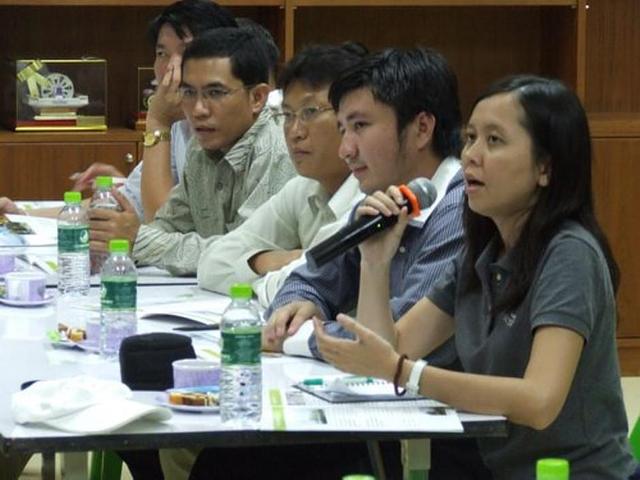
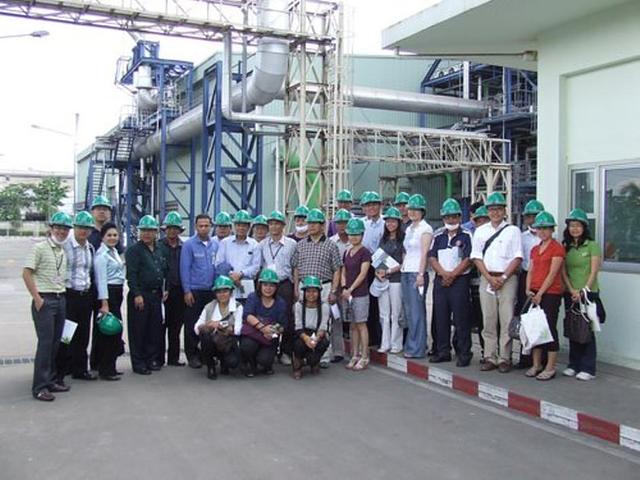
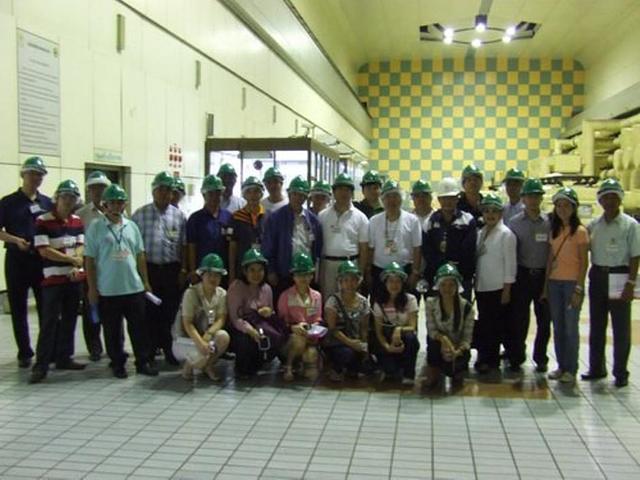
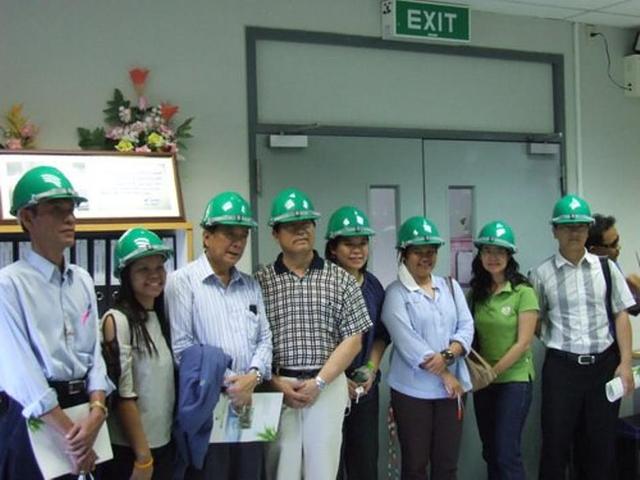
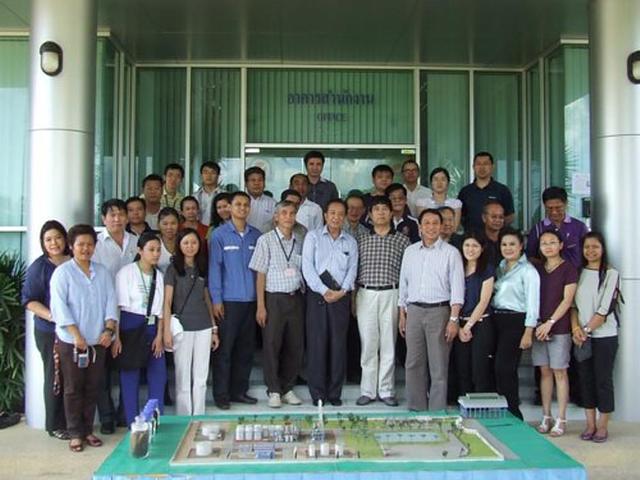
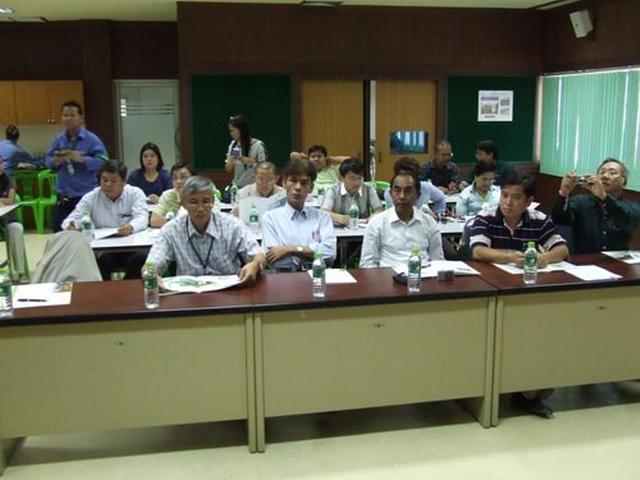
Study Visit on Biogas and Biomass Phu Khieo Bio-Energy Company Limited and Petro Green Co., Ltd.’s Phu Khieo Ethanol Plant in Chaiyapoom on May 31, 2011 (Continued)
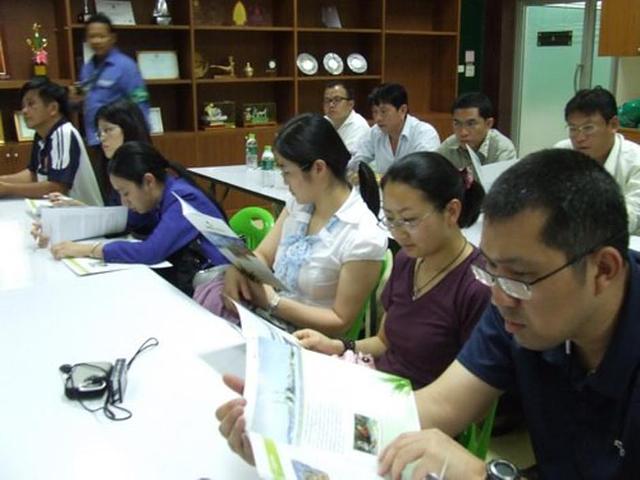
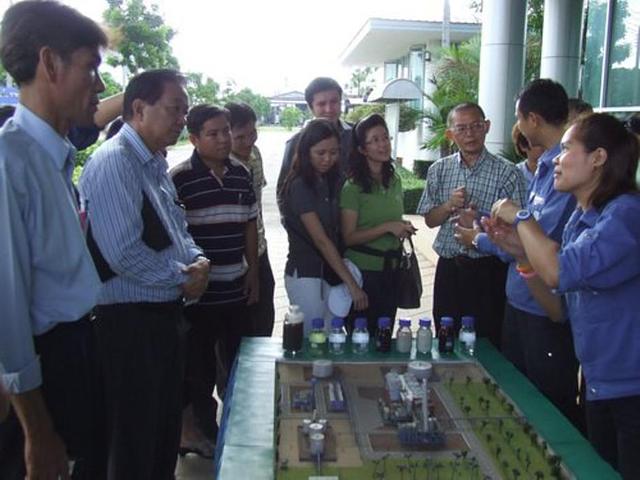
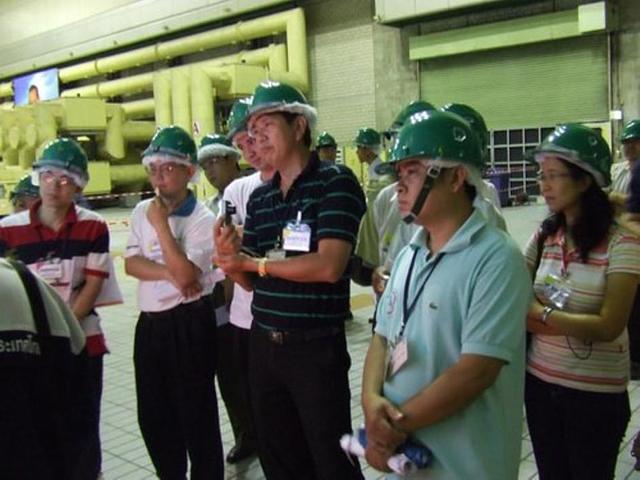
Farewell Party on May 31, 2011
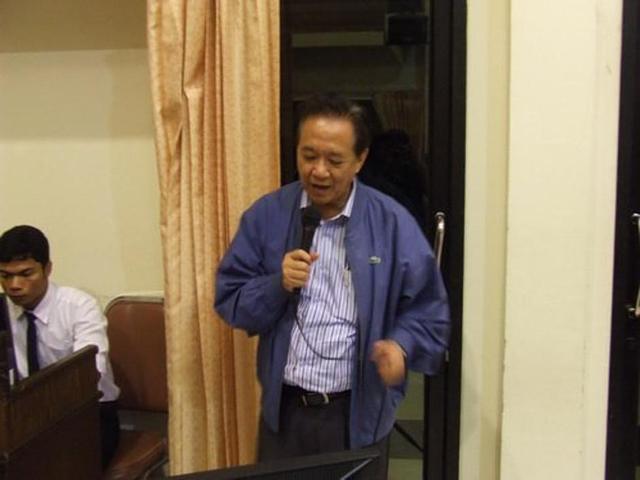
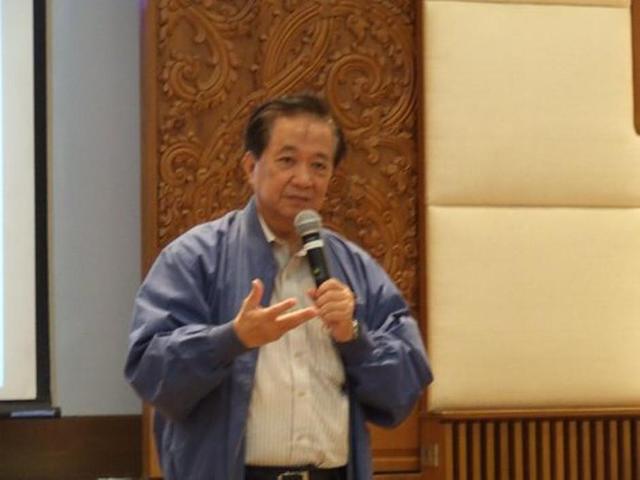
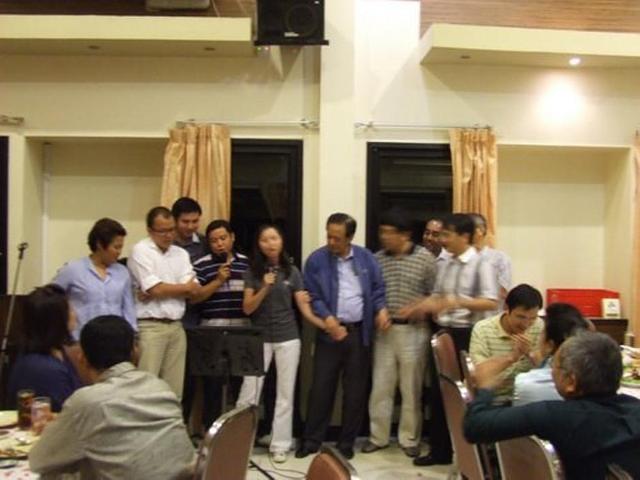
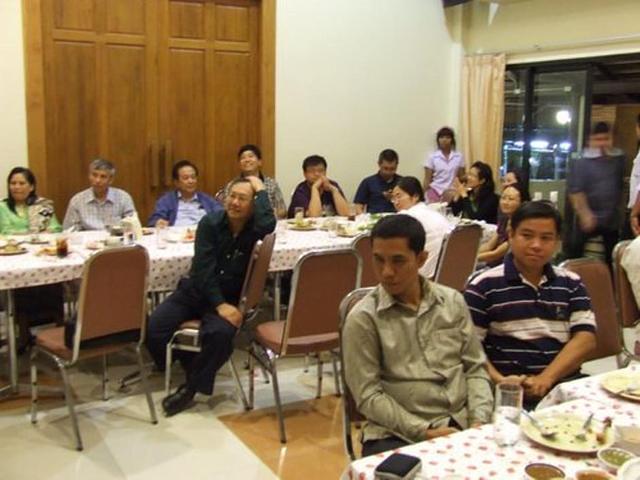
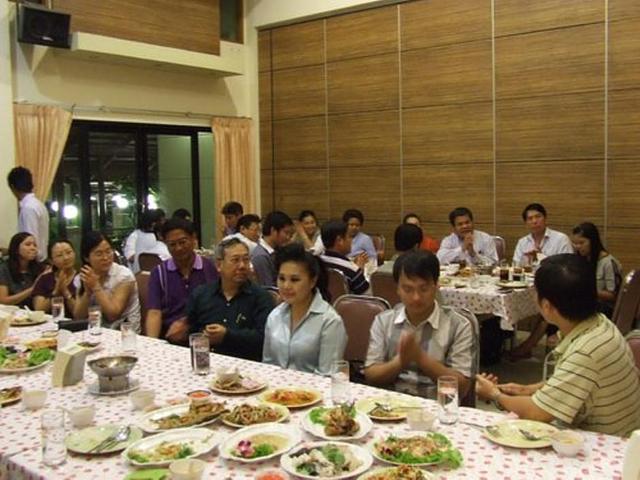
Study Visit on Hydropower and Wind Power Generation at Lamtakong Dam on June 1, 2011
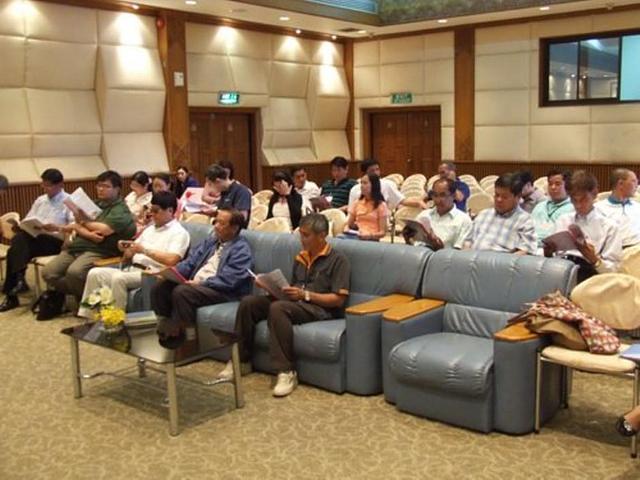
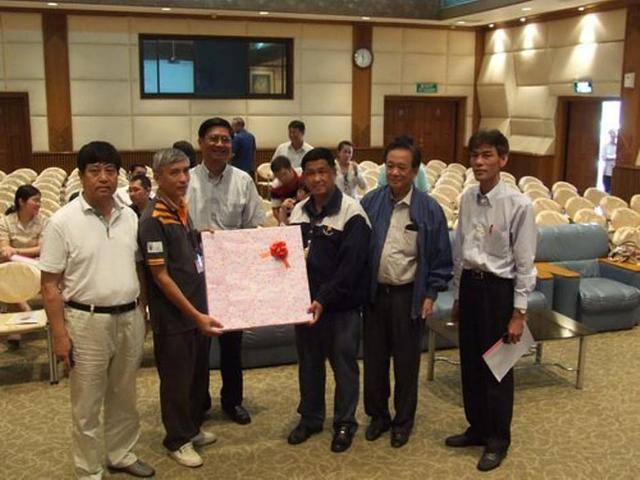
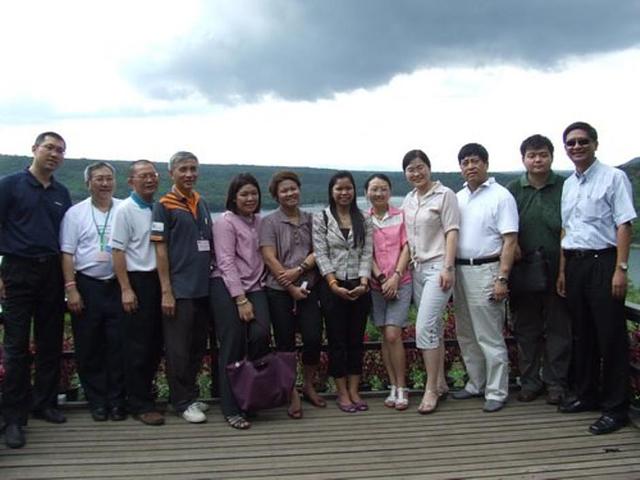
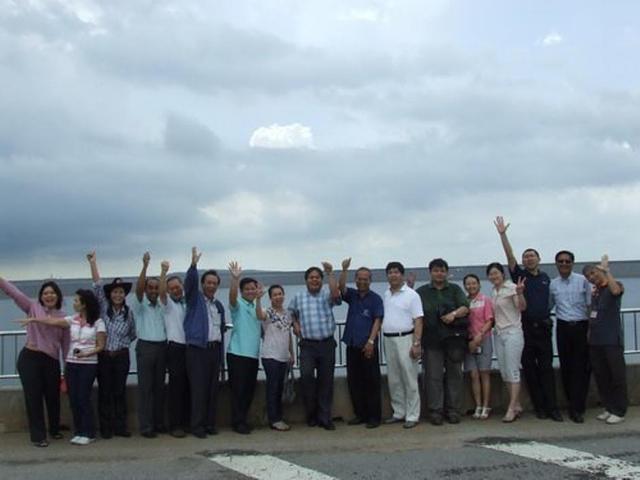
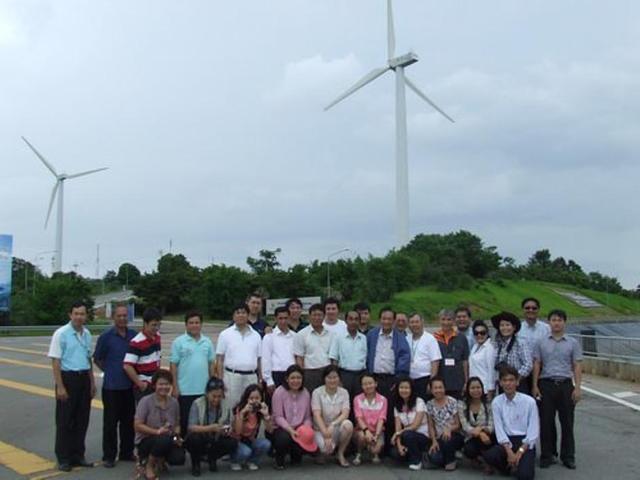
Group Photo on June 4, 2011
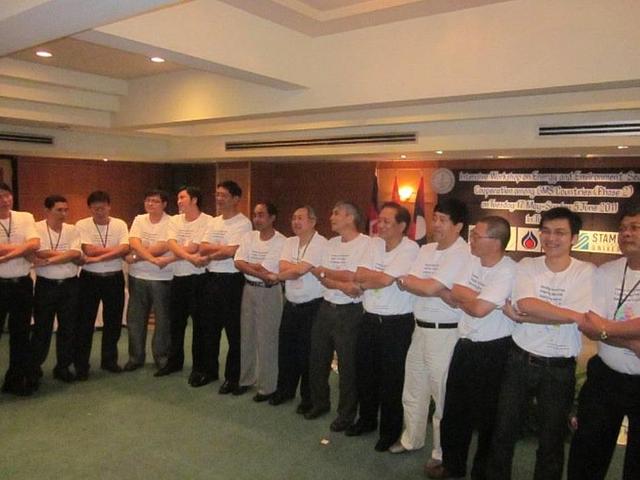
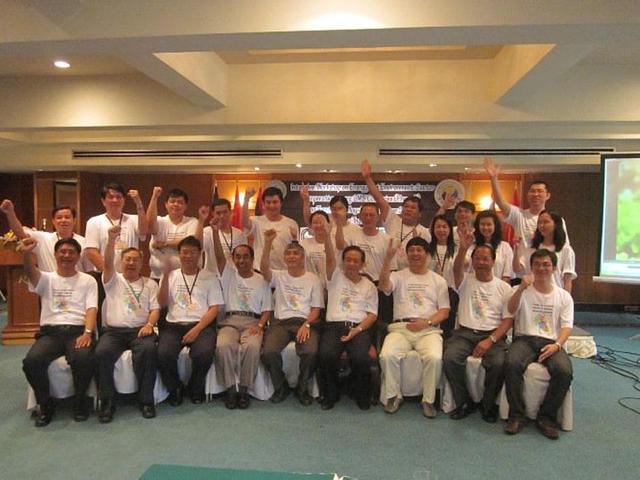
Concluding Remarks and common perception about international energy and environment cooperation on June 5, 2011
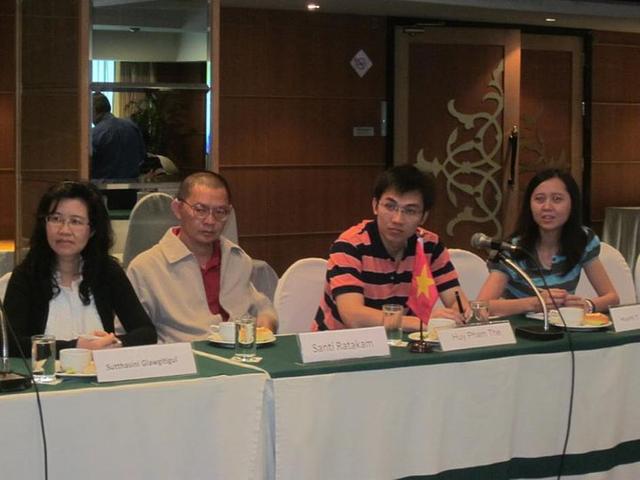
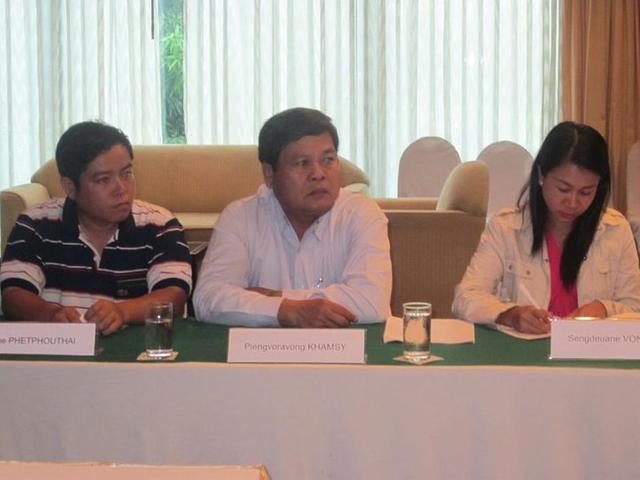
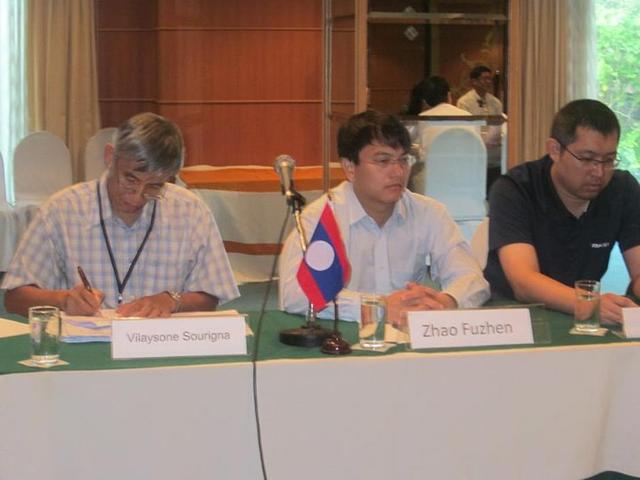
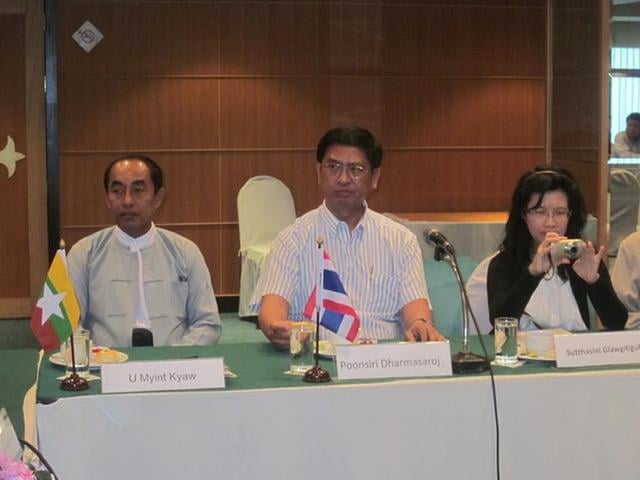
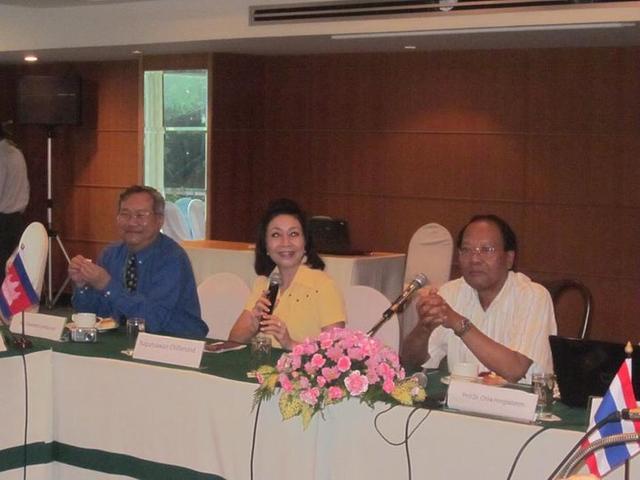
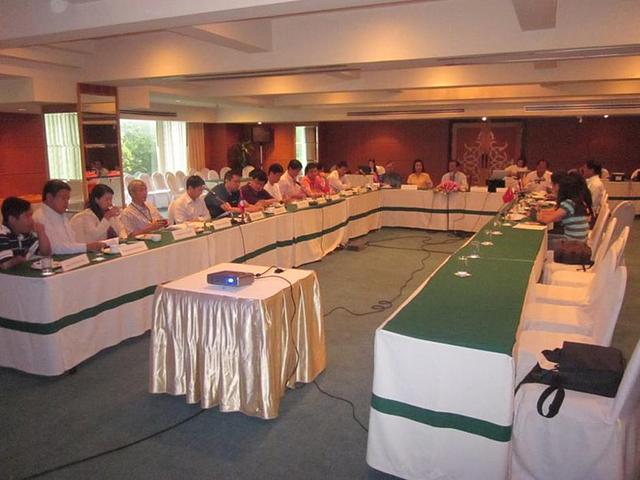
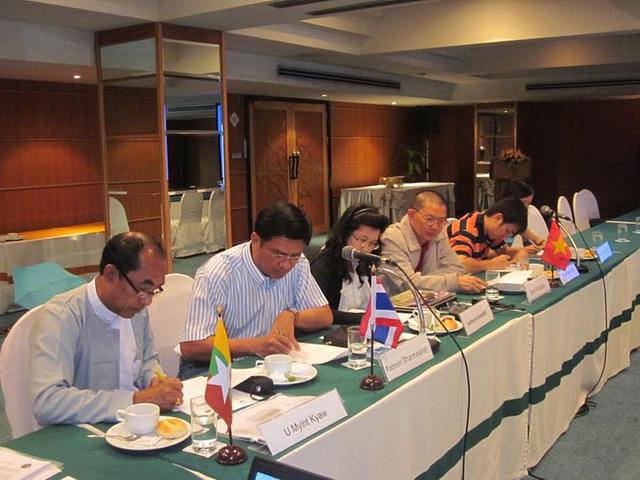
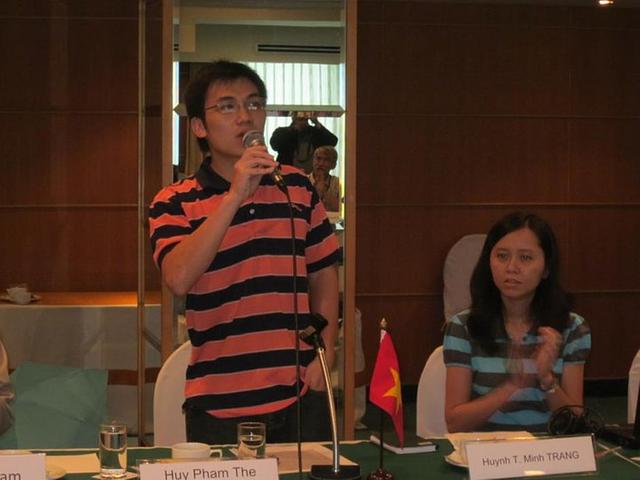
Please click on the following links to listen to the project's news.
http://www2.mcot.net/fm965/mp3.cfm?cat=Archive&id=213022
Source: The Nation Tuesday 7 June 2011, Page 2 A
Please click on the following links to read the project's news.
http://www.naewna.com/news.asp?ID=262466
ข่าวประชาสัมพันธ์โครงการ
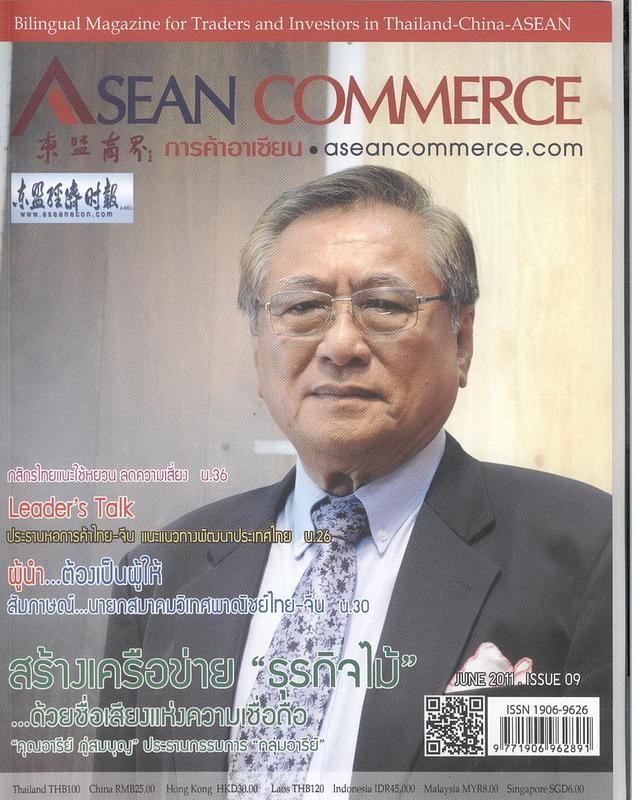
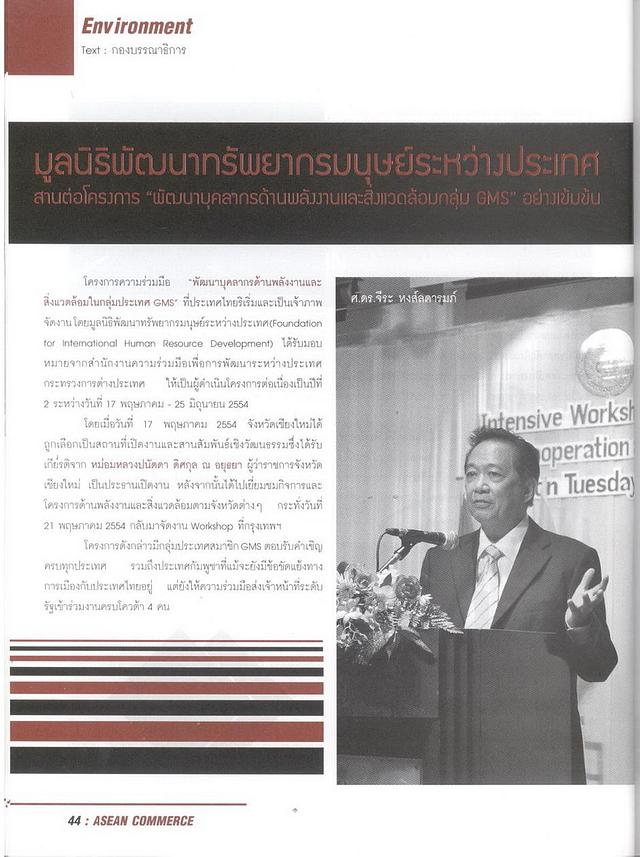
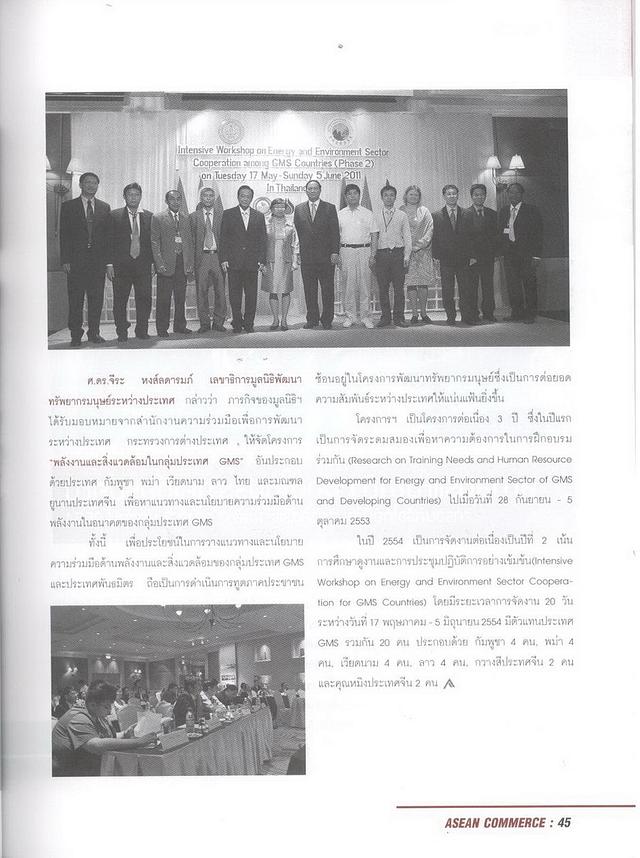
ข่าวประชาสัมพันธ์โครงการ
ข่าวประชาสัมพันธ์โครงการ
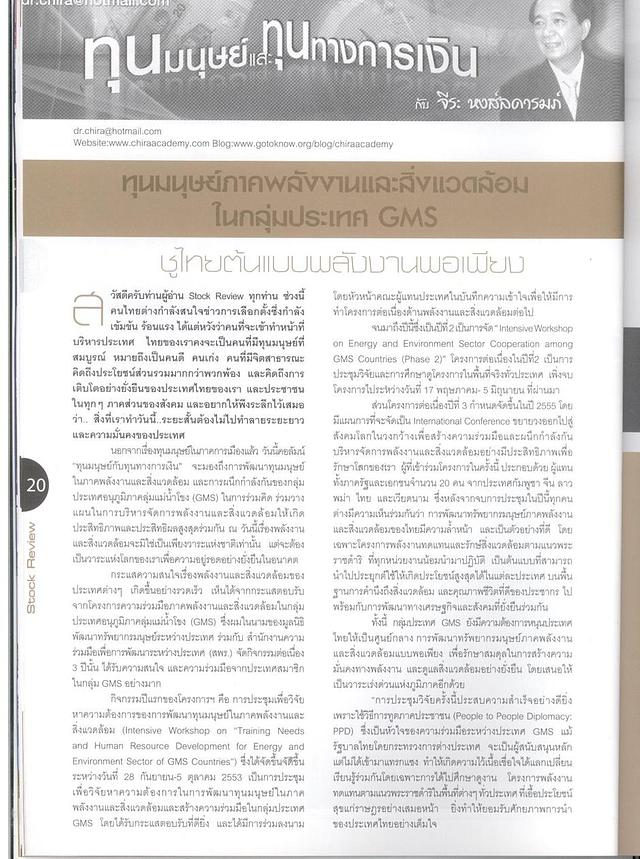
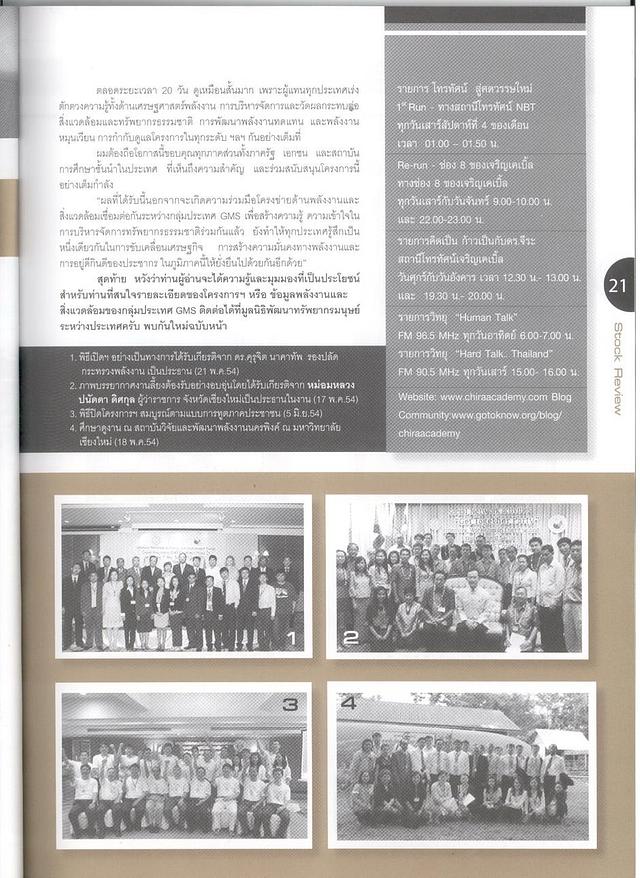
ที่มา: Stock Review มิถุนายน 2554
Please click on this link to read the project's news.
http://cdn.gotoknow.org/assets/media/files/000/774/632/original_Englishnewsletter21may2011.doc
Please click on this link to watch the project news.
http://www.youtube.com/watch?v=5A8T9iqpi0Q&feature=relmfu
Source: ASEAN TV
Please click on this link to watch the project news.
http://www.youtube.com/watch?v=8rau2QJFrVw&feature=relmfu
http://www.youtube.com/watch?v=IrNCifroY70&feature=relmfu
Source: Kid Pen Kao Pen TV Program, June 10, 2011
